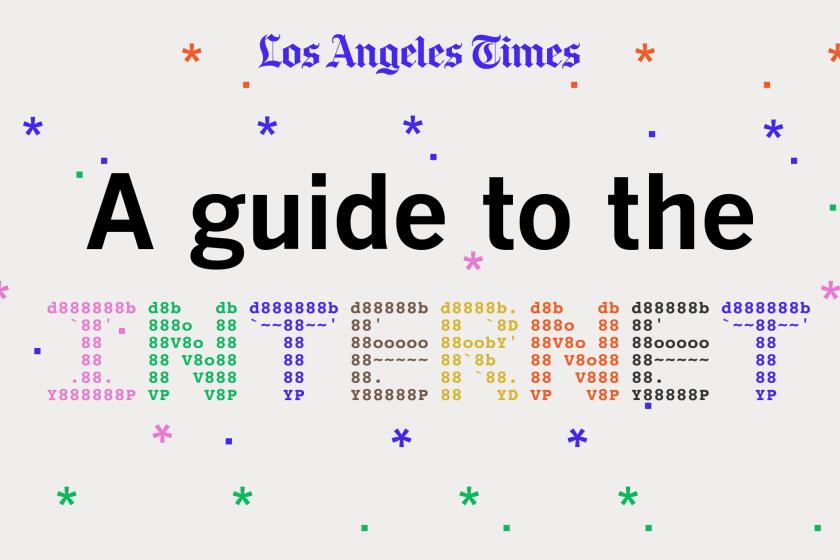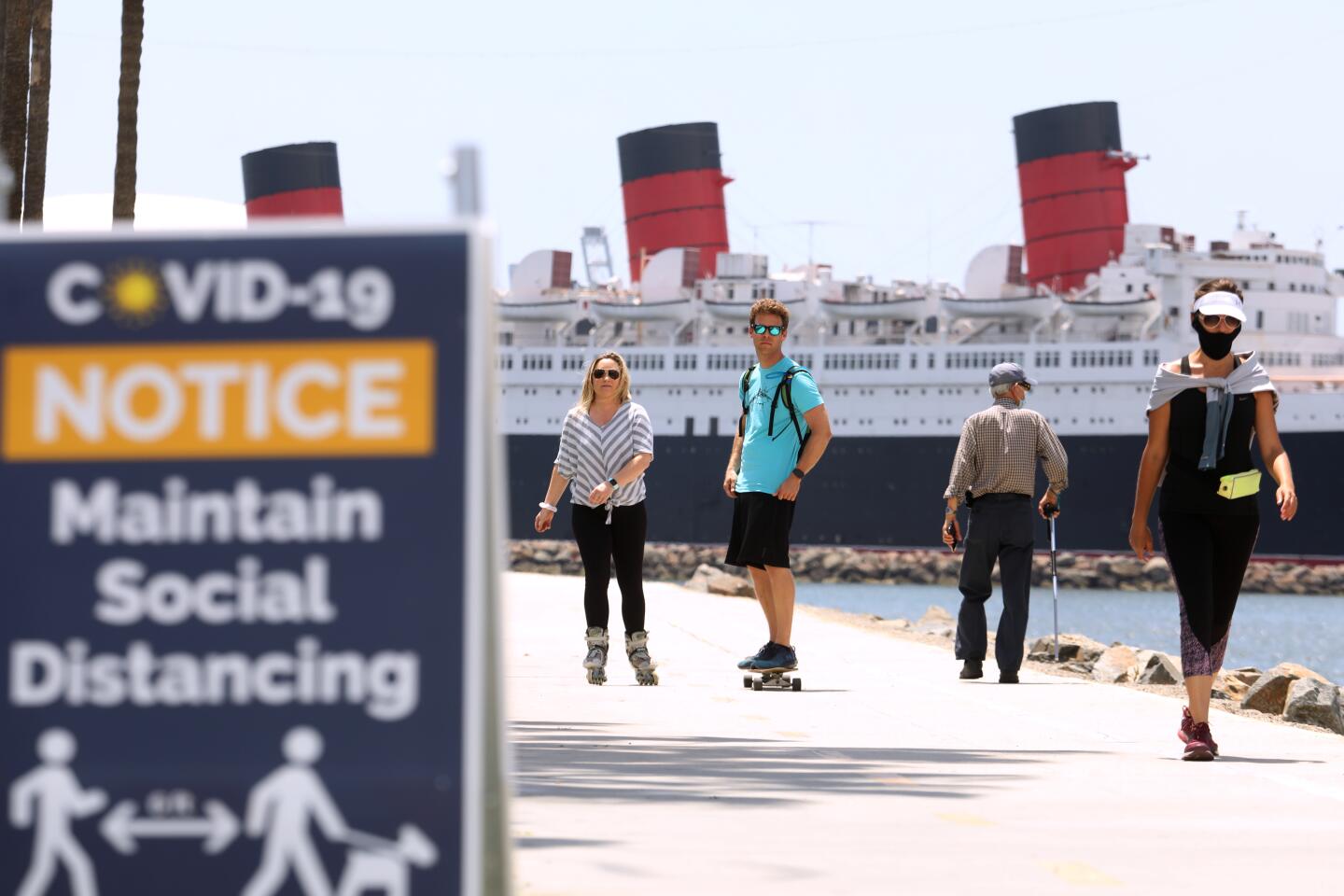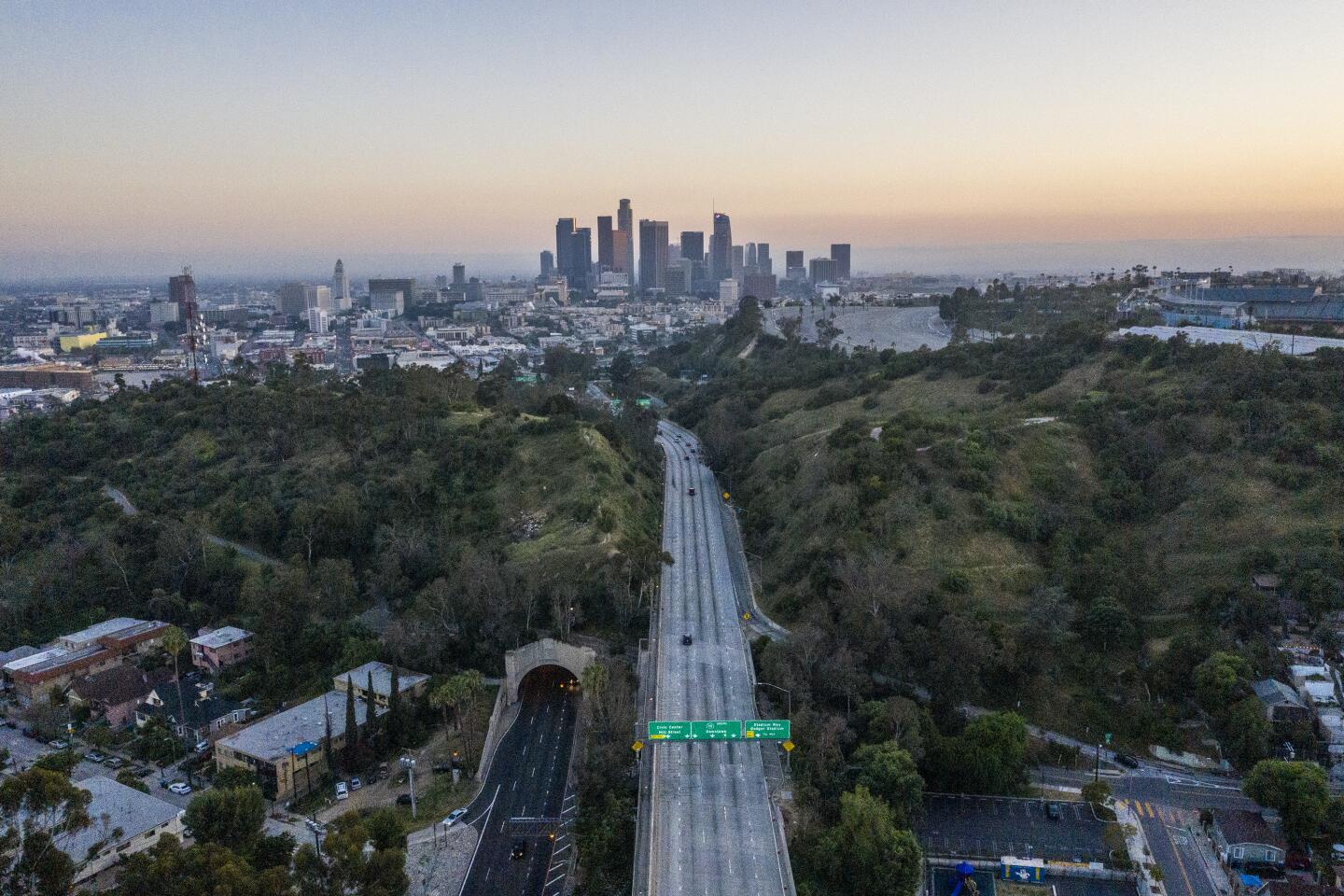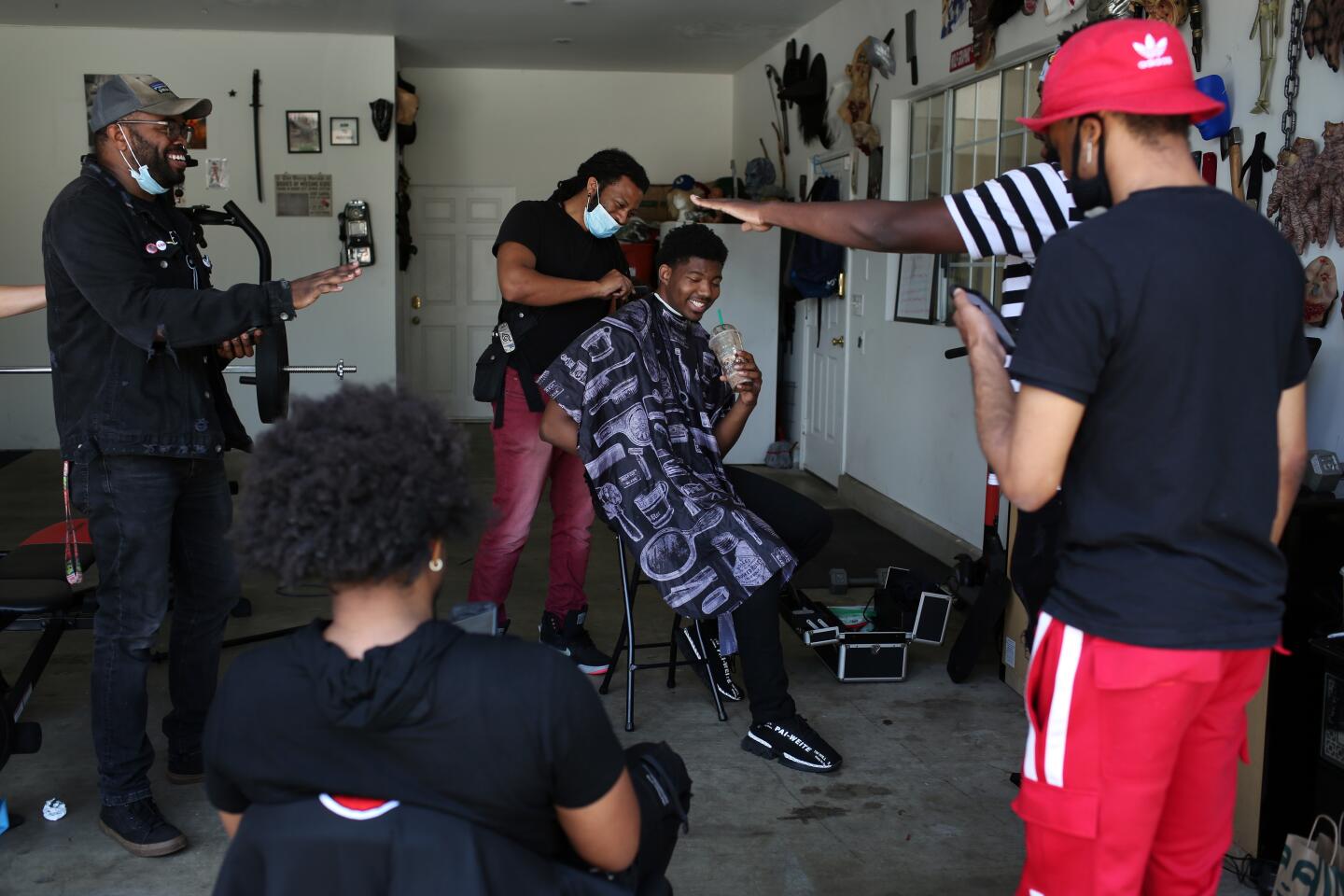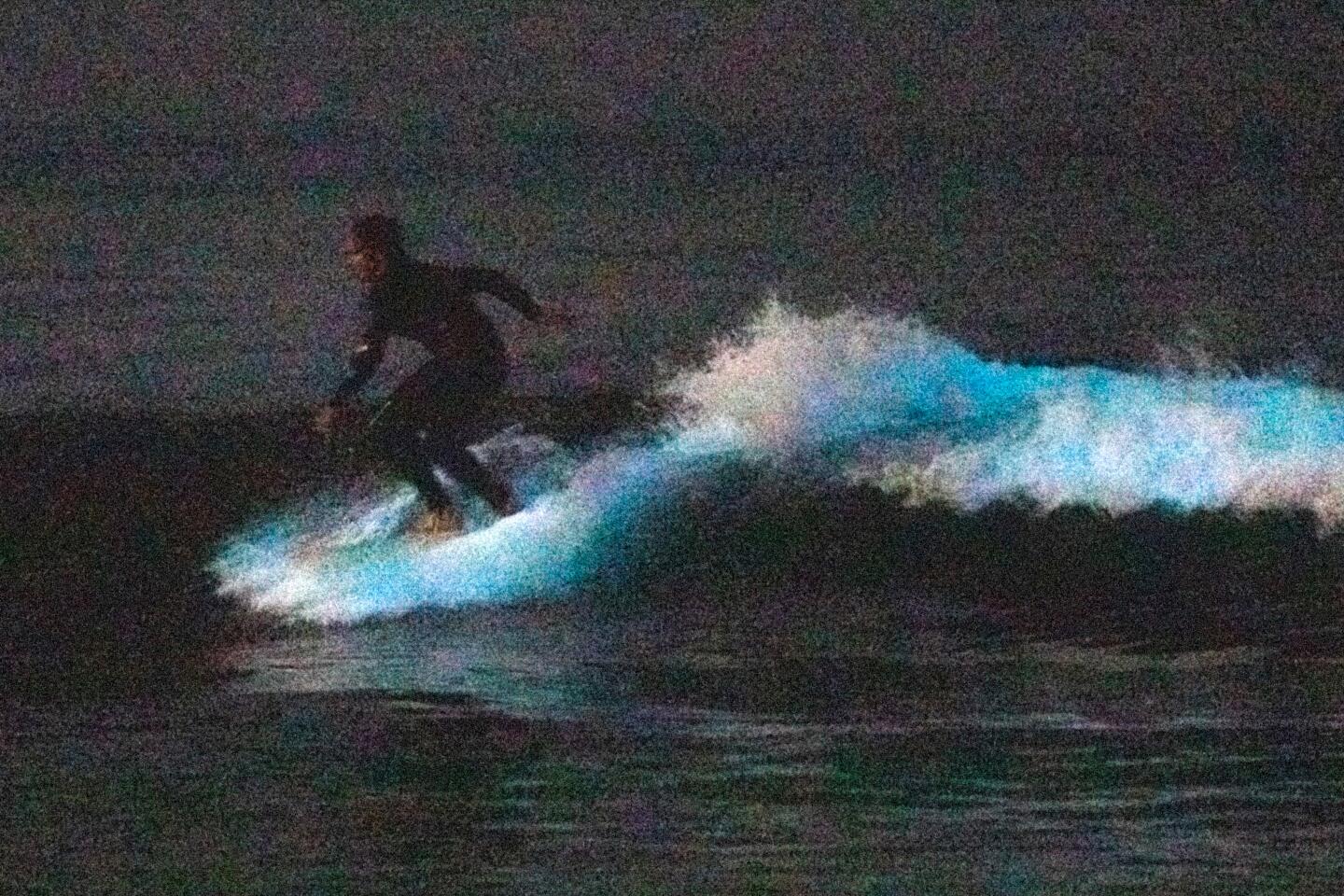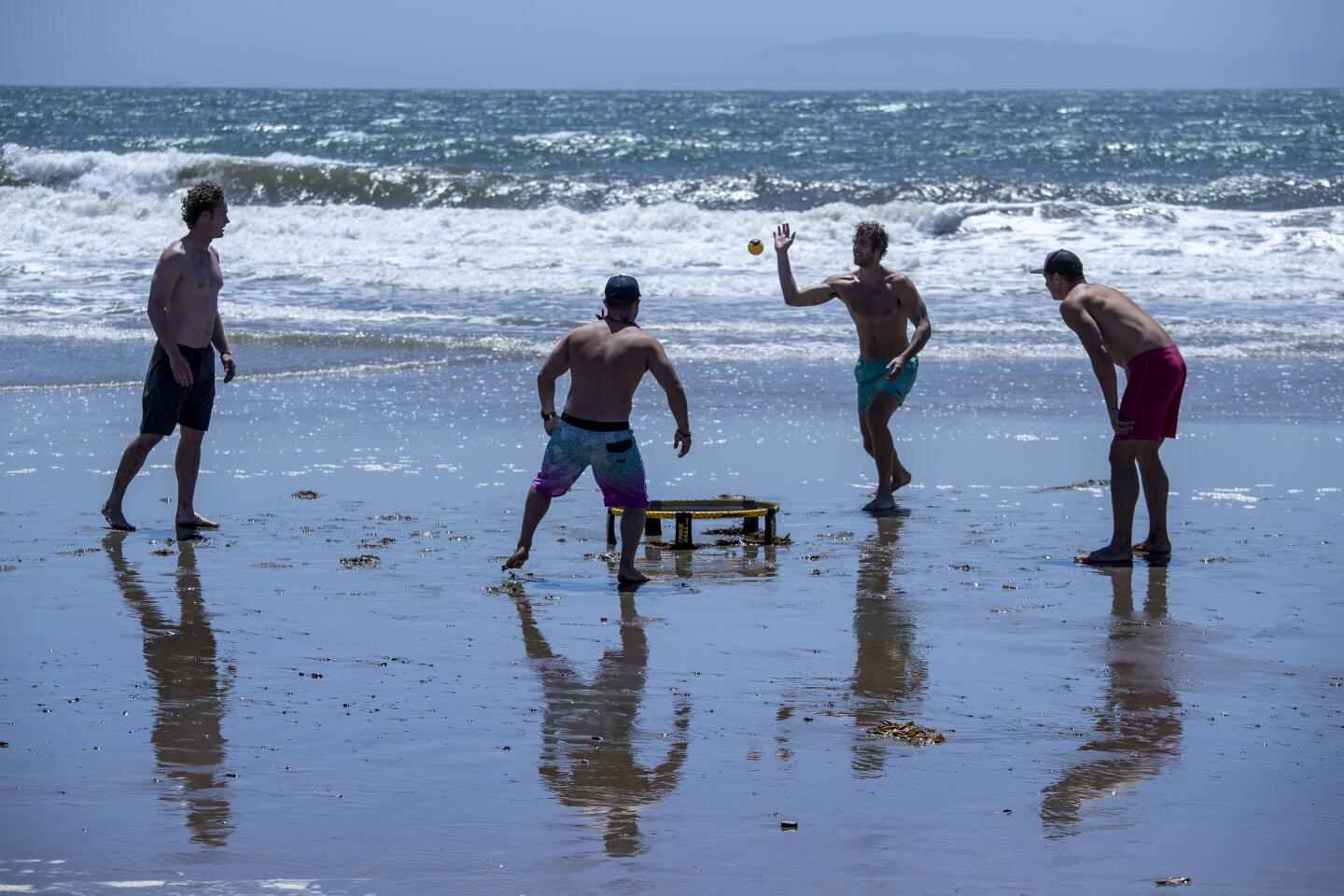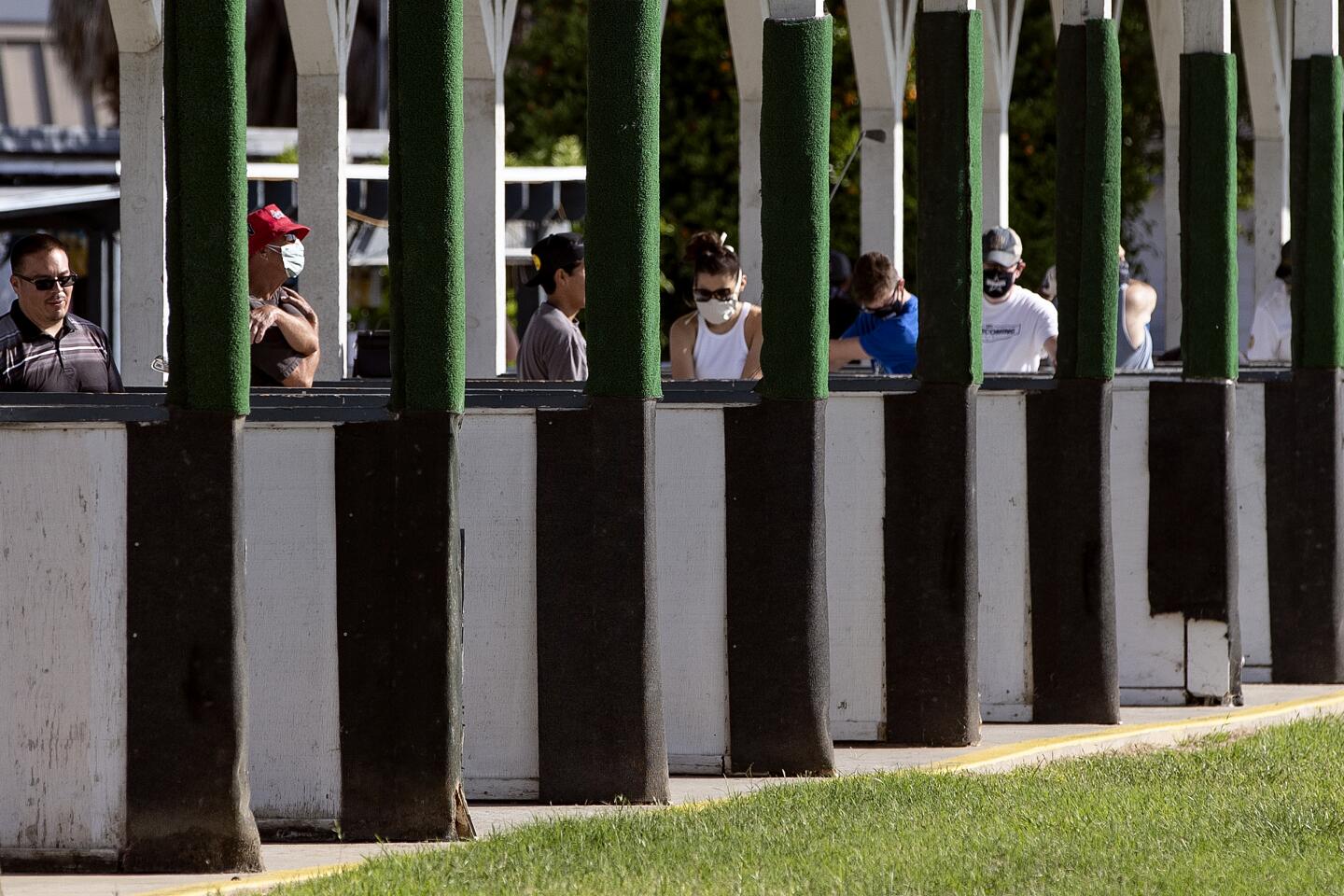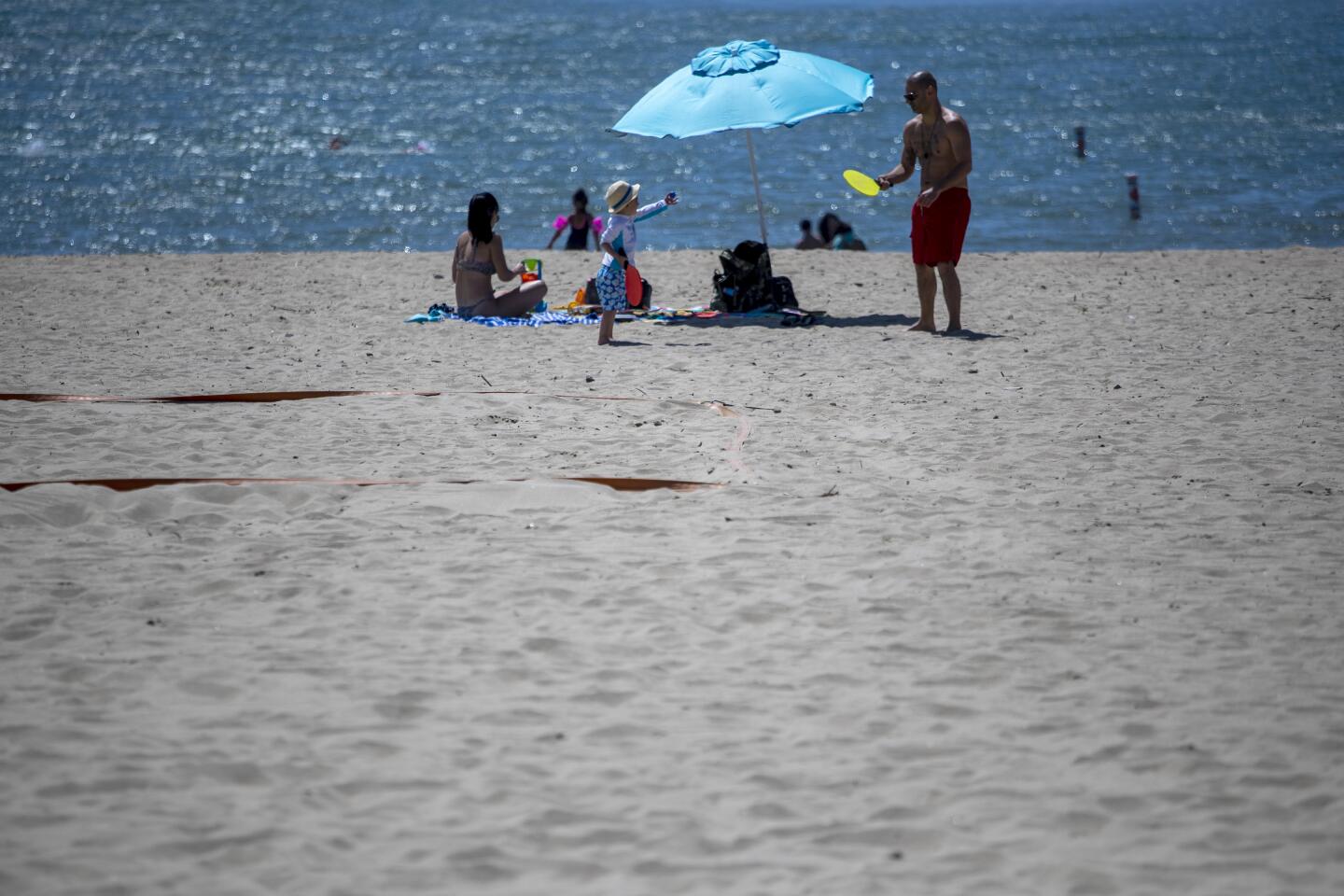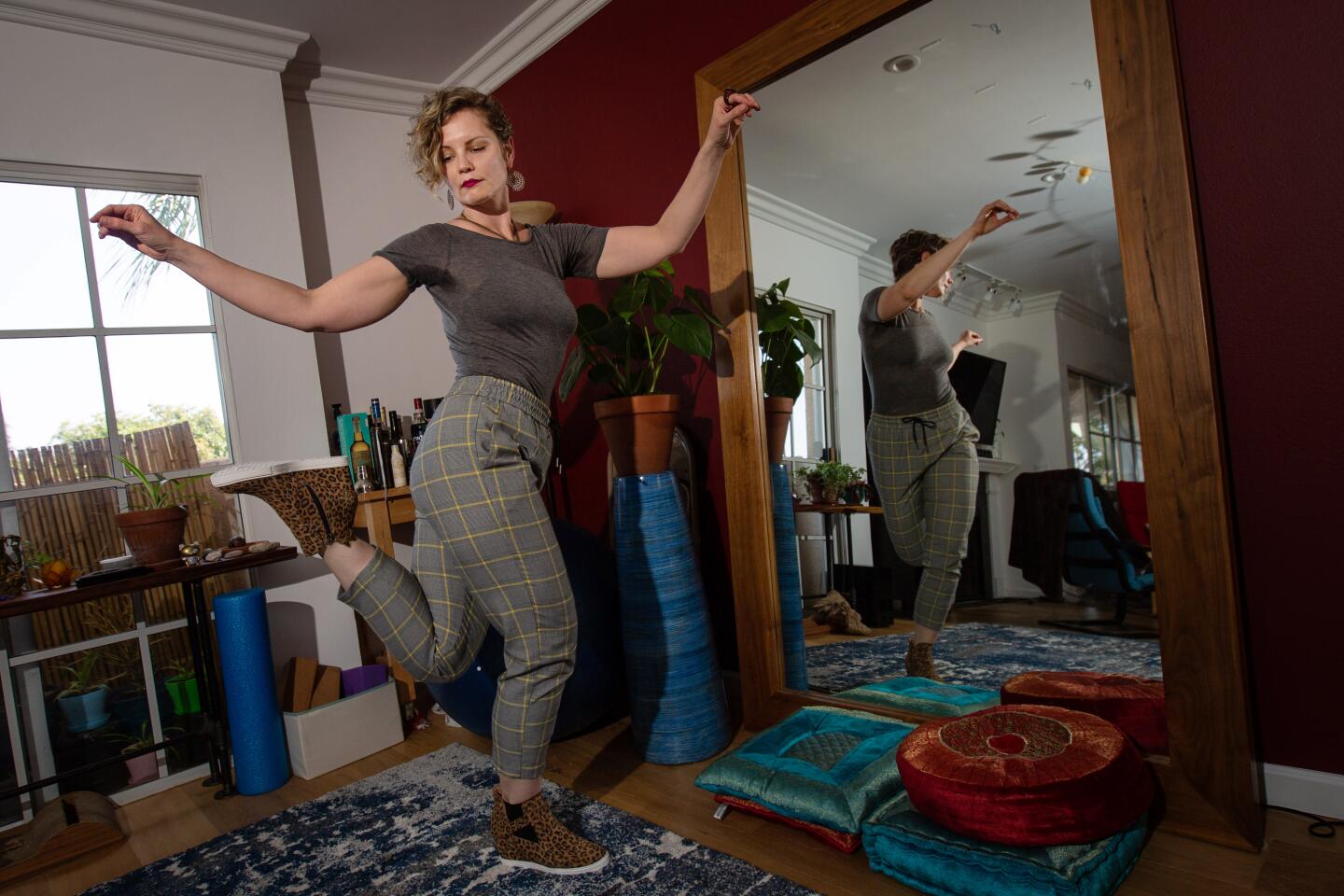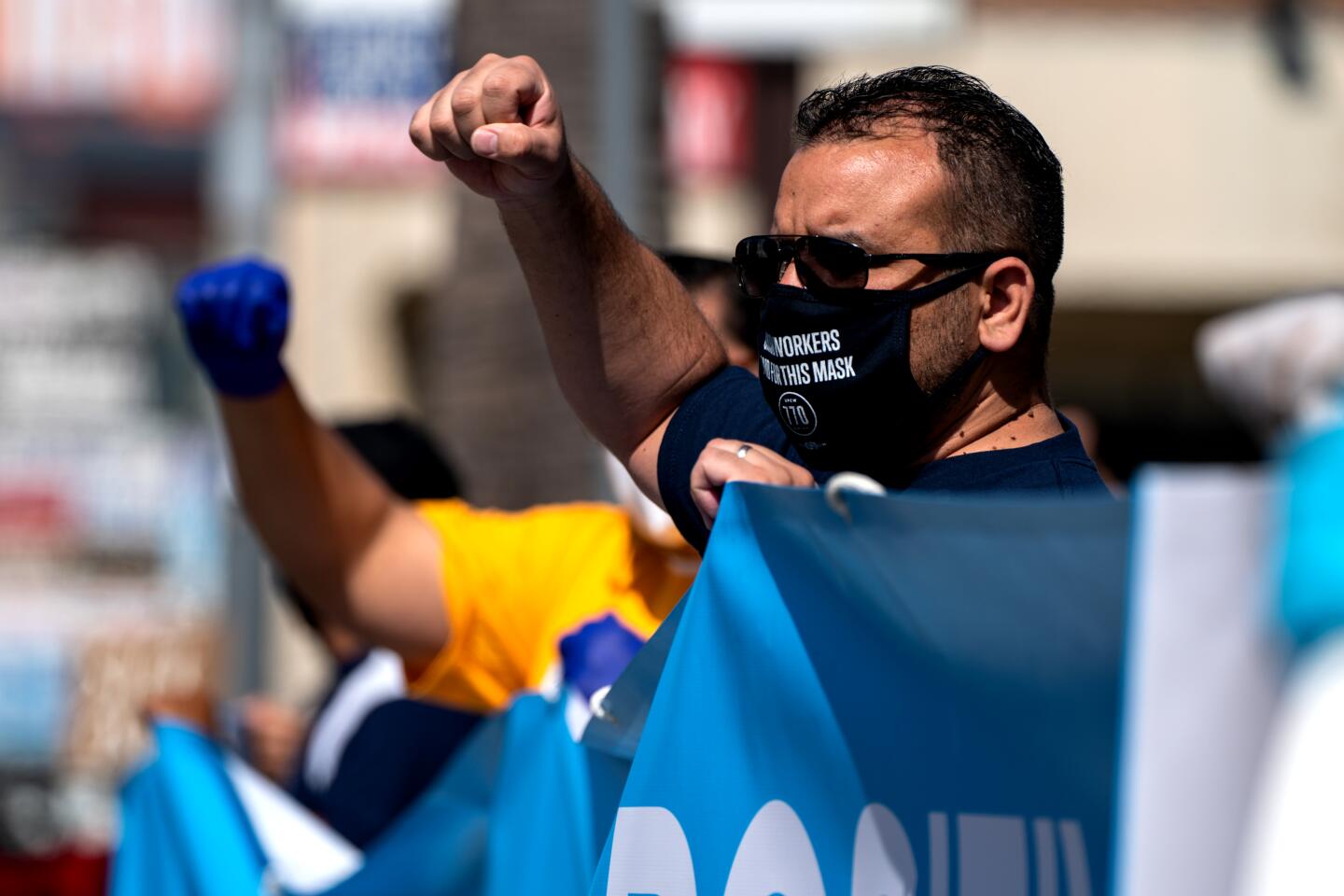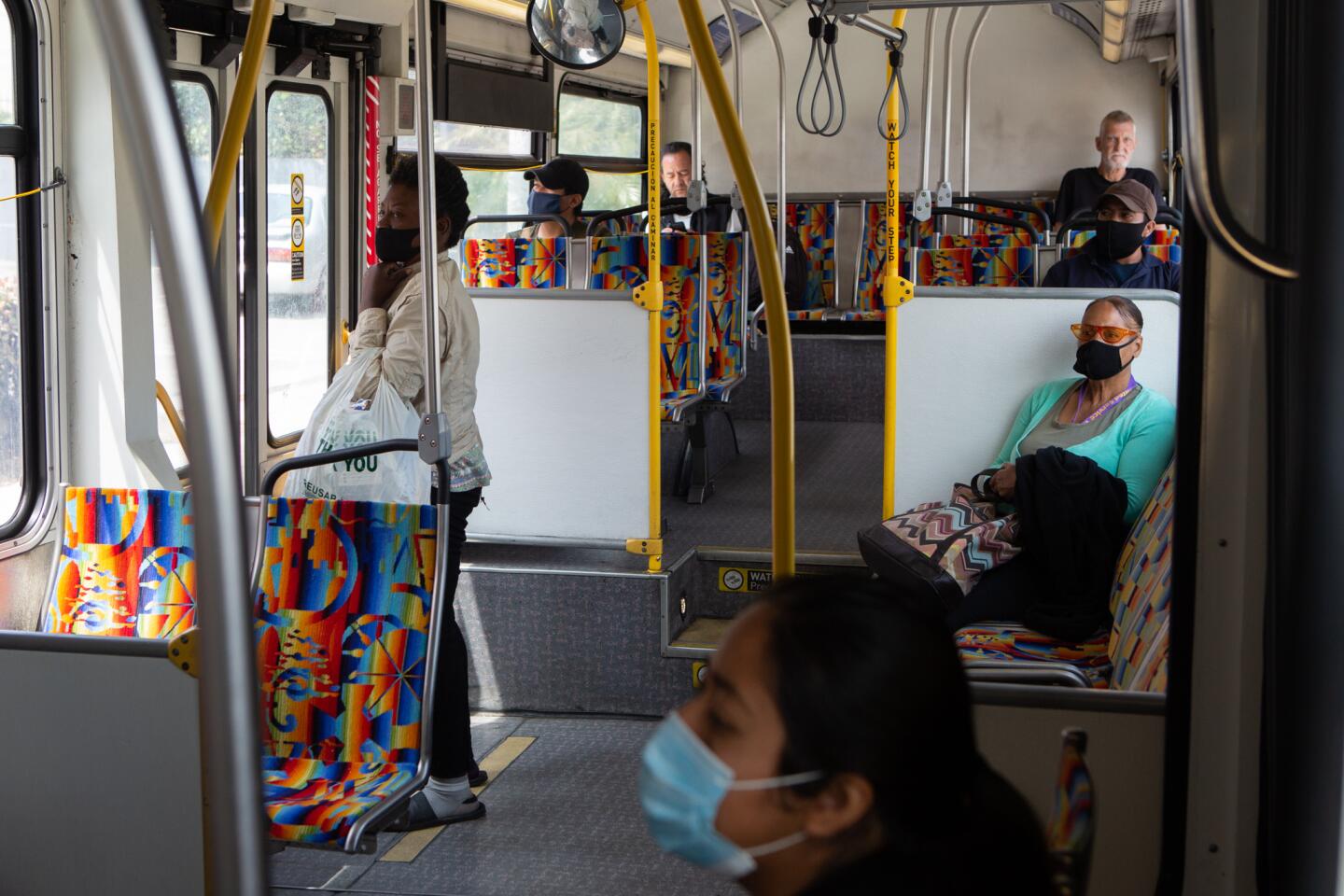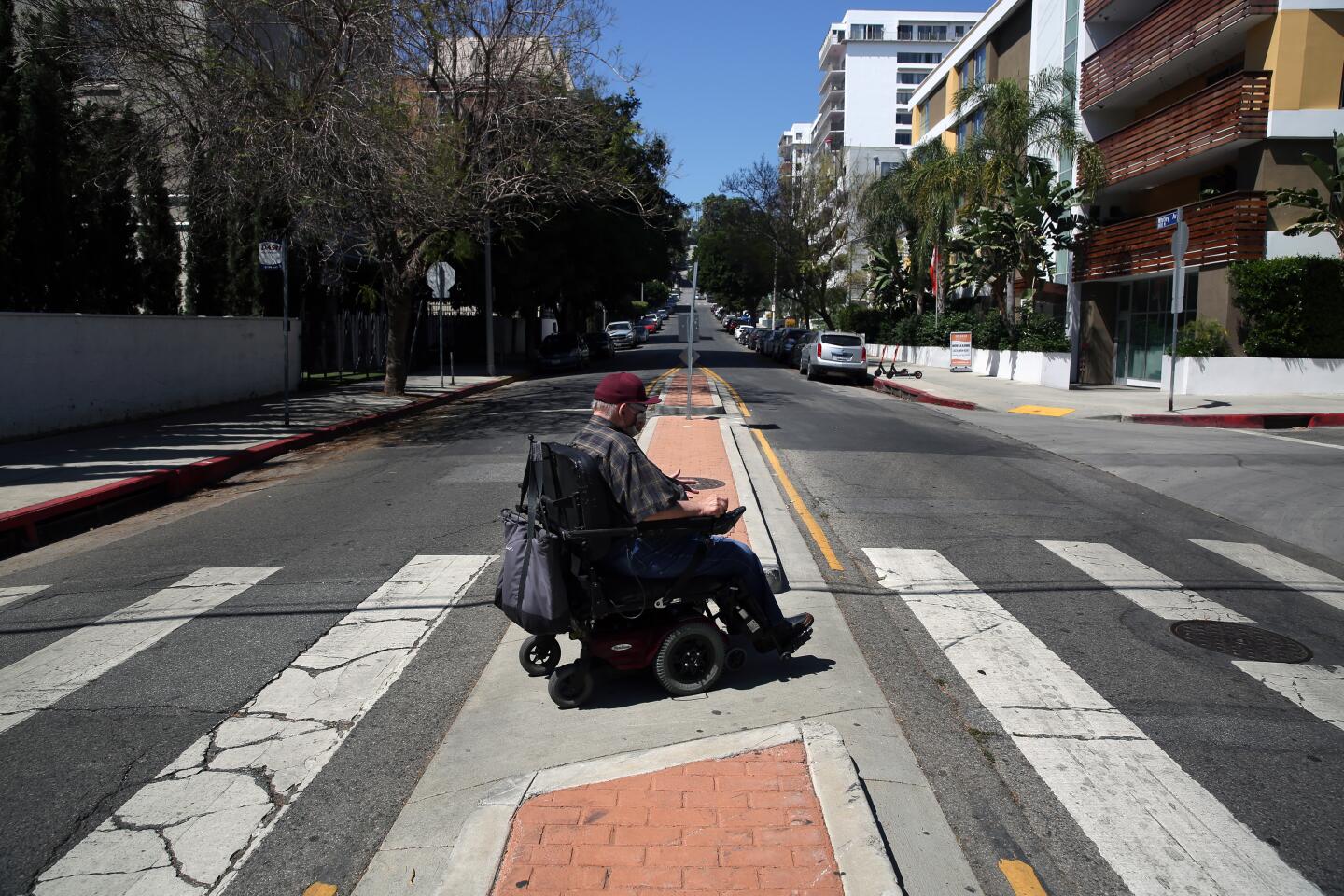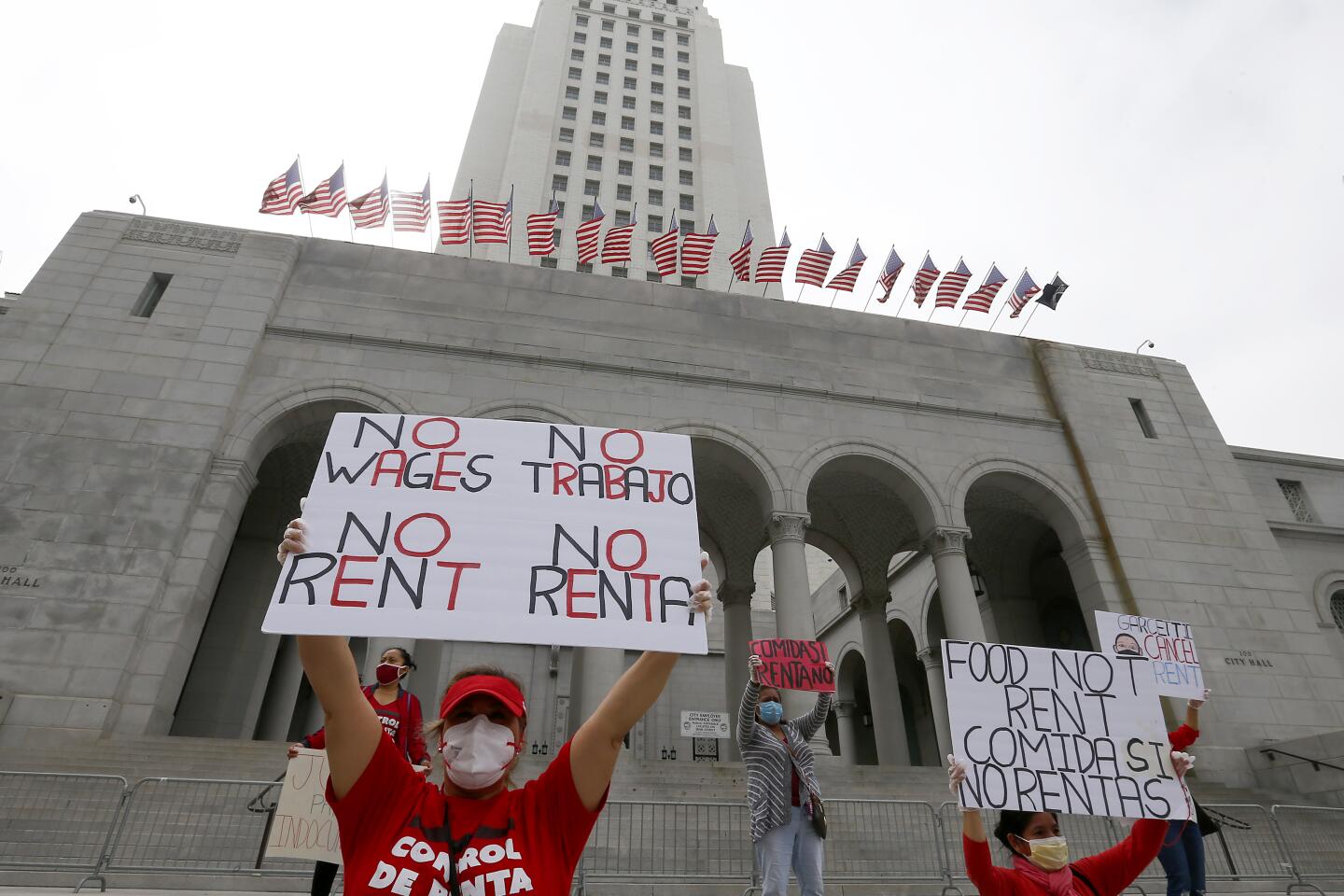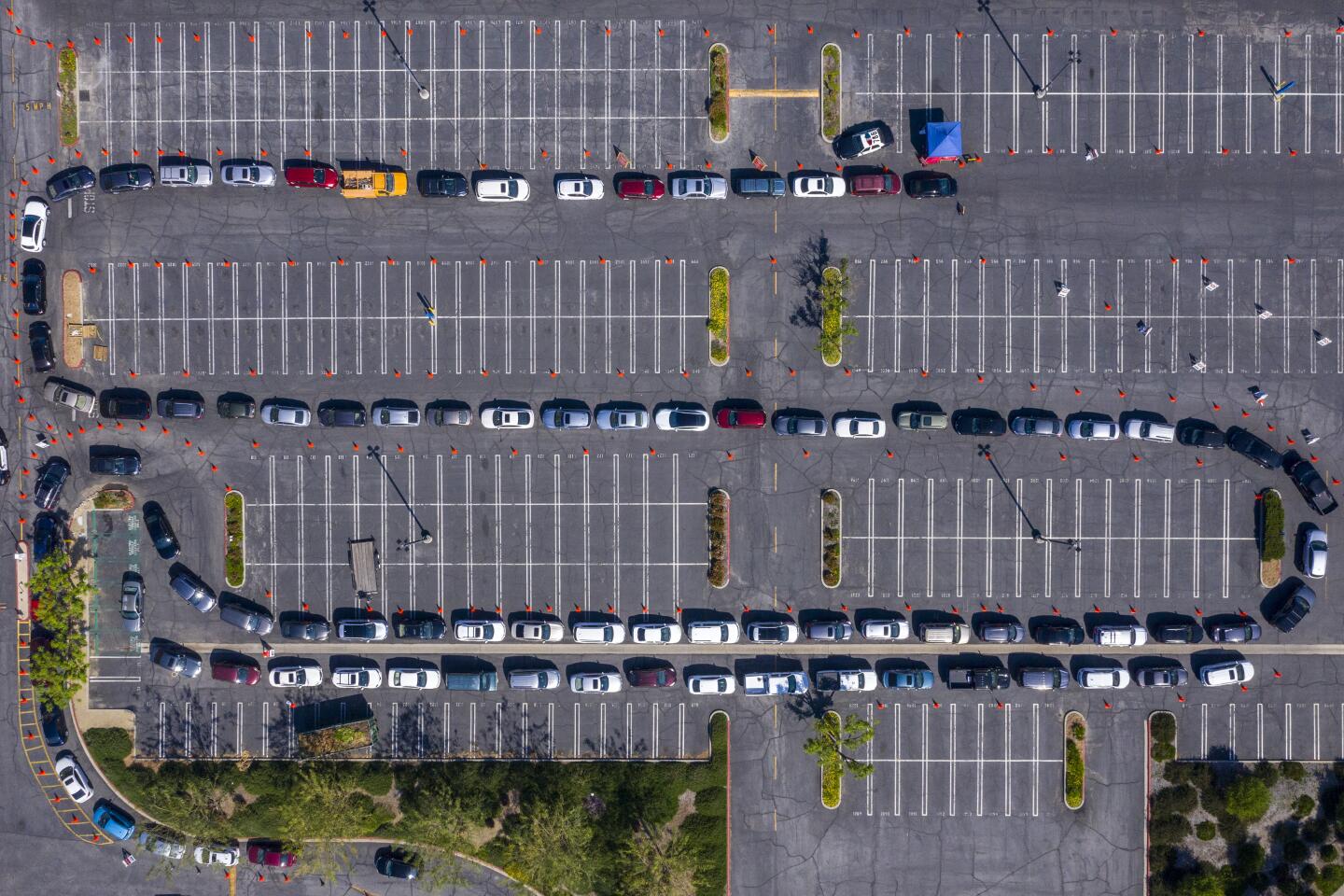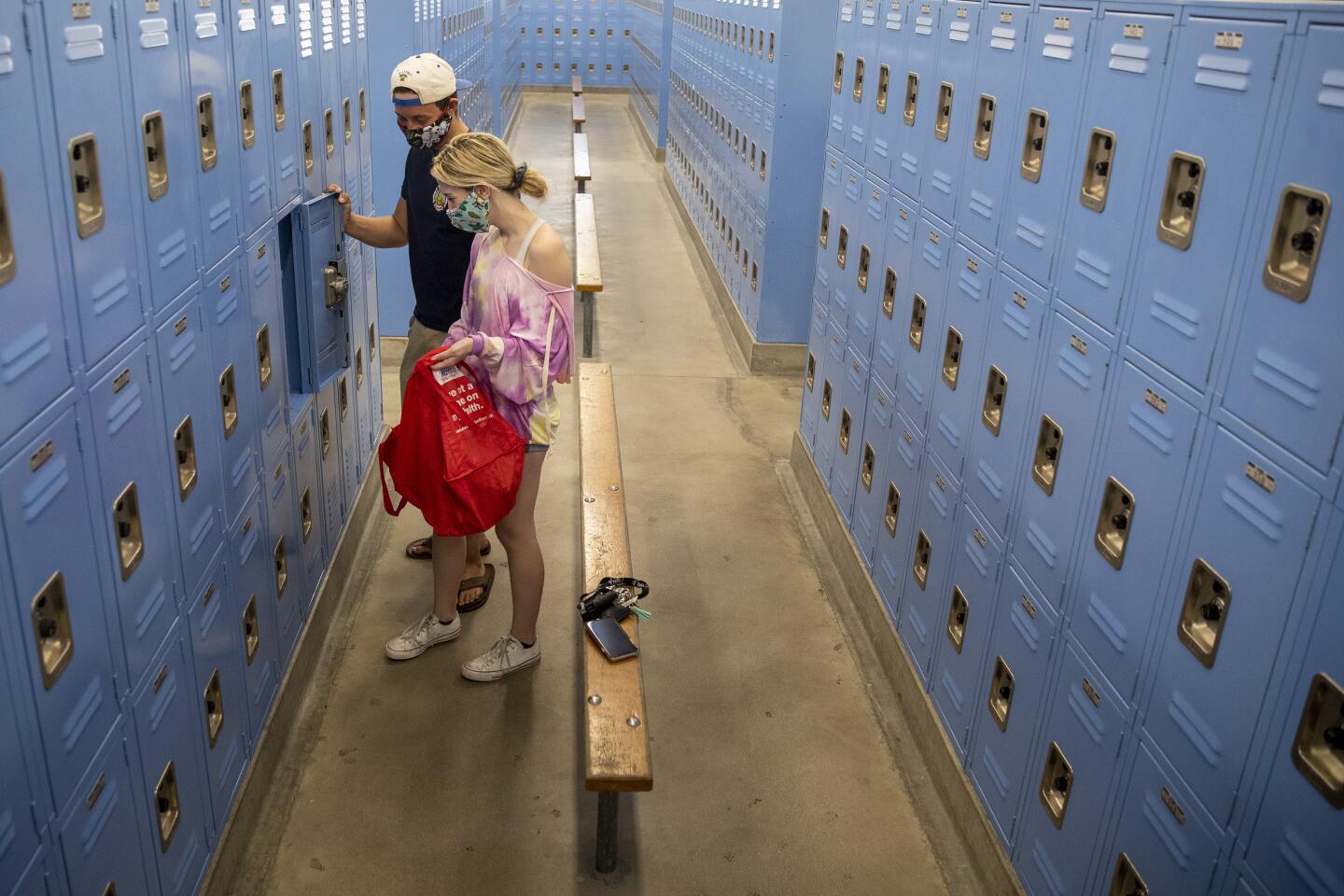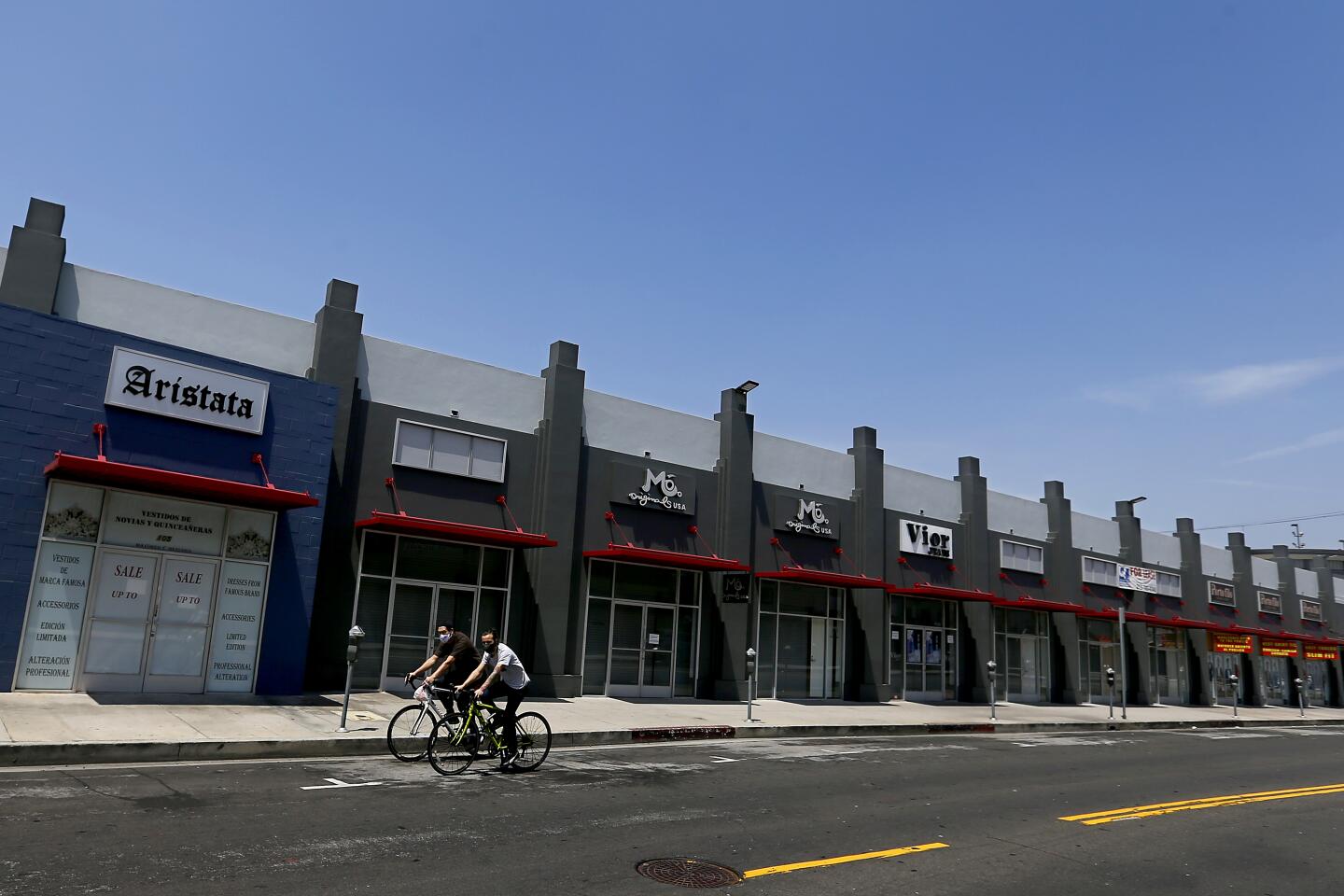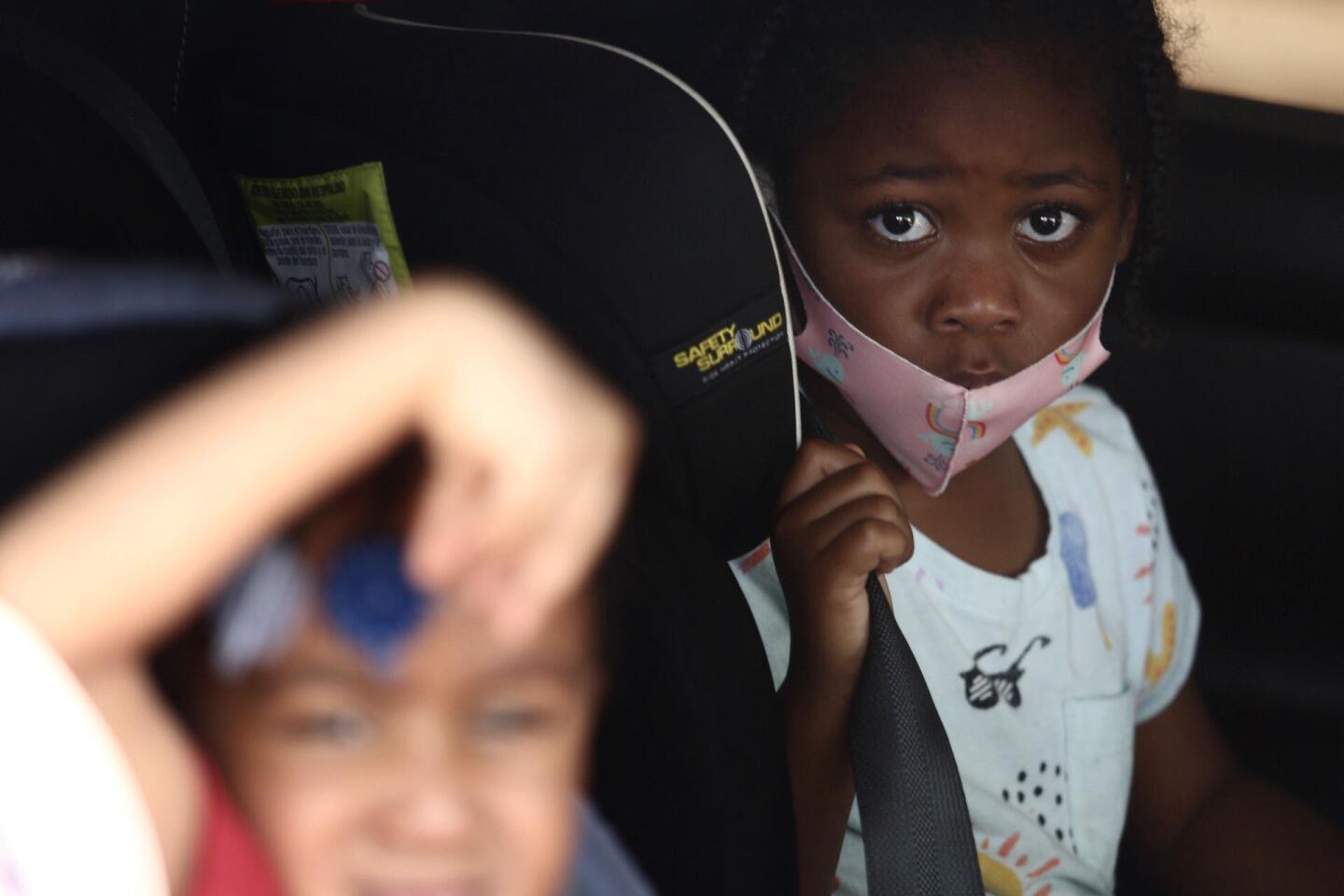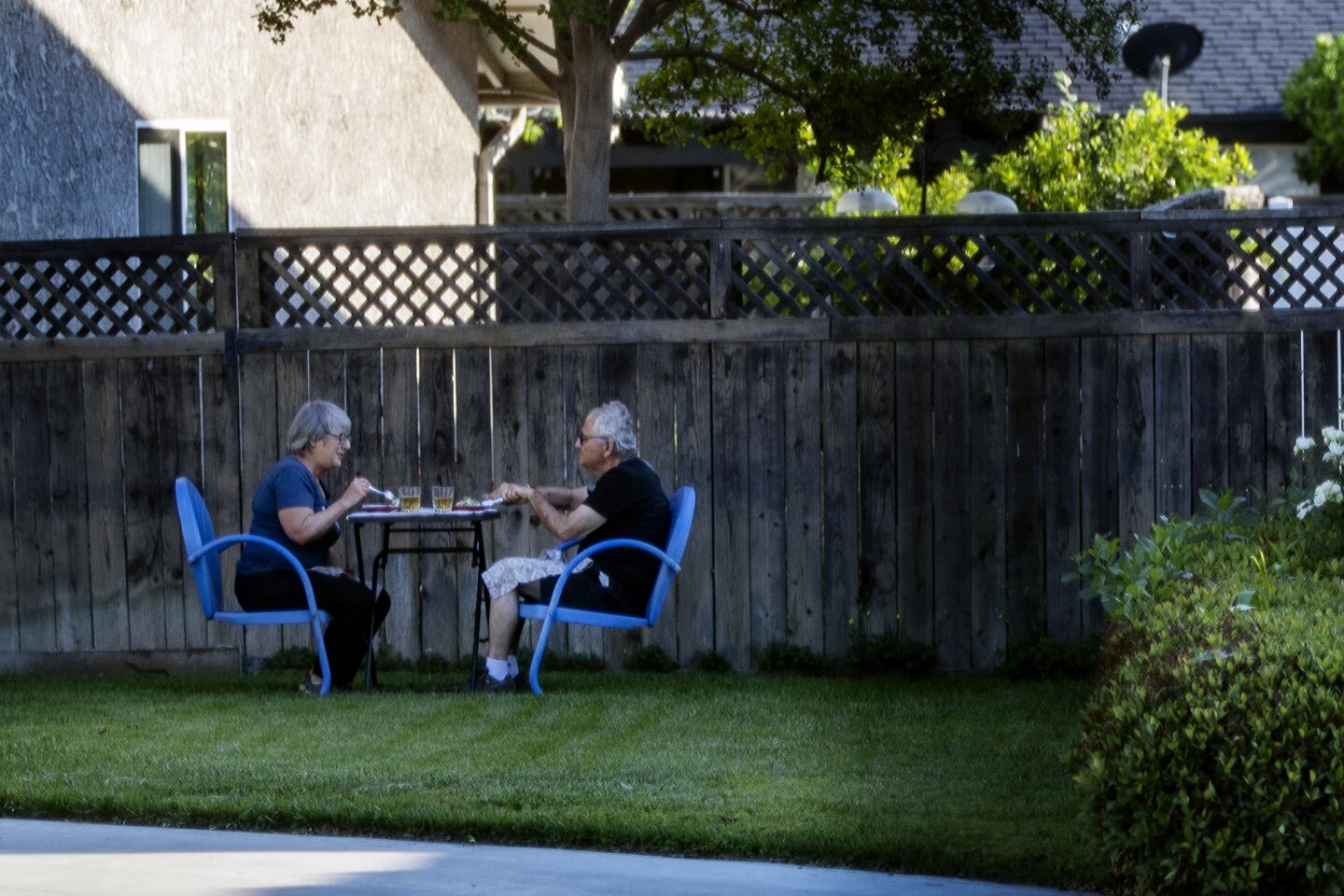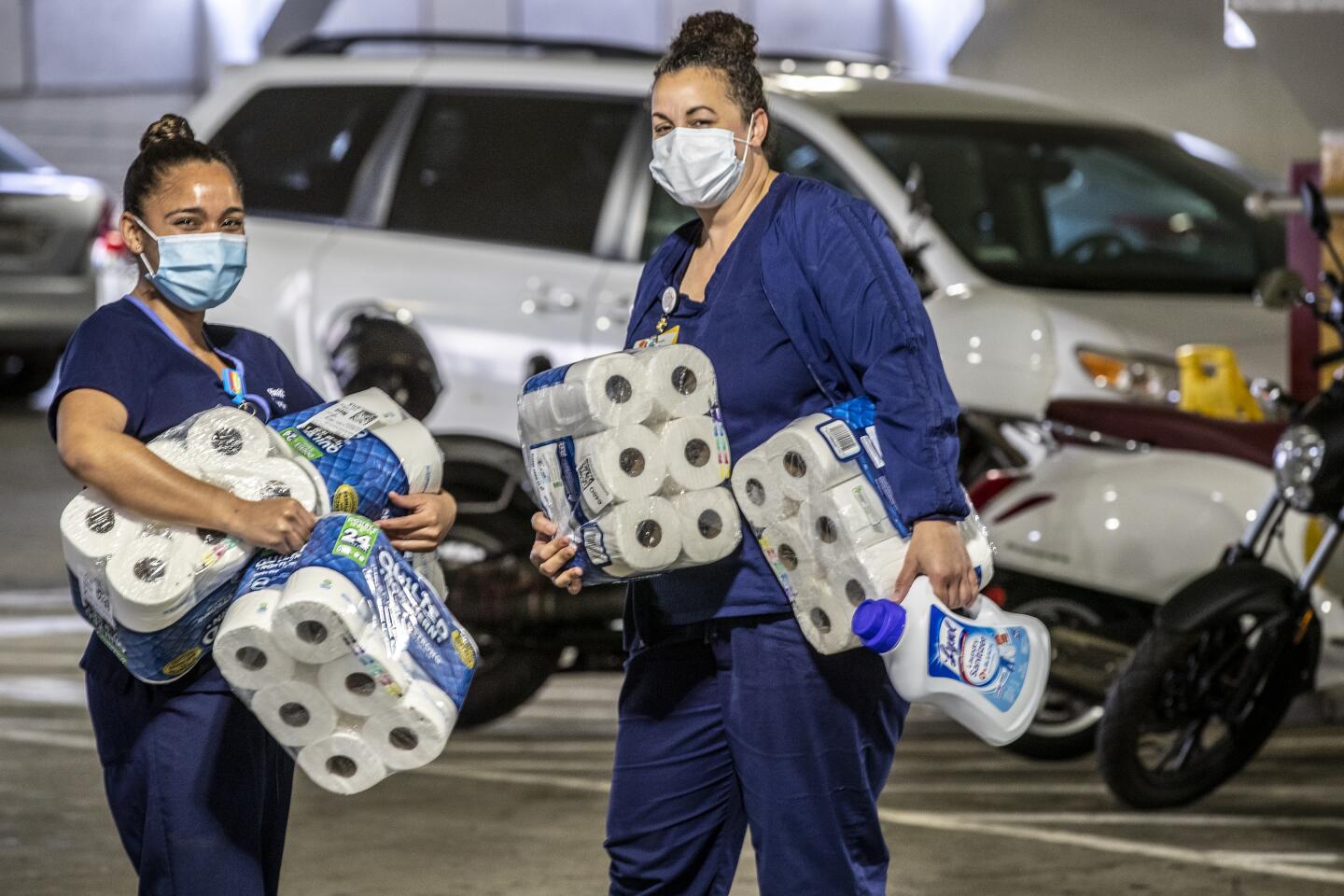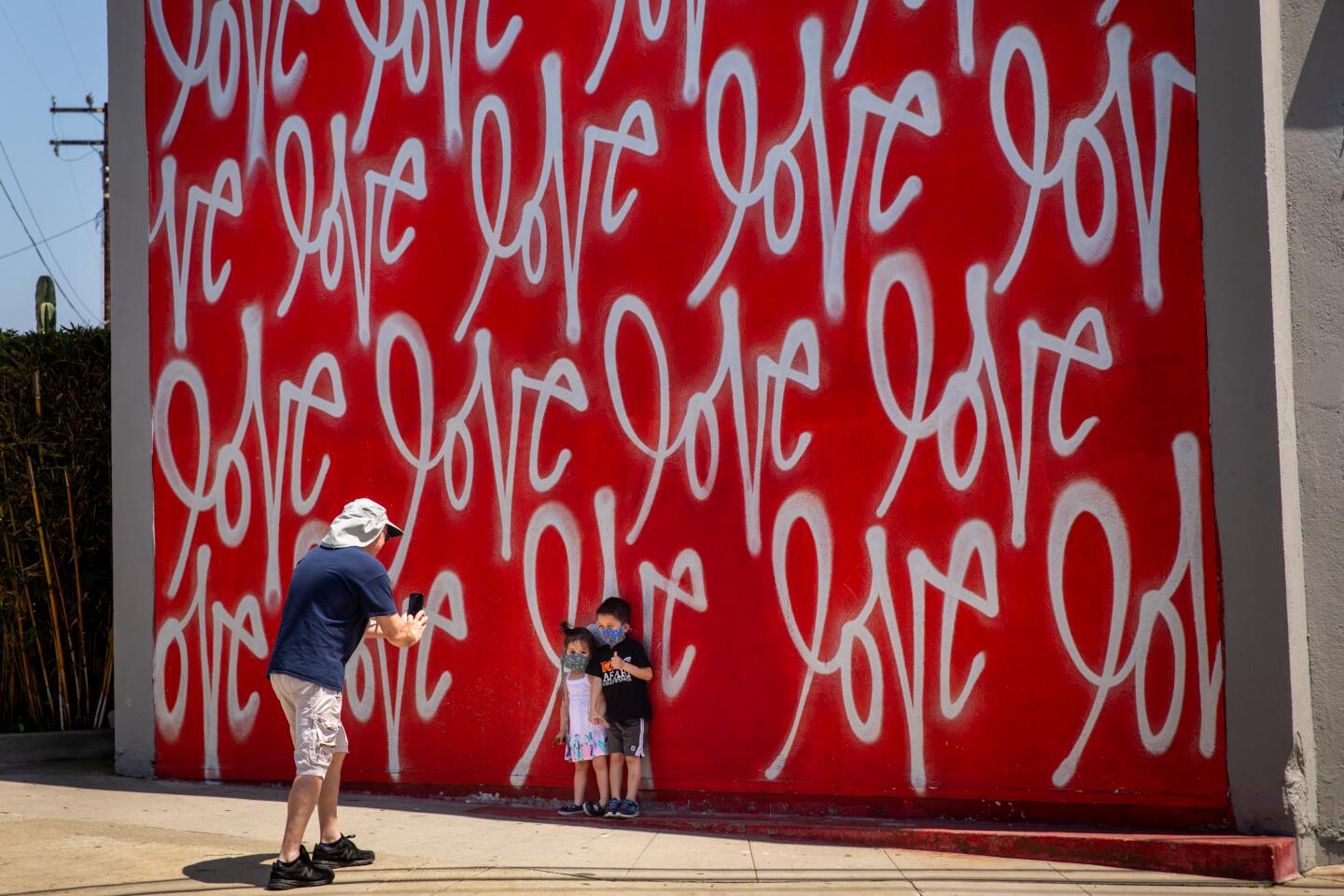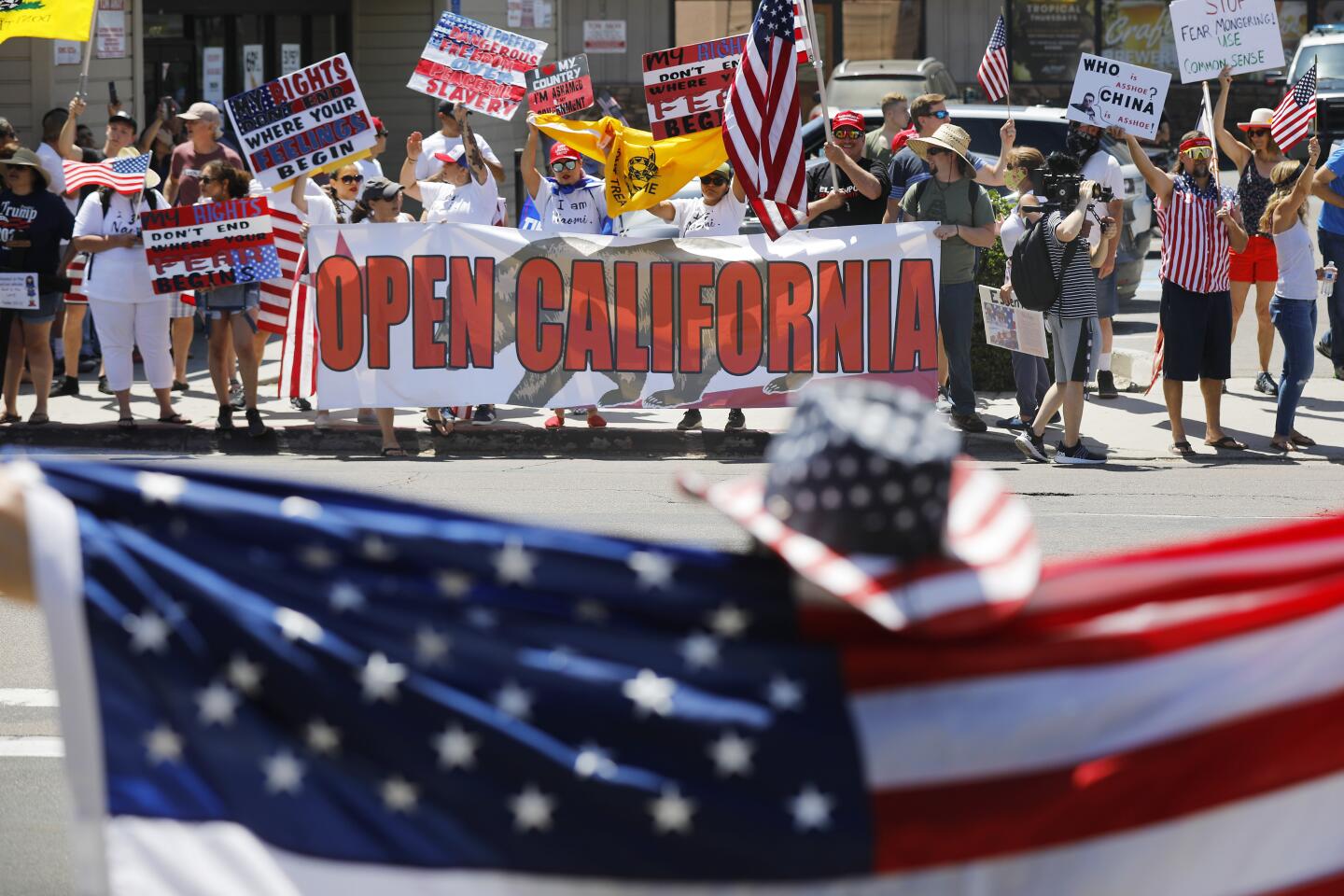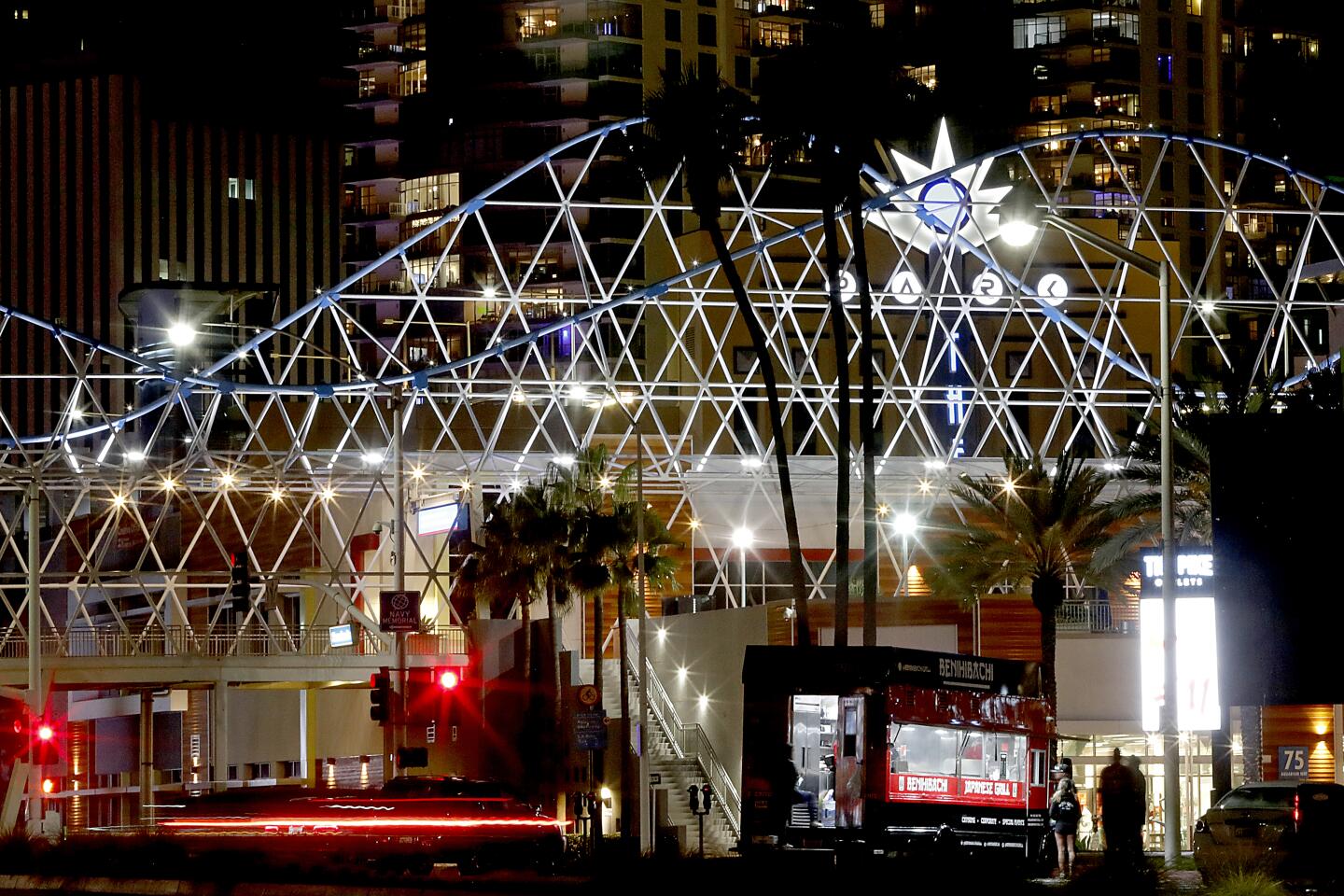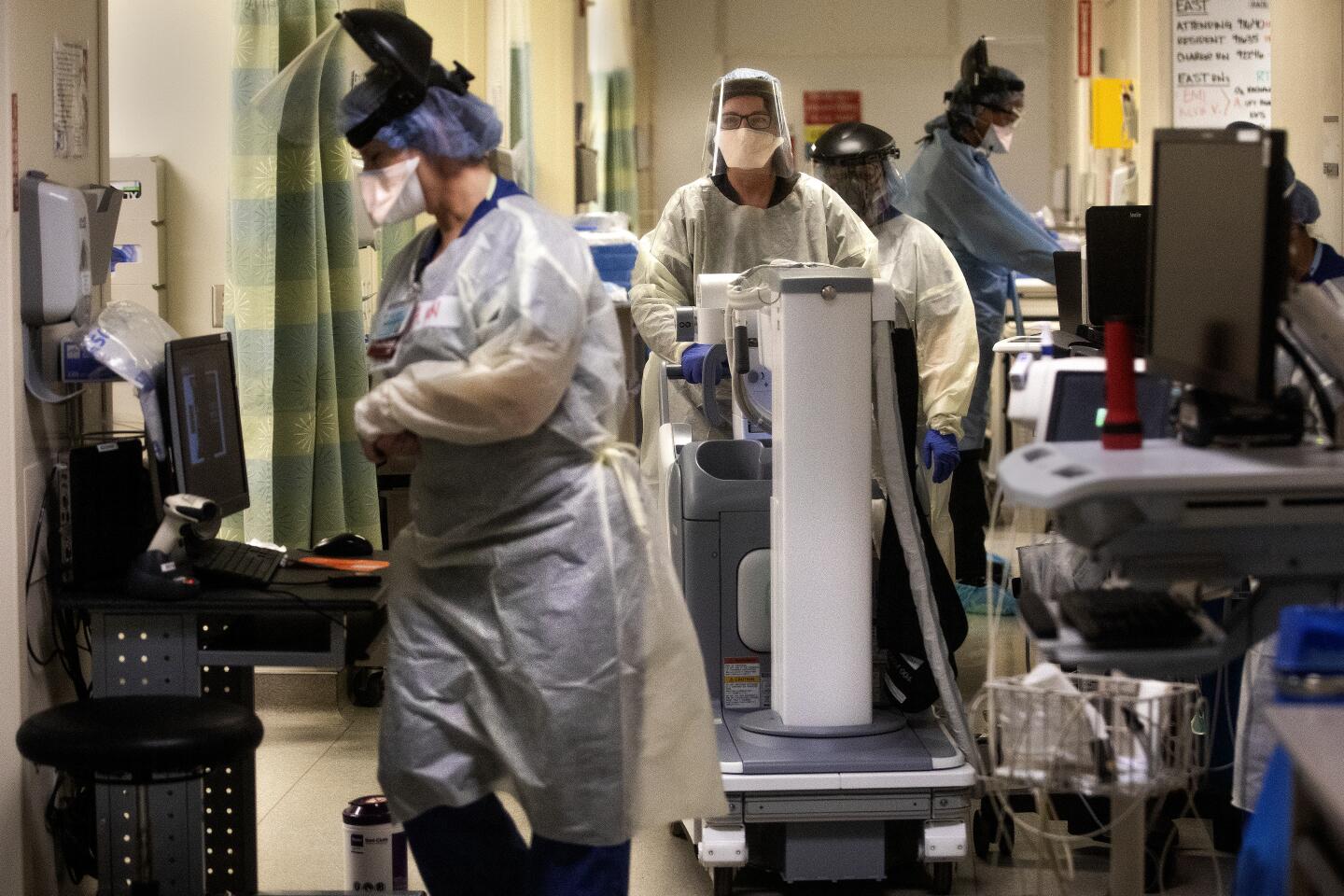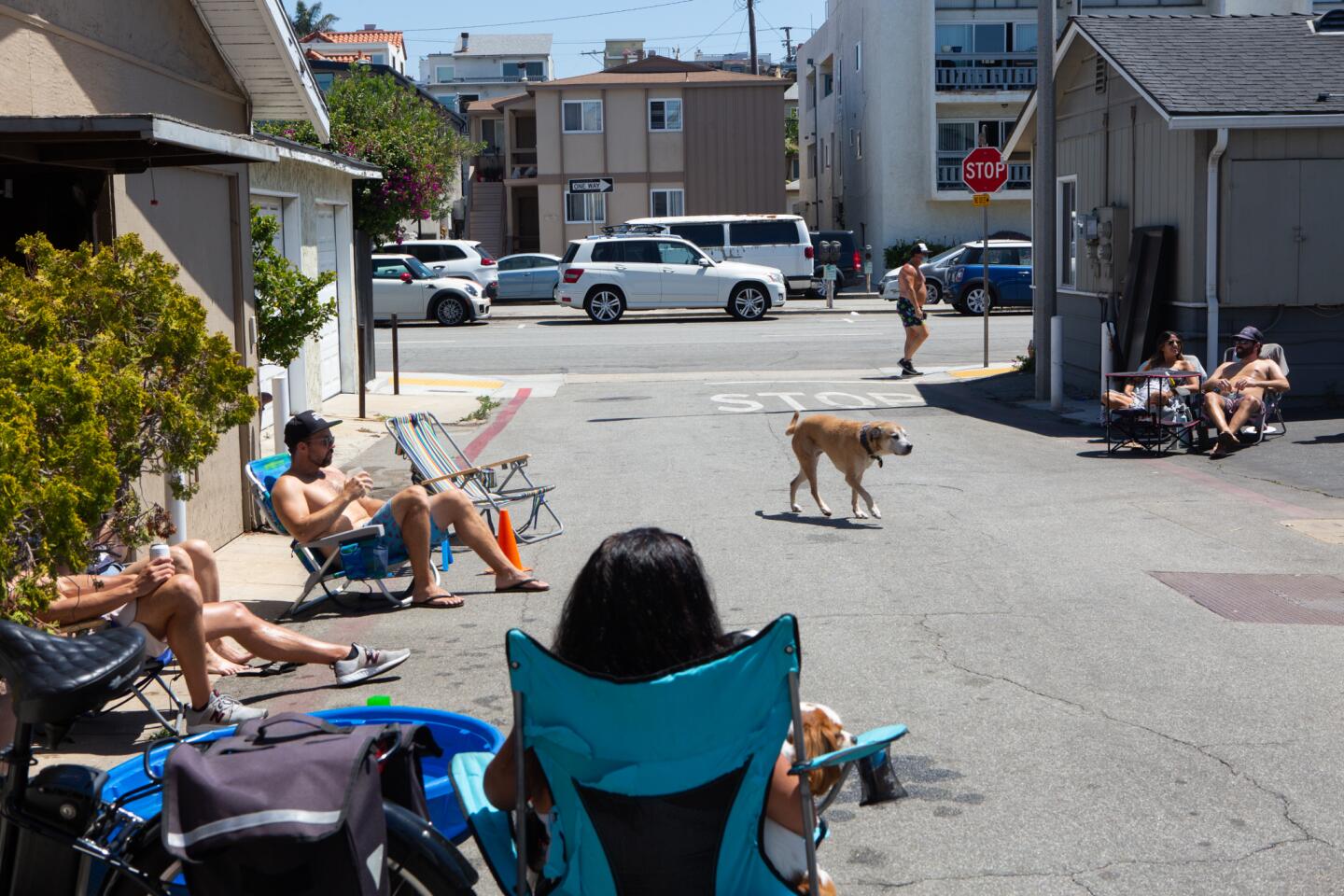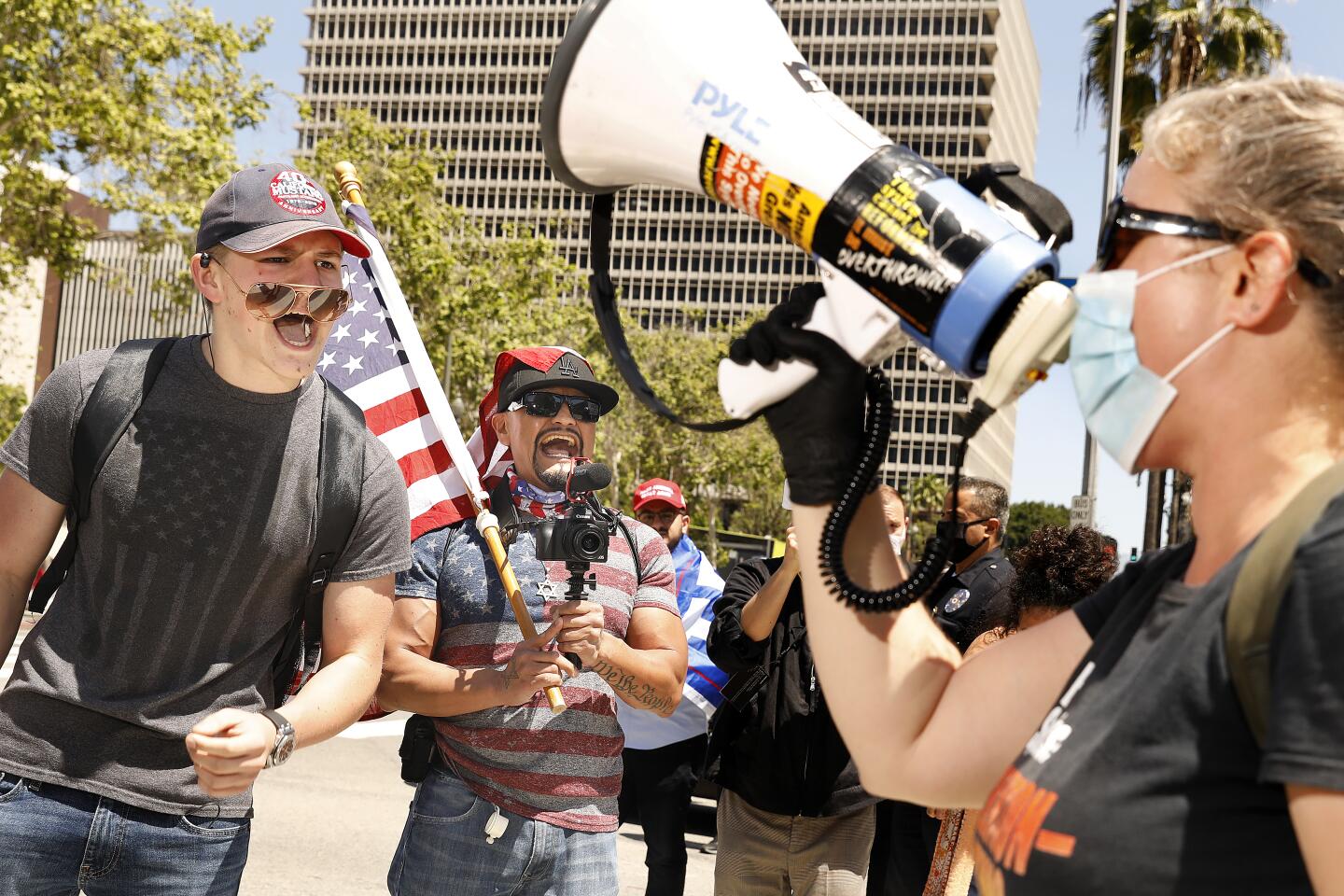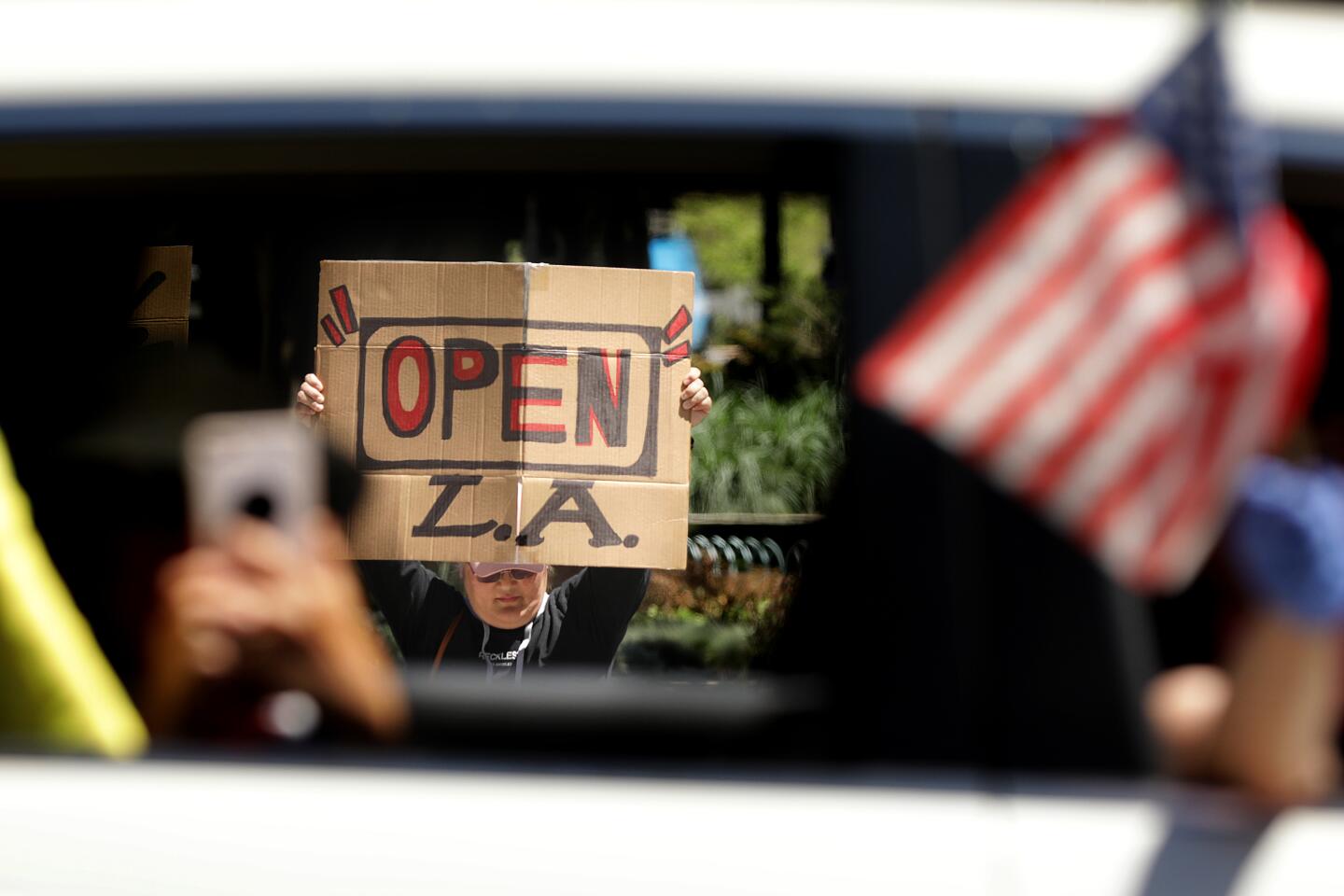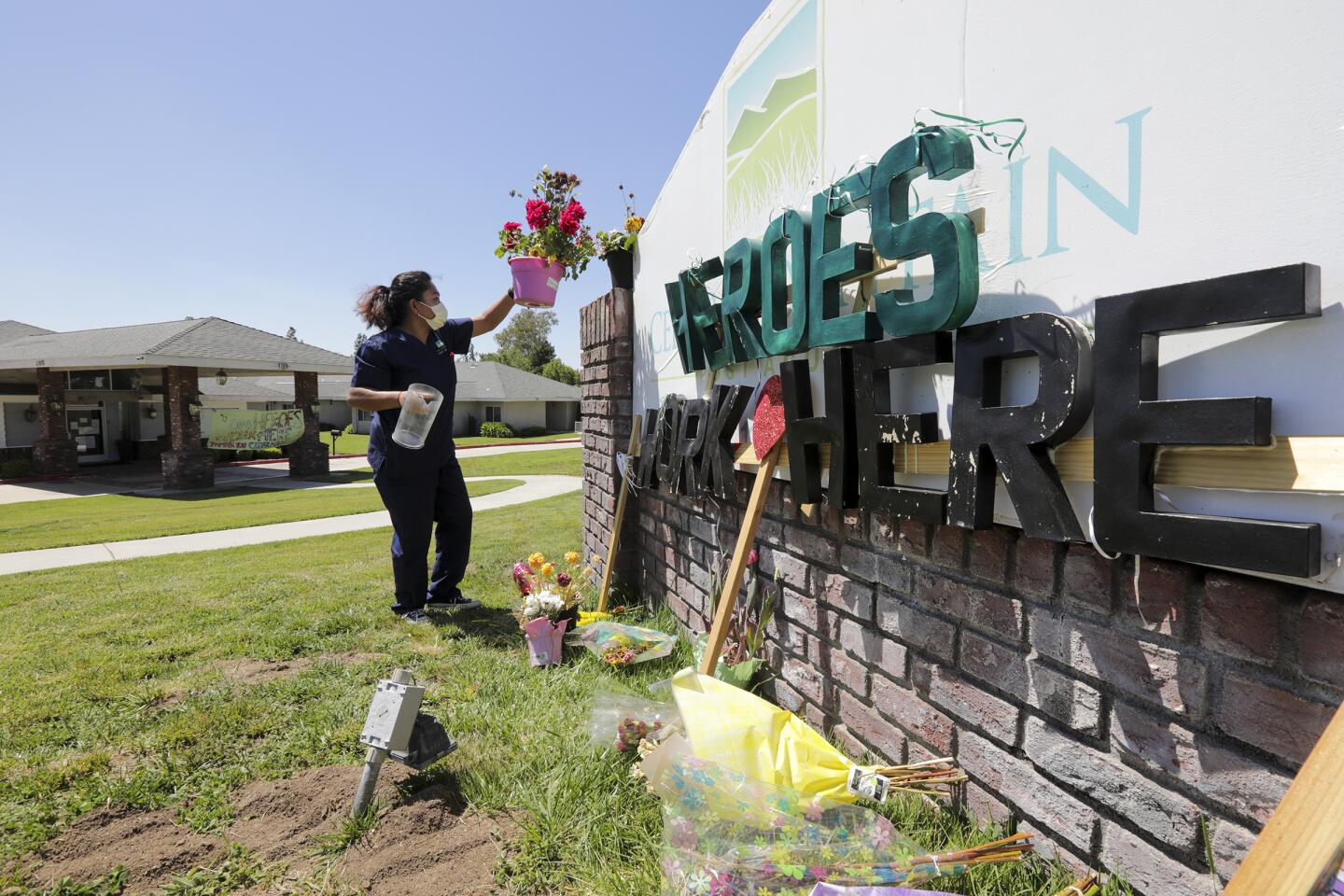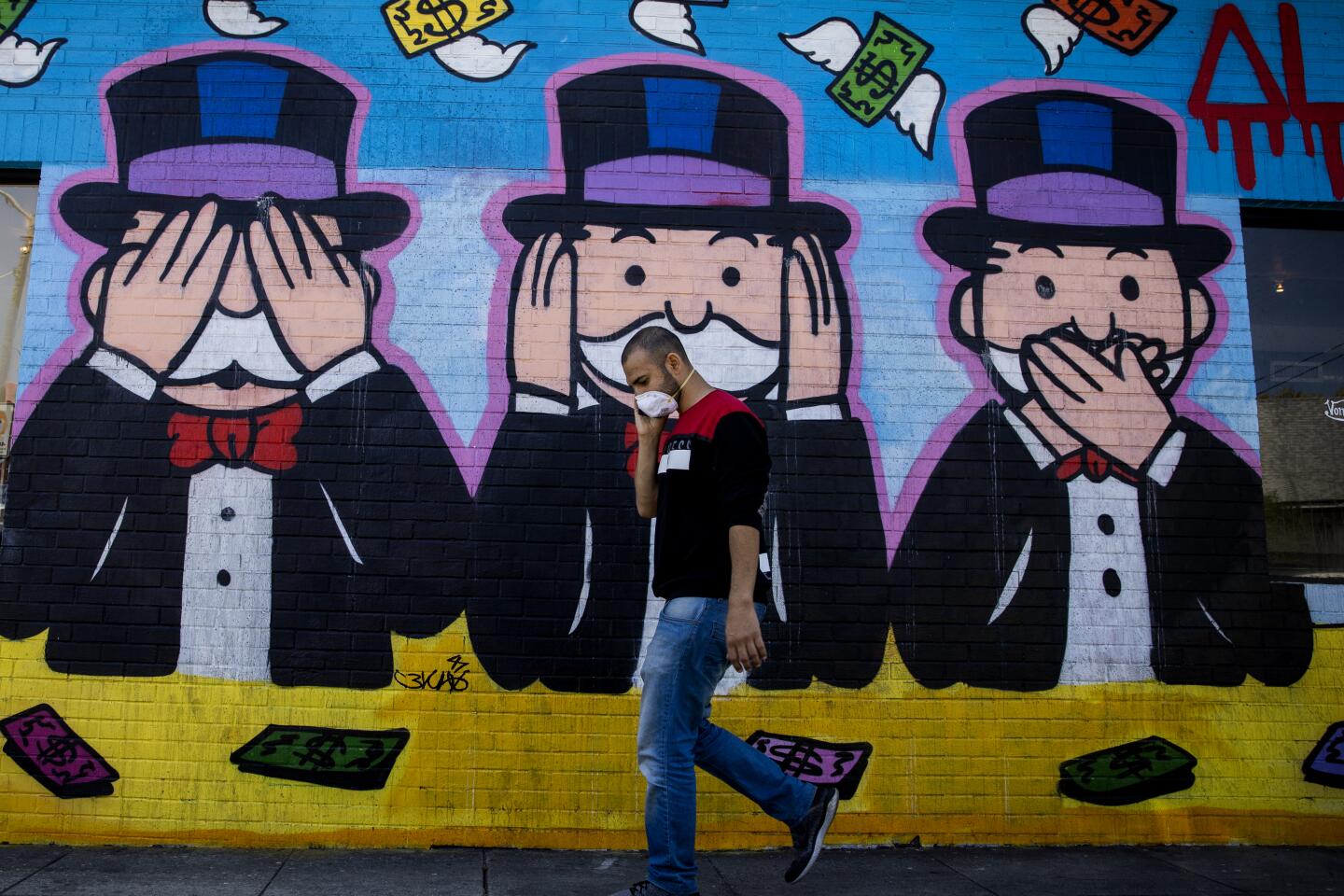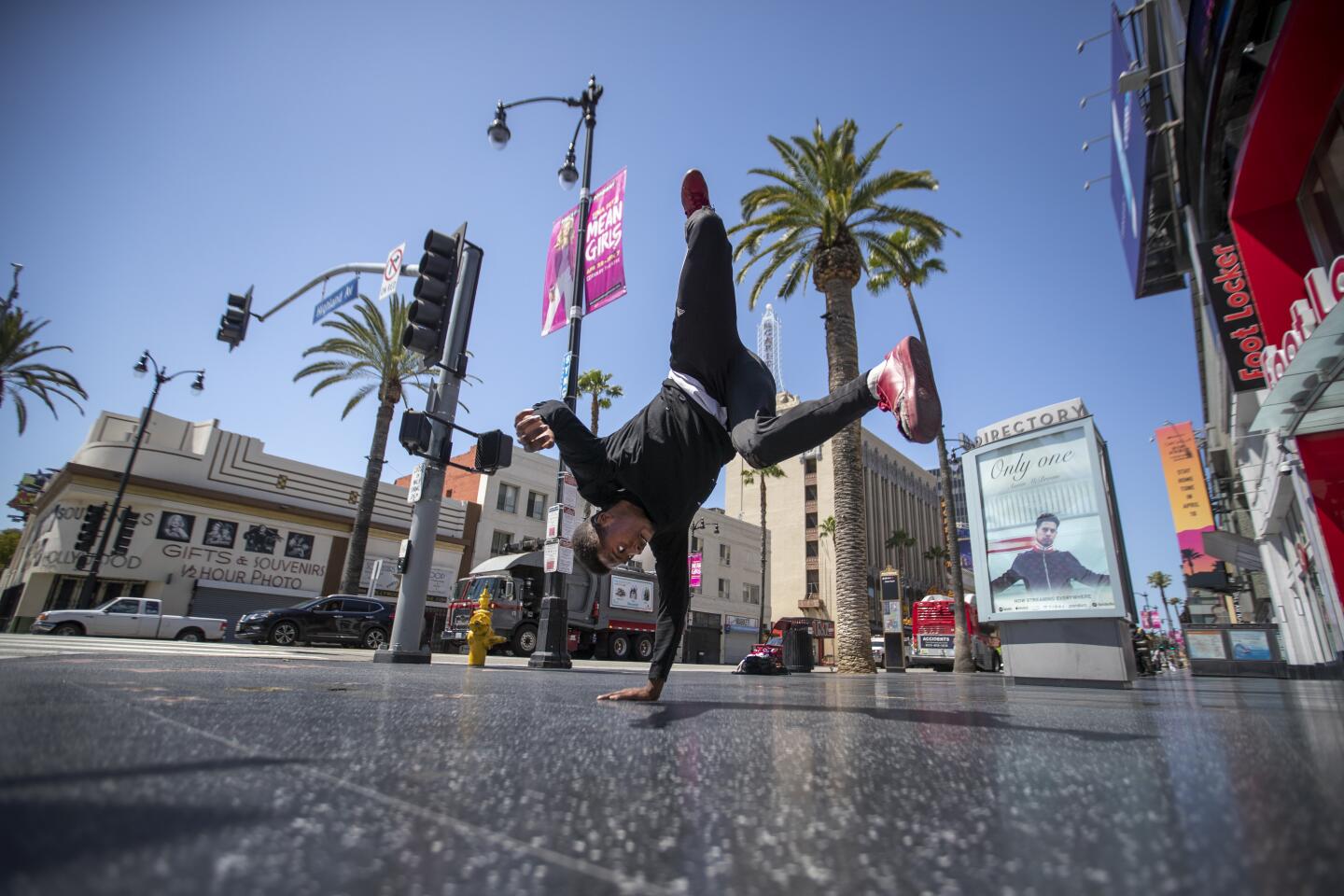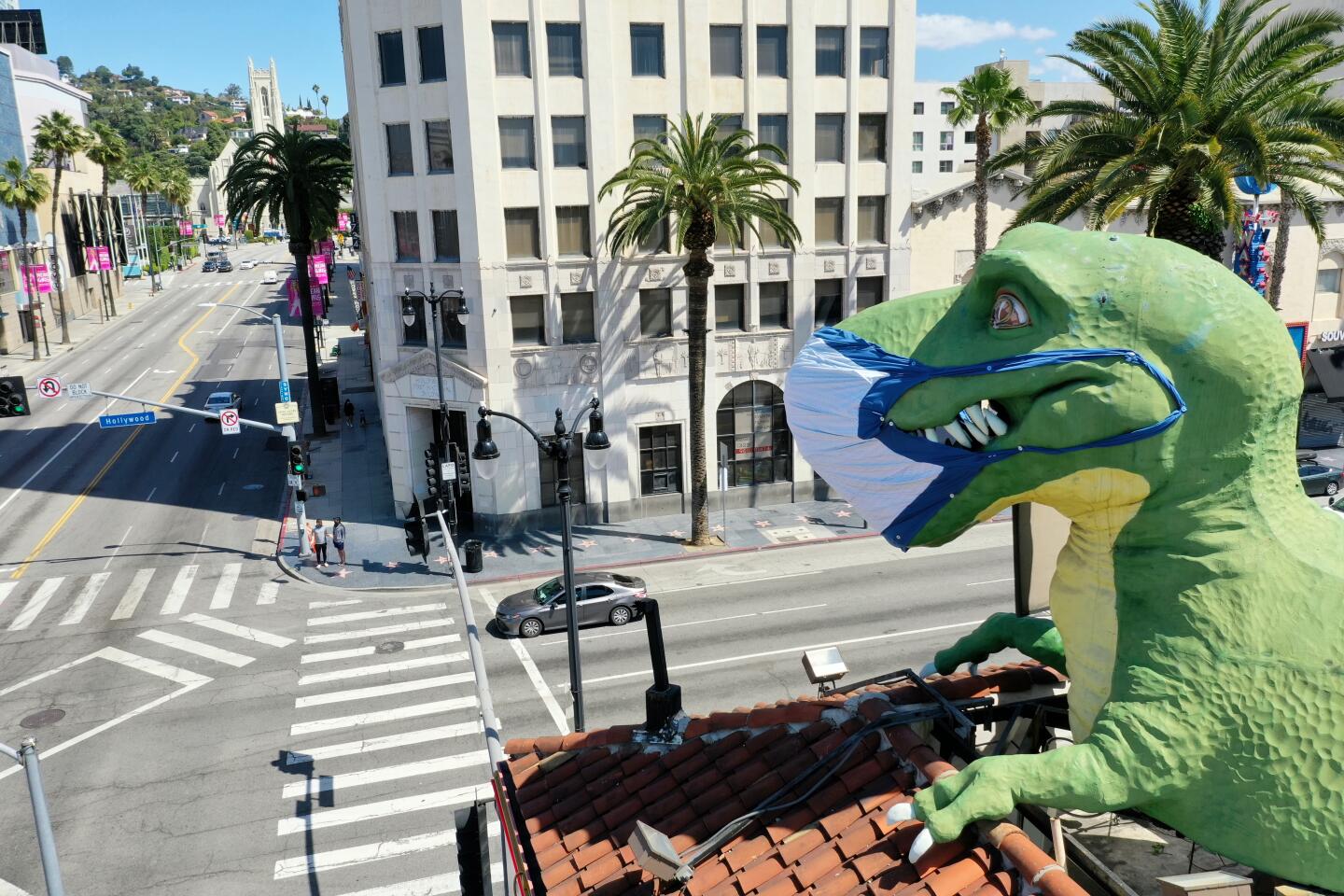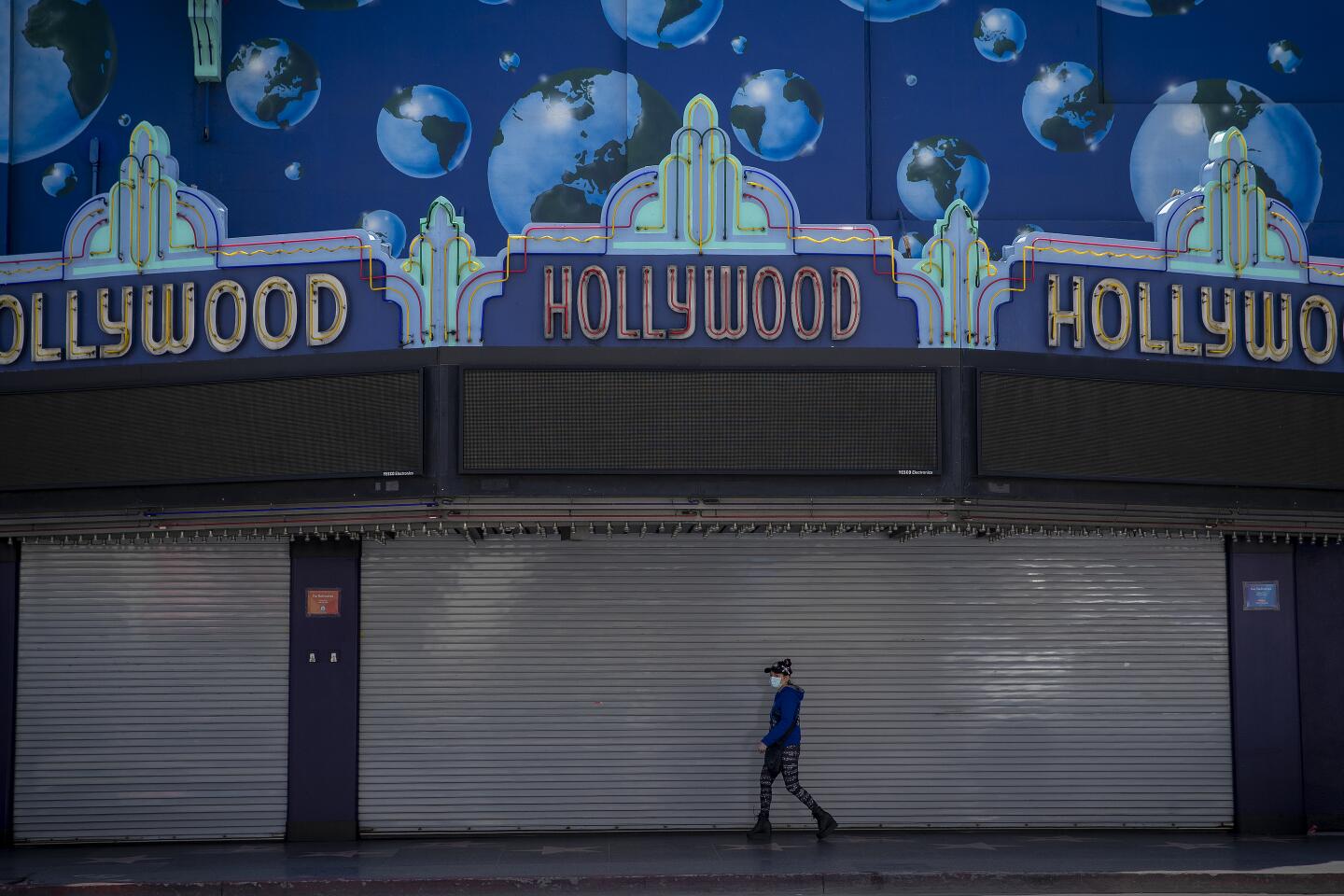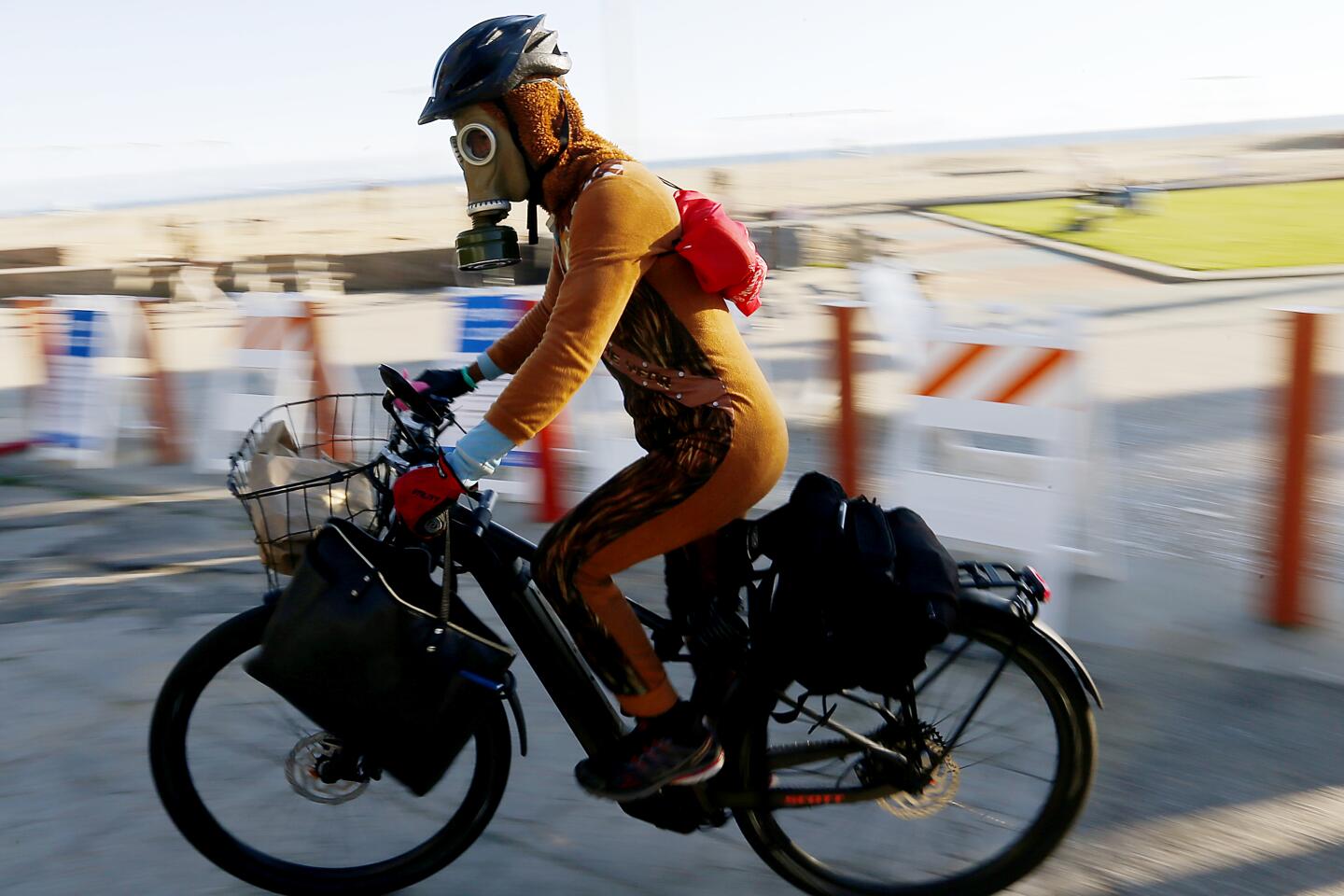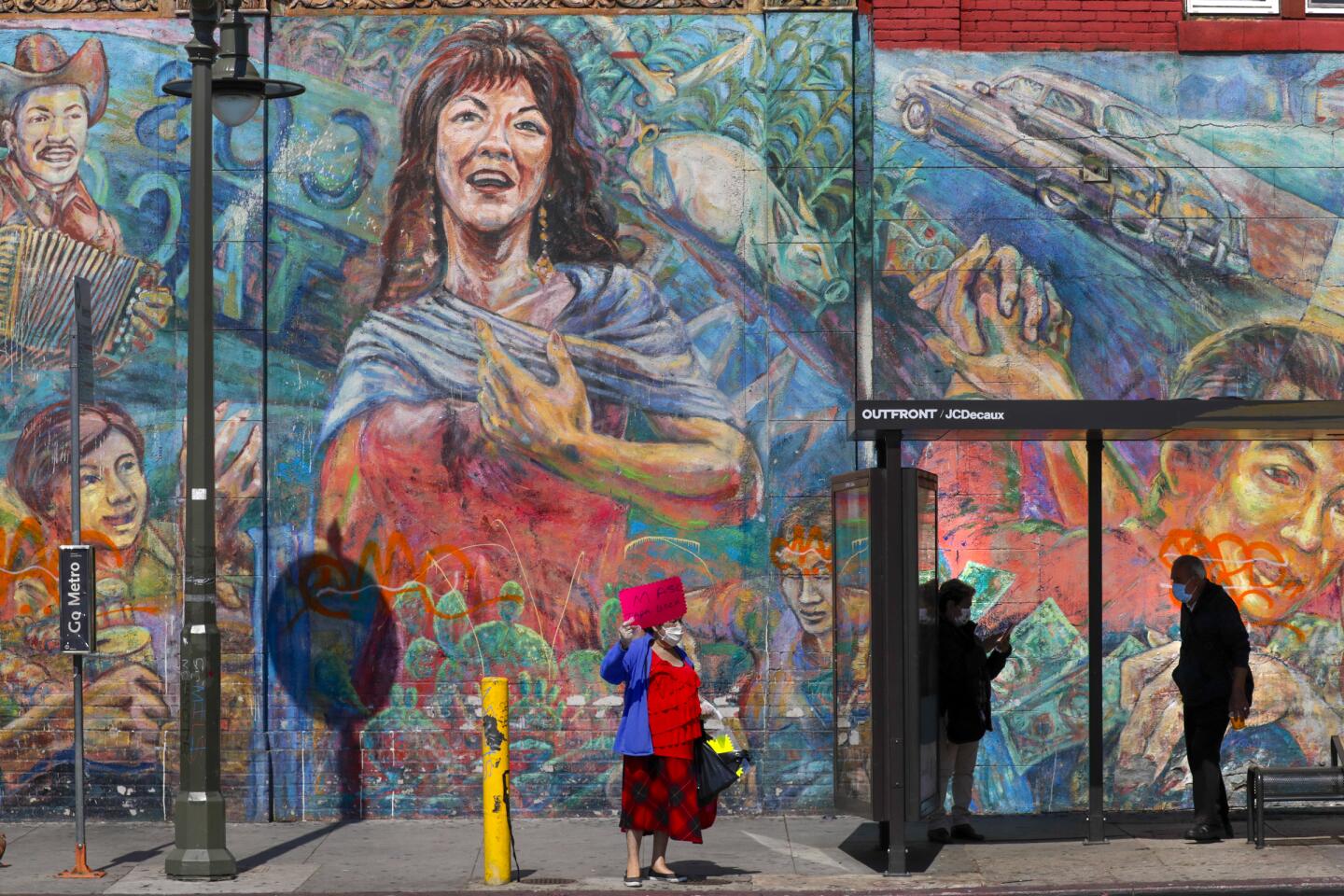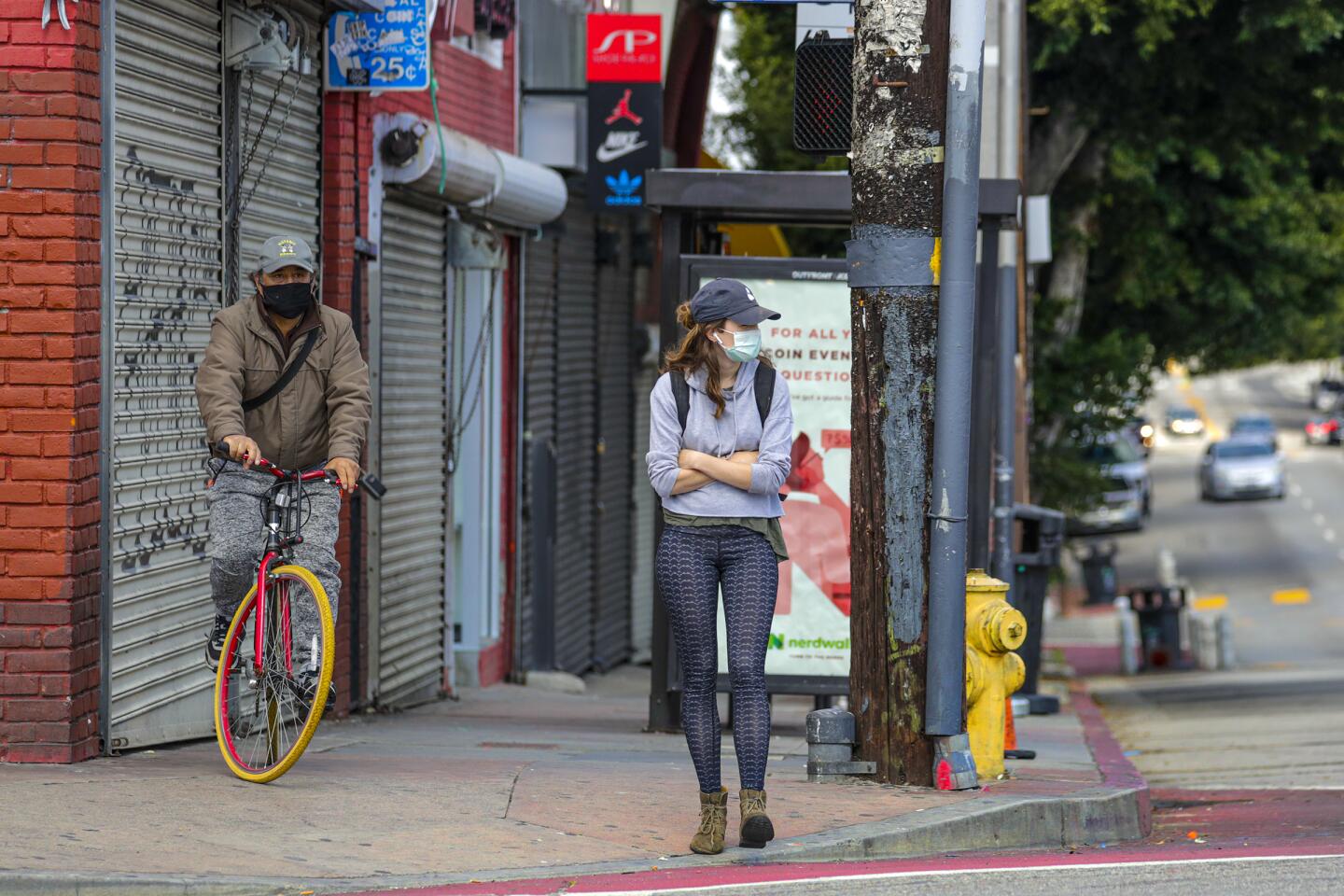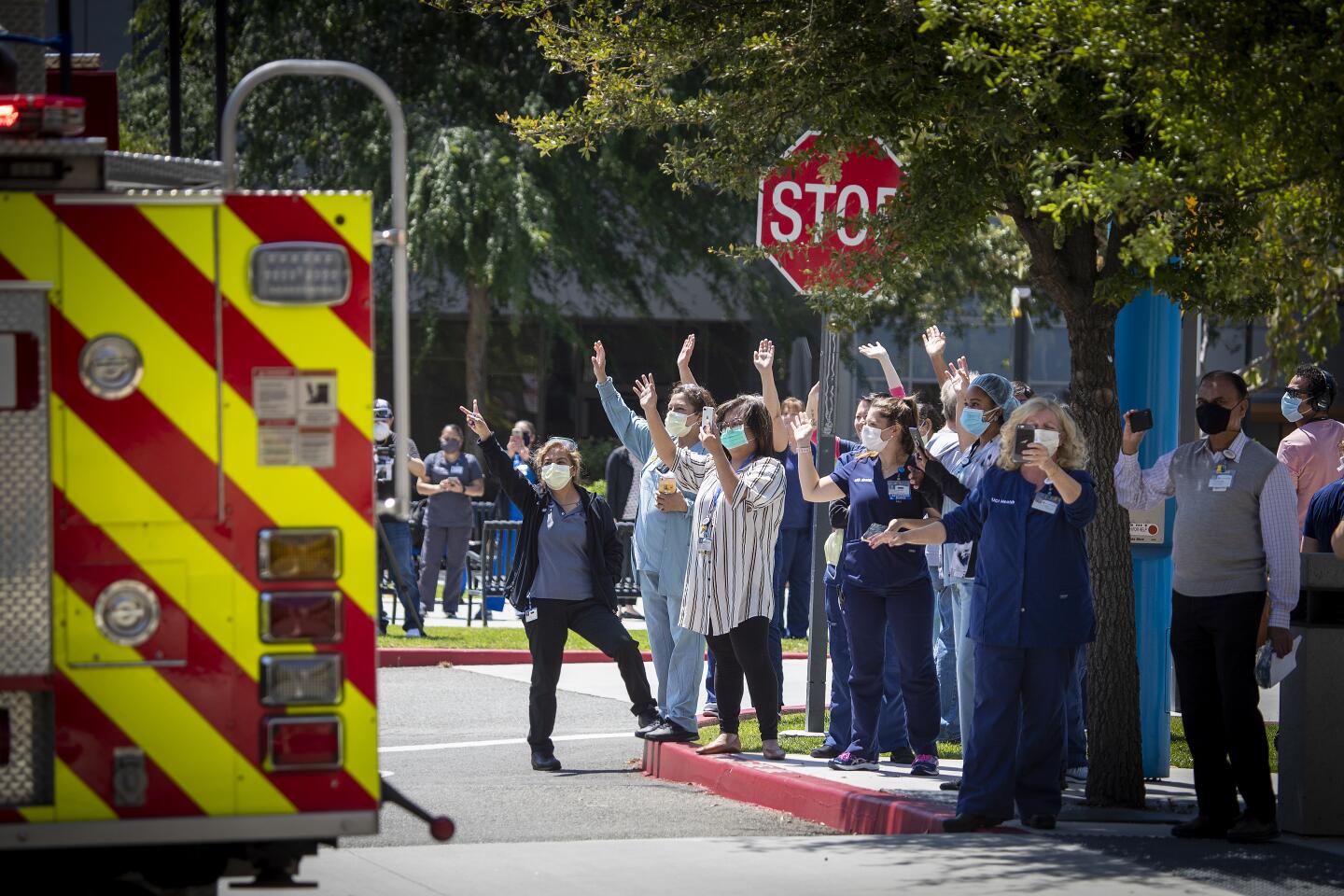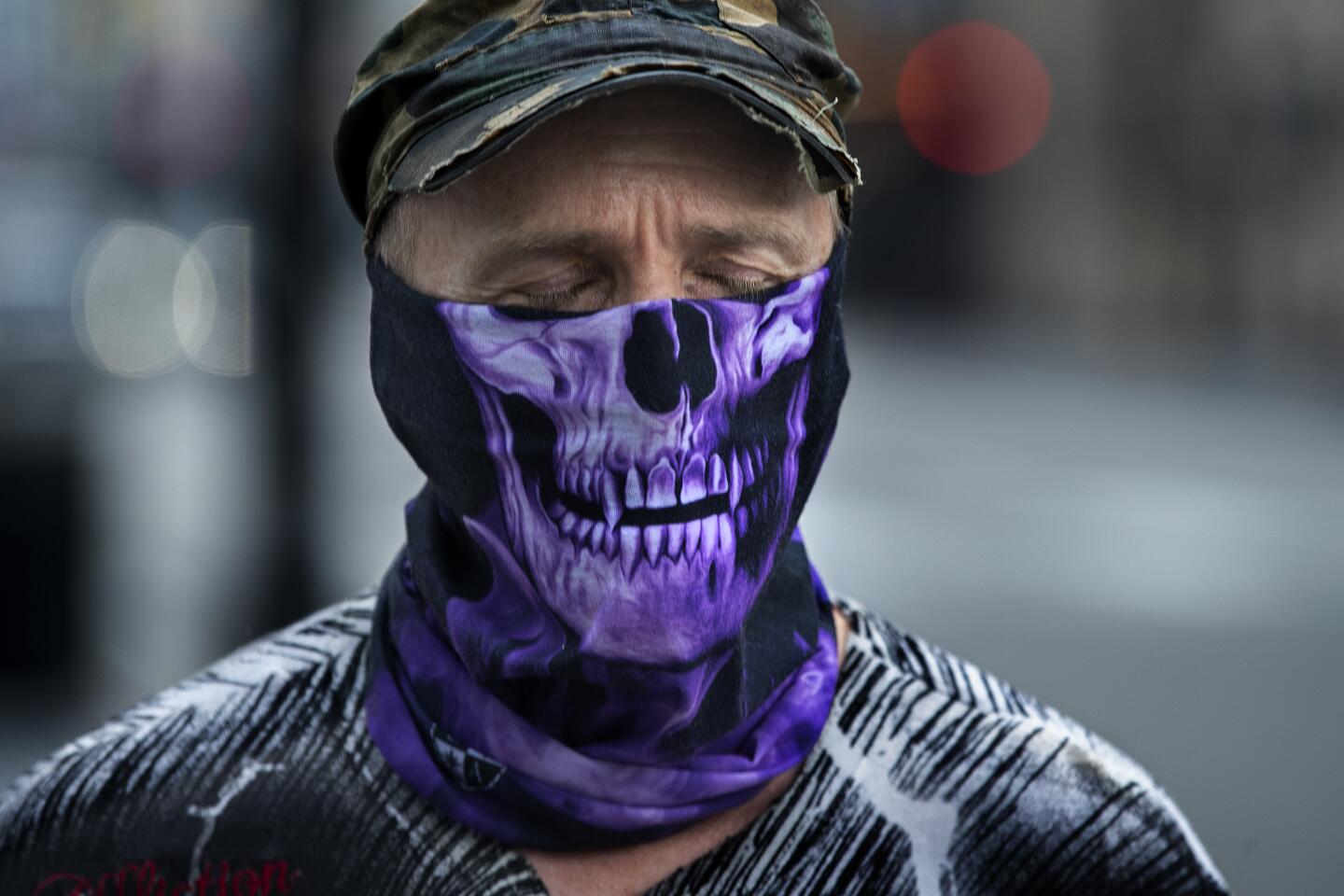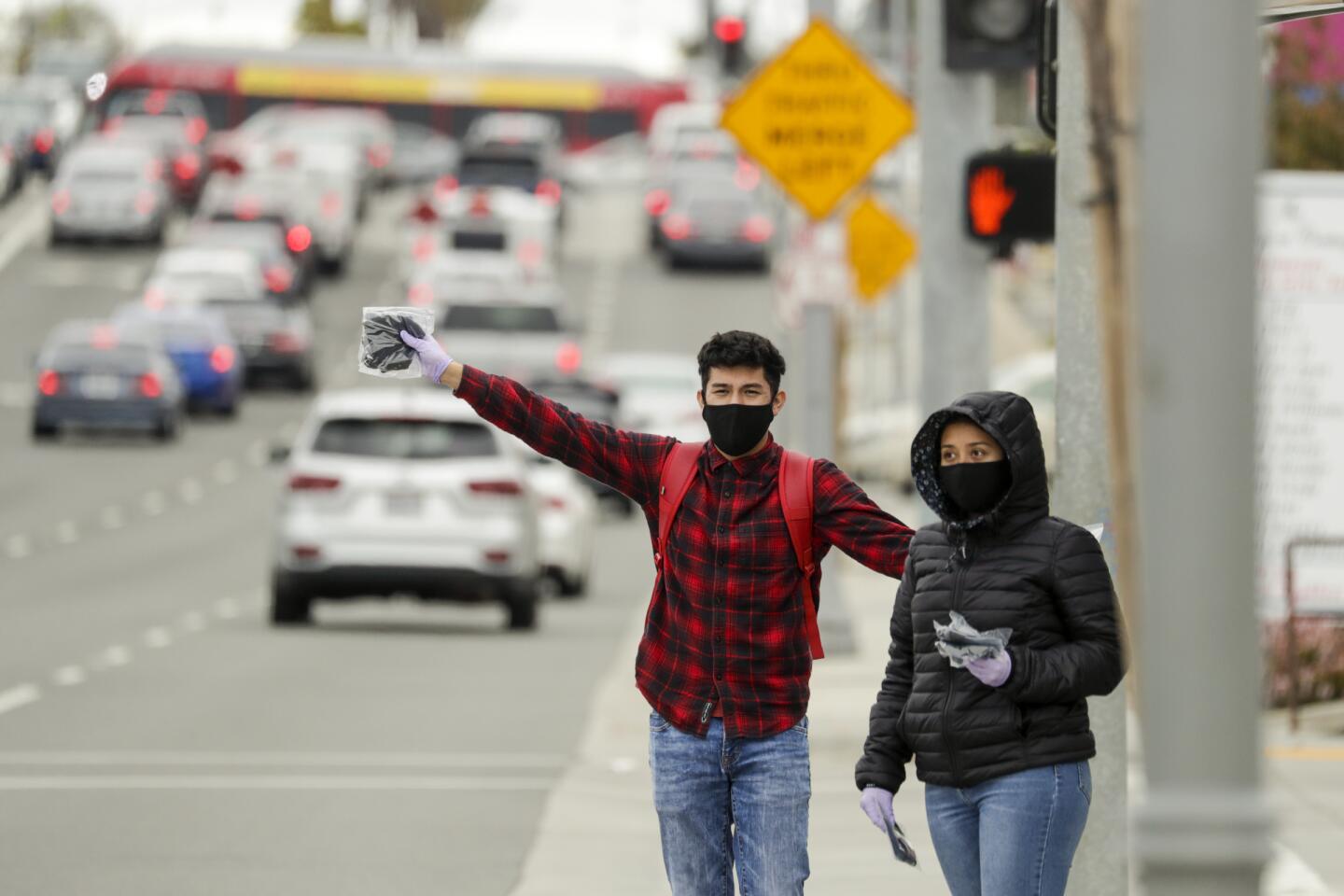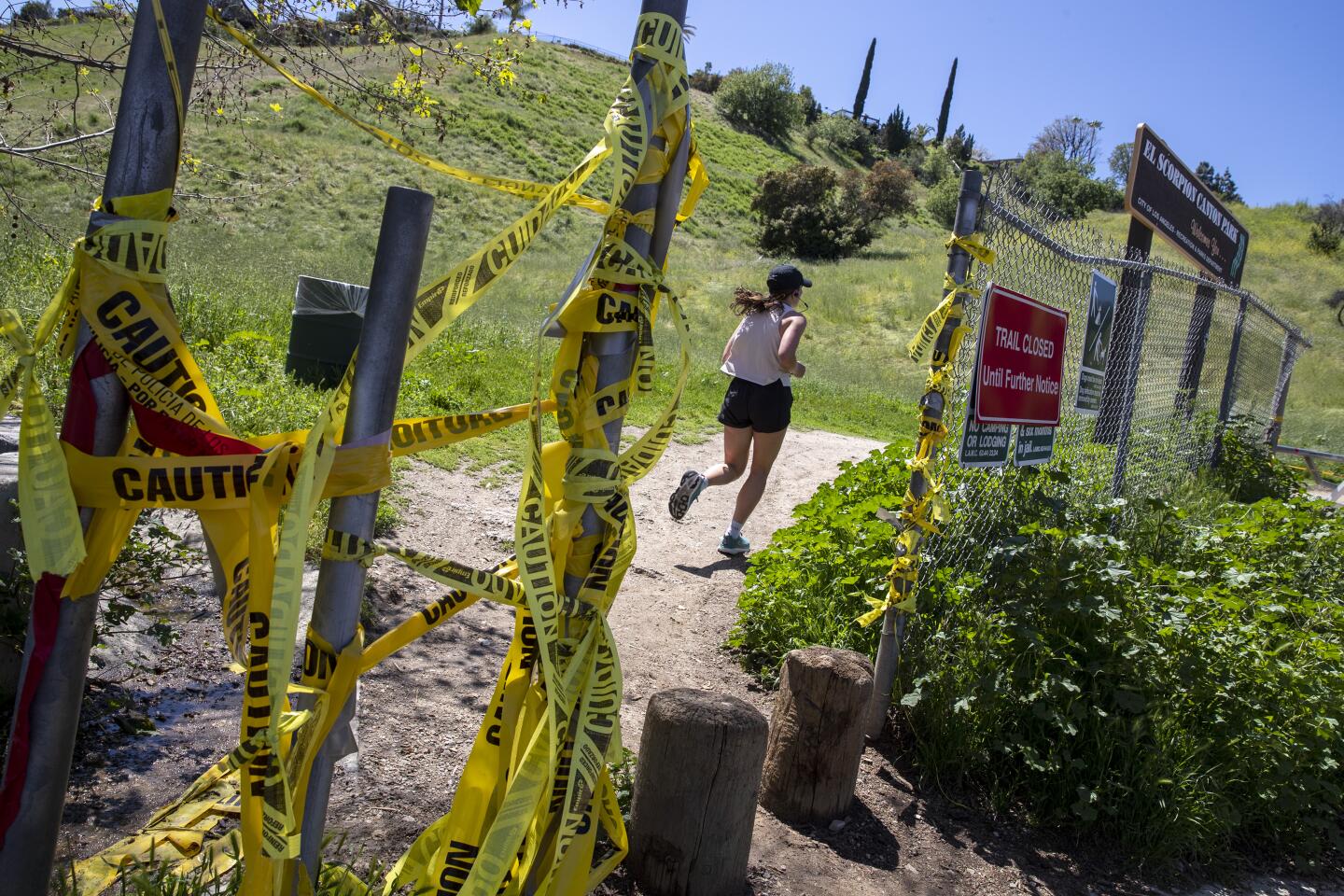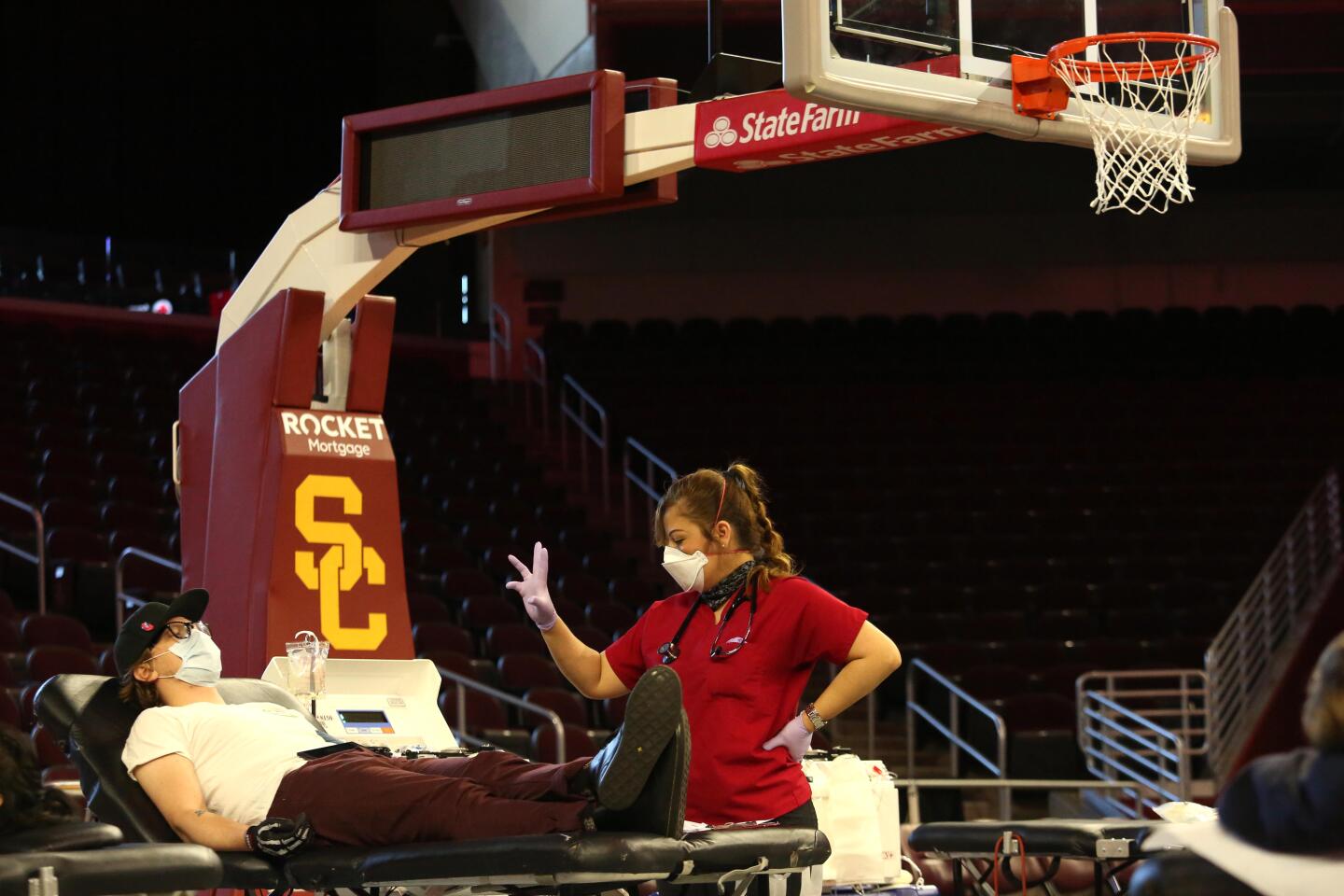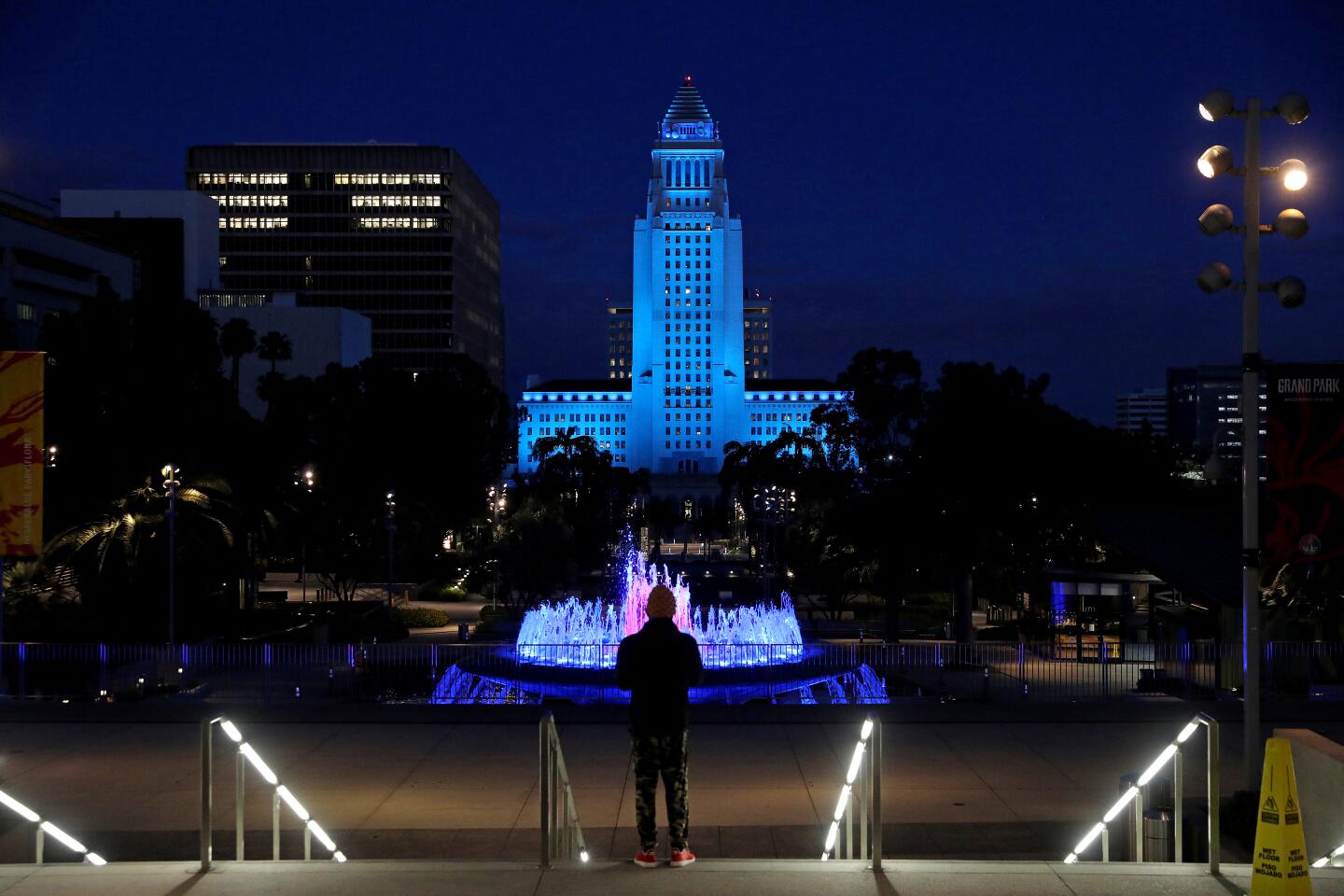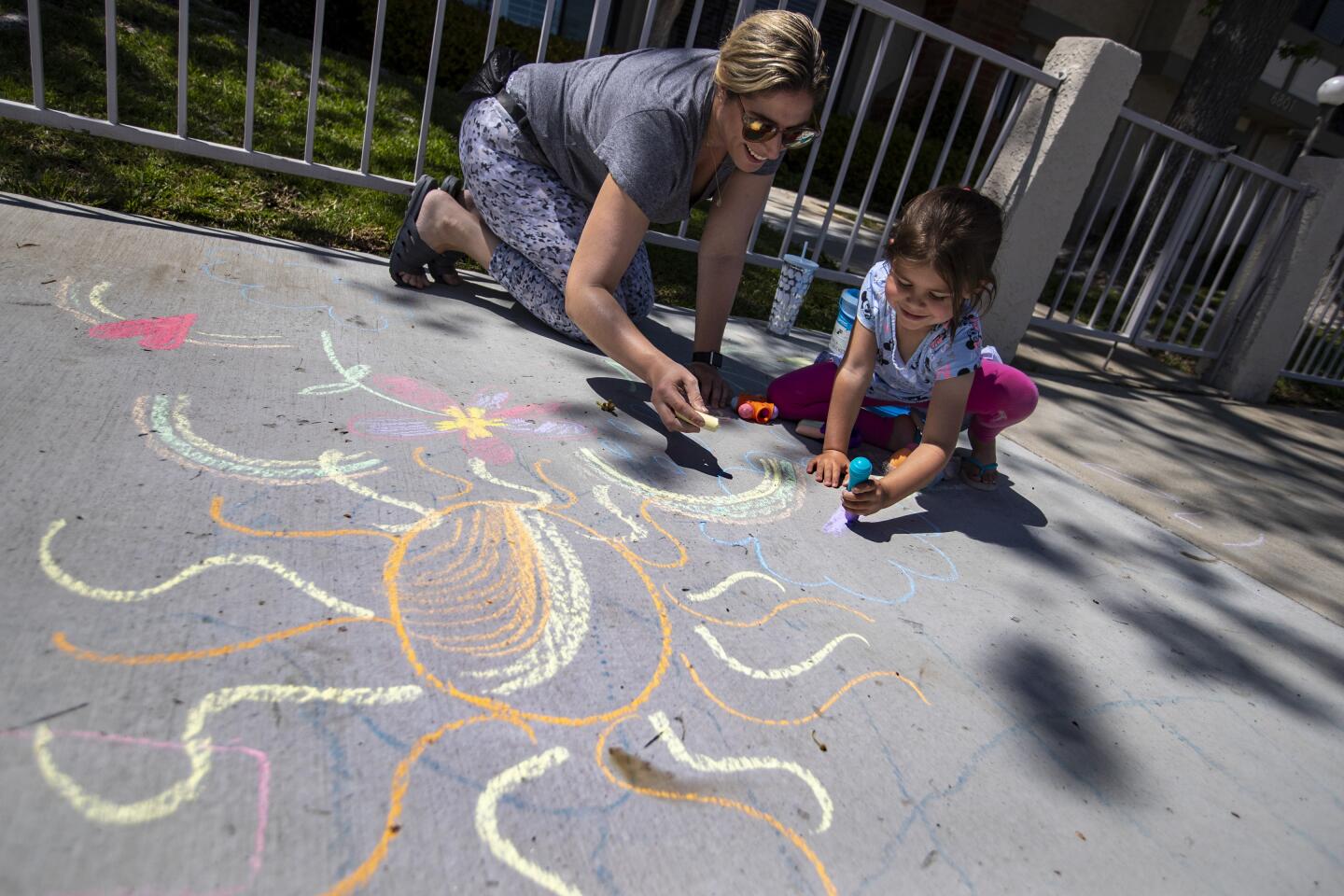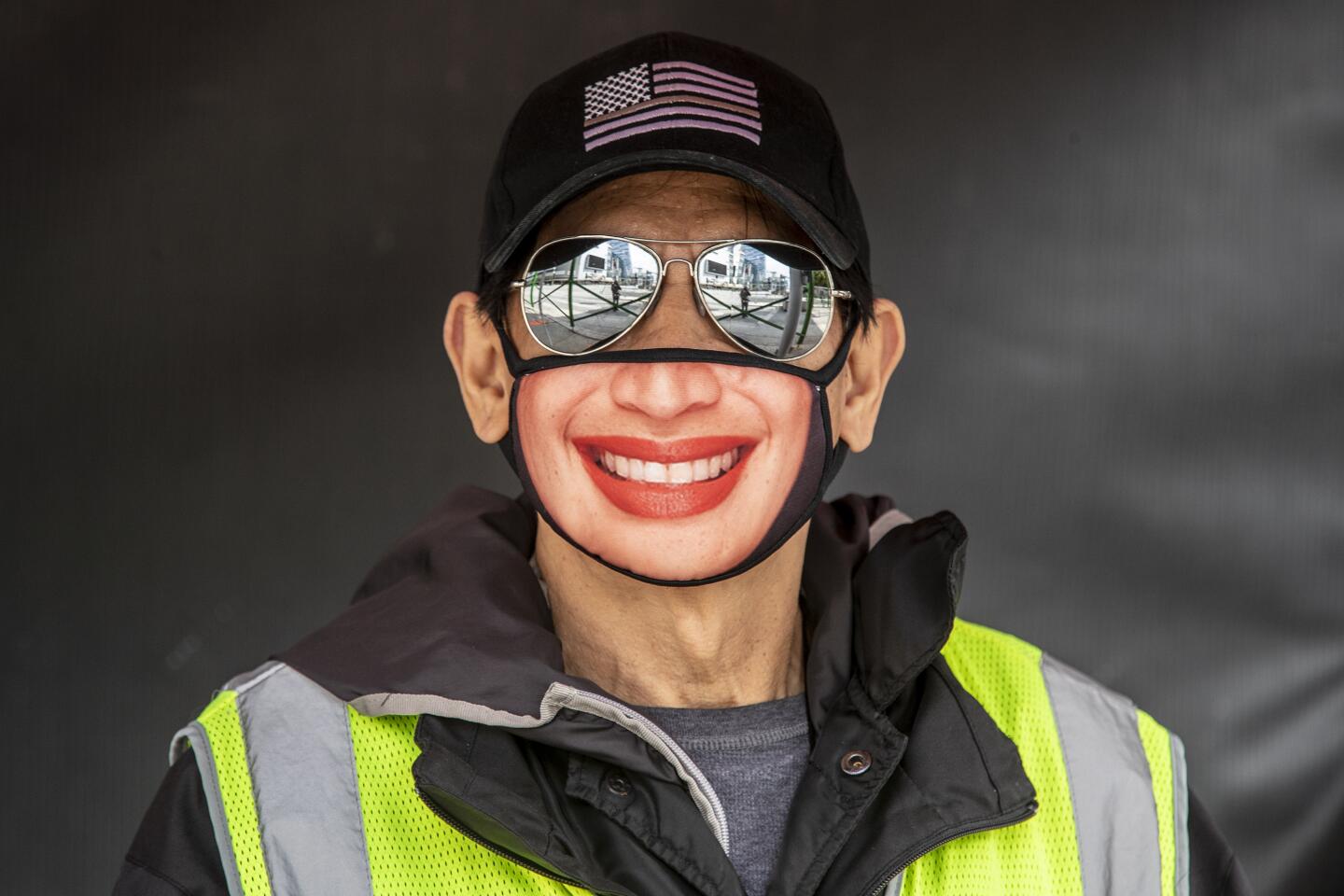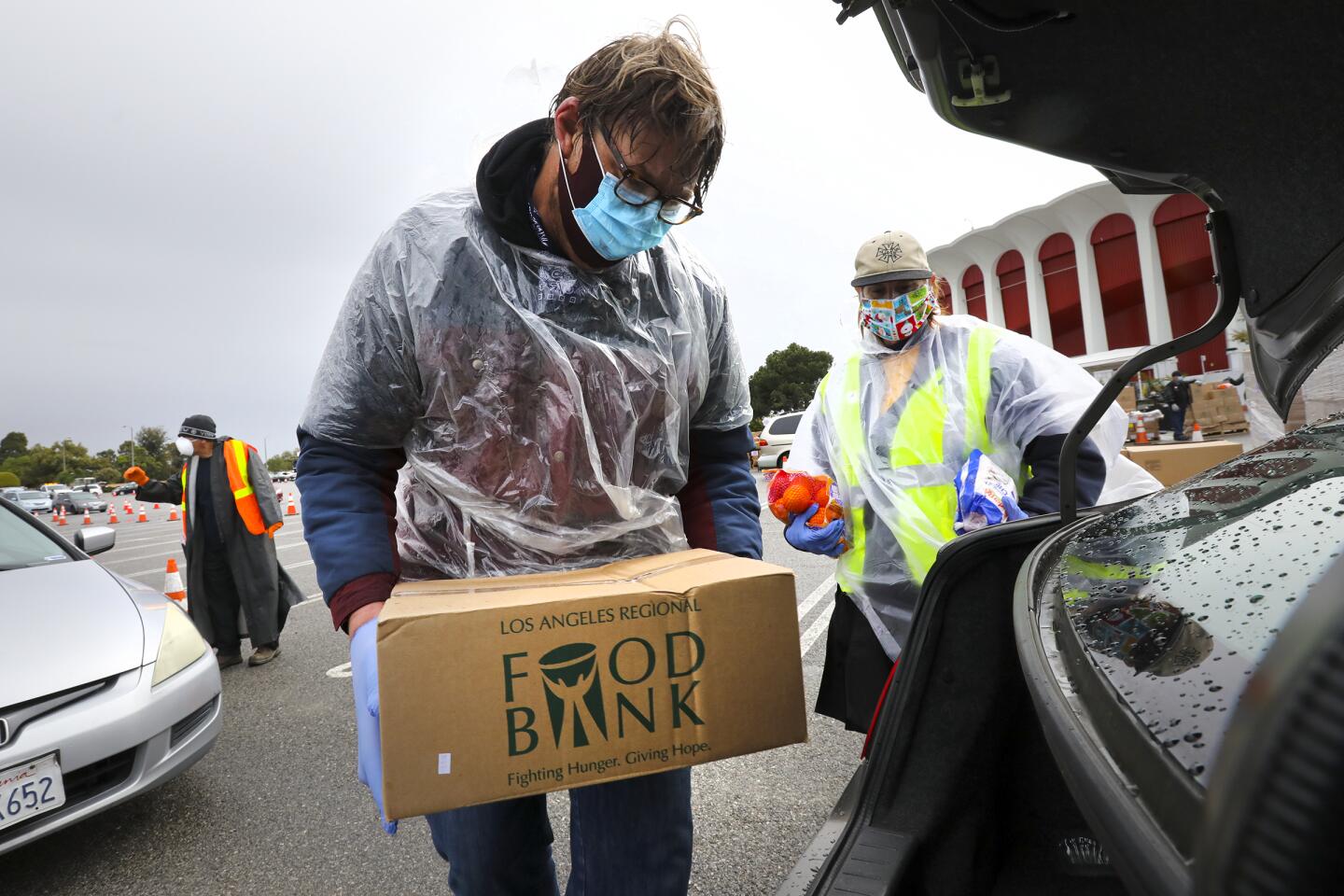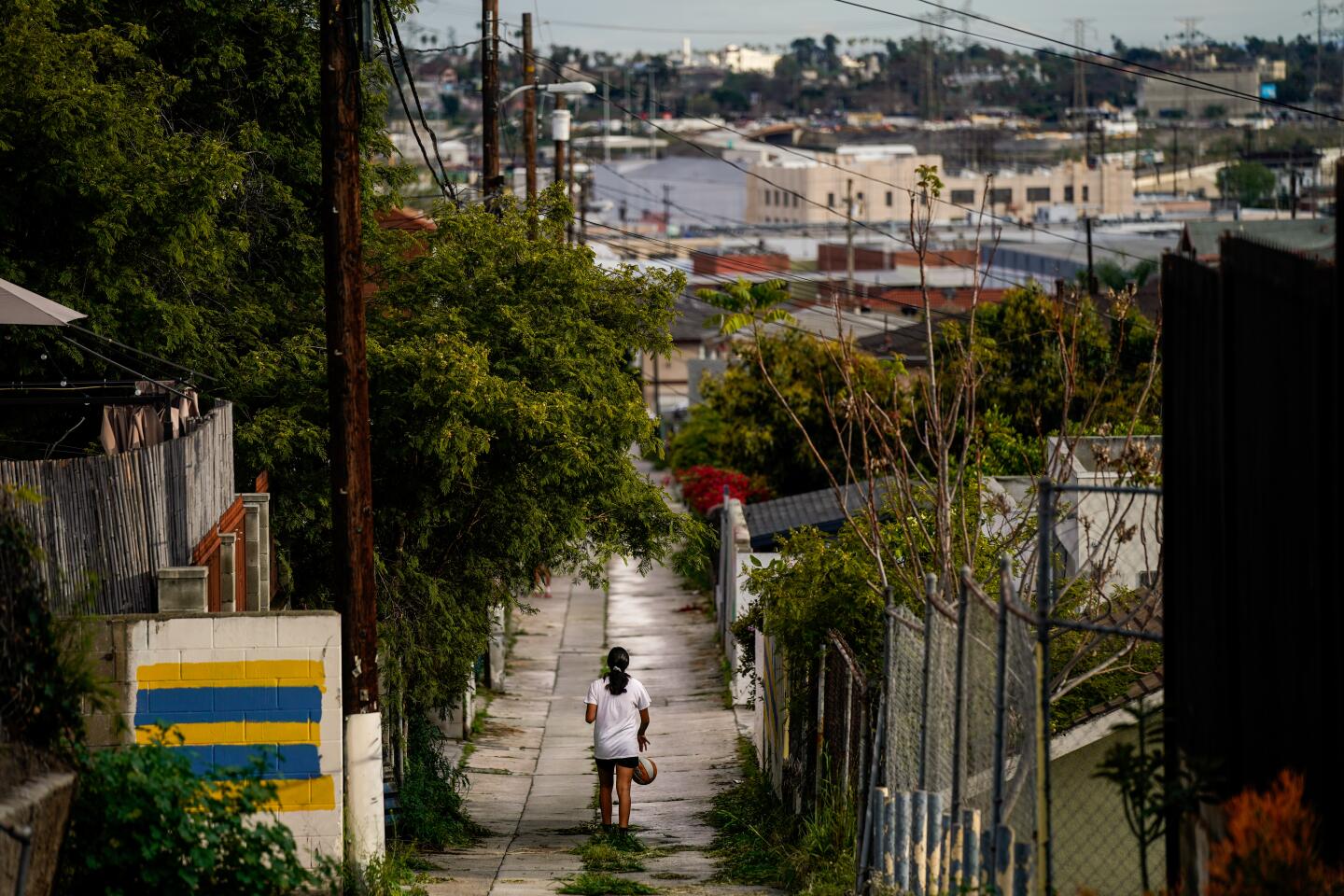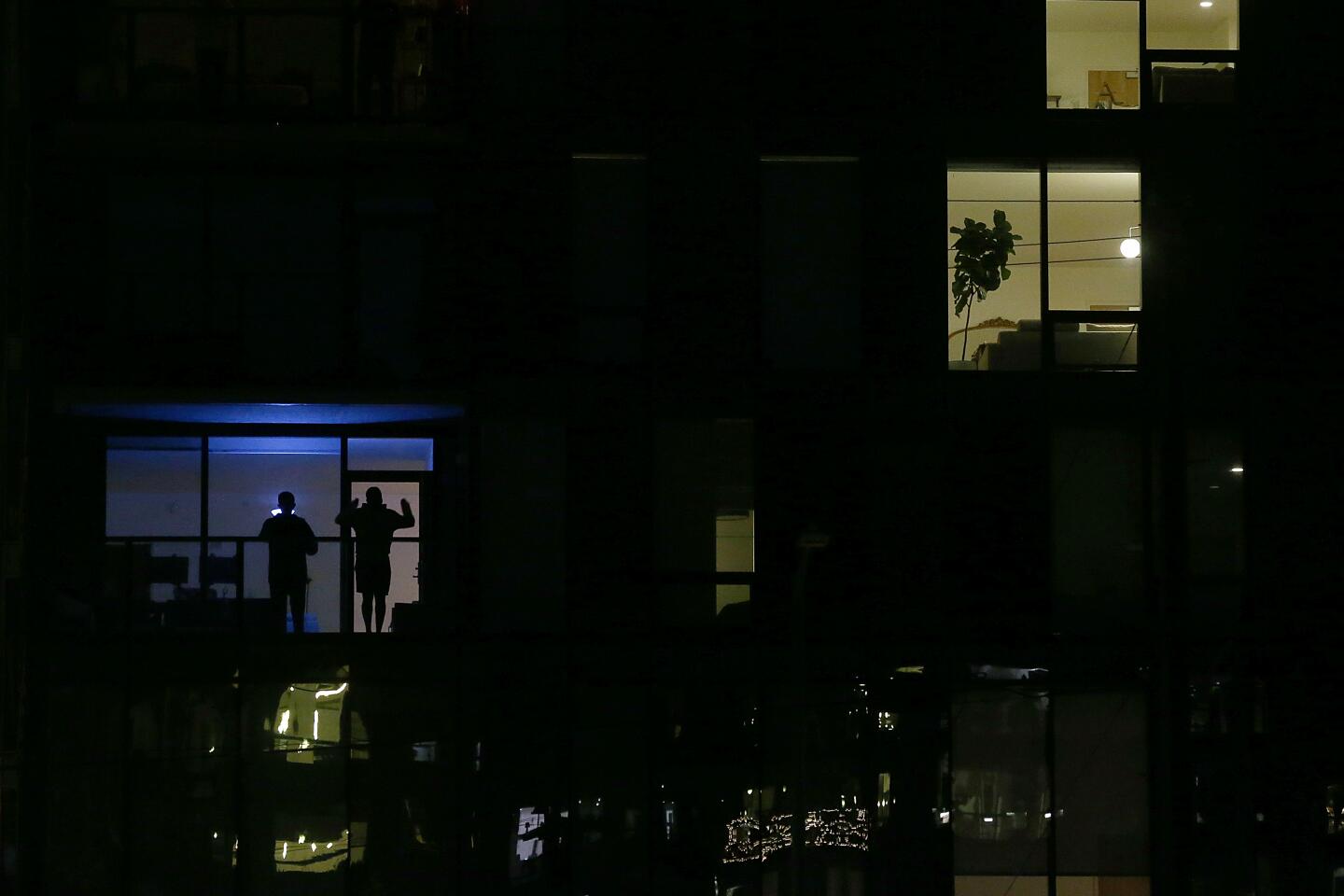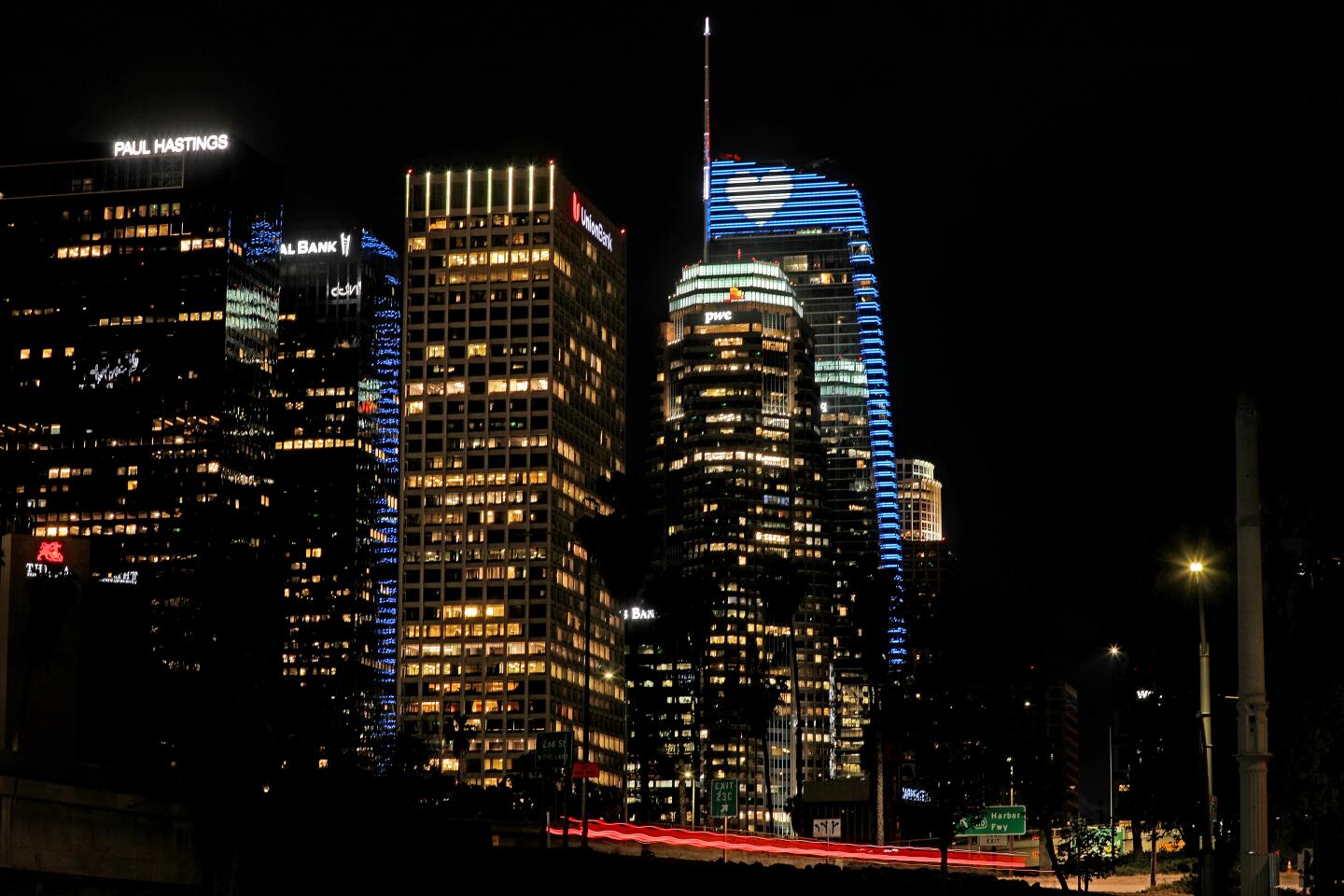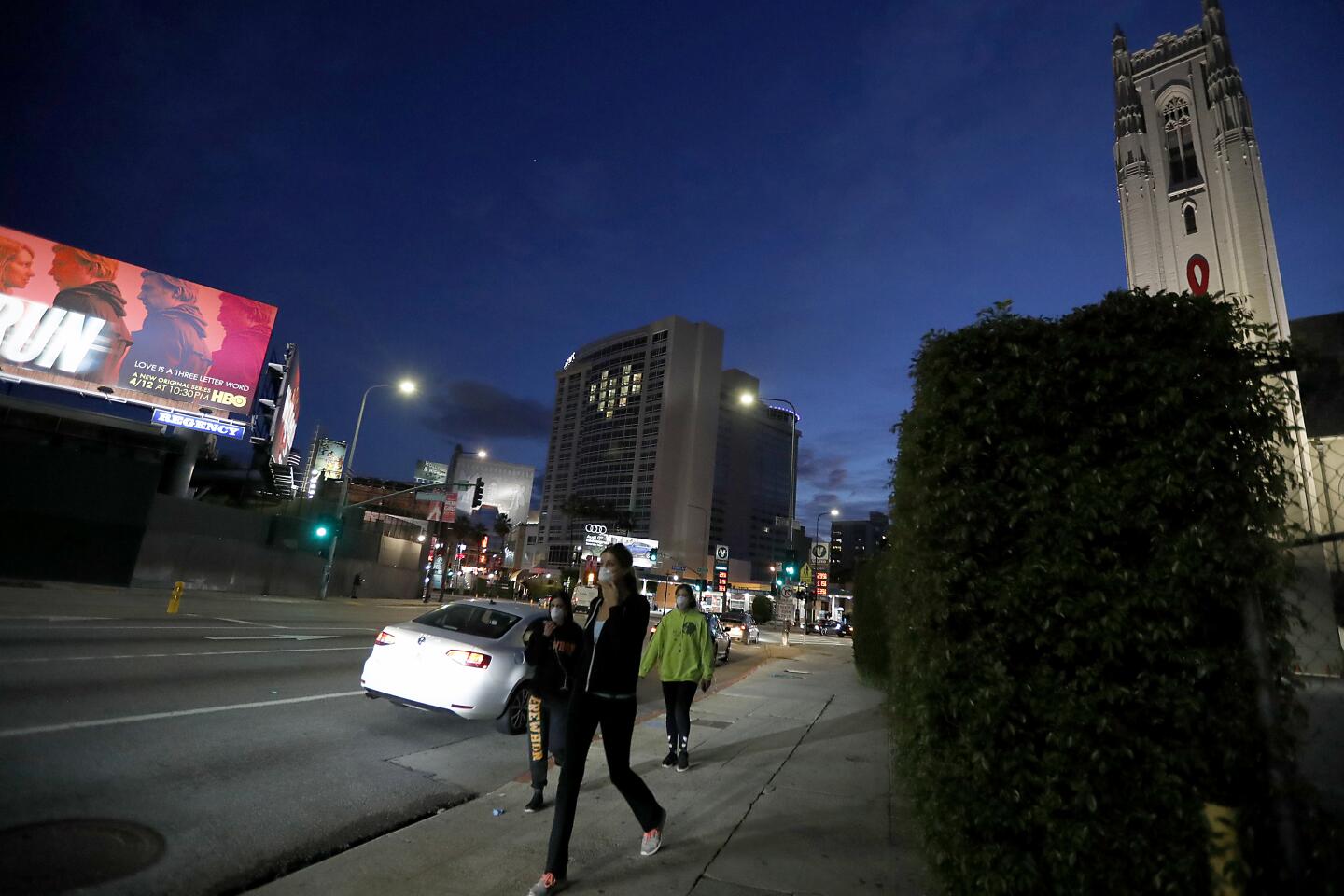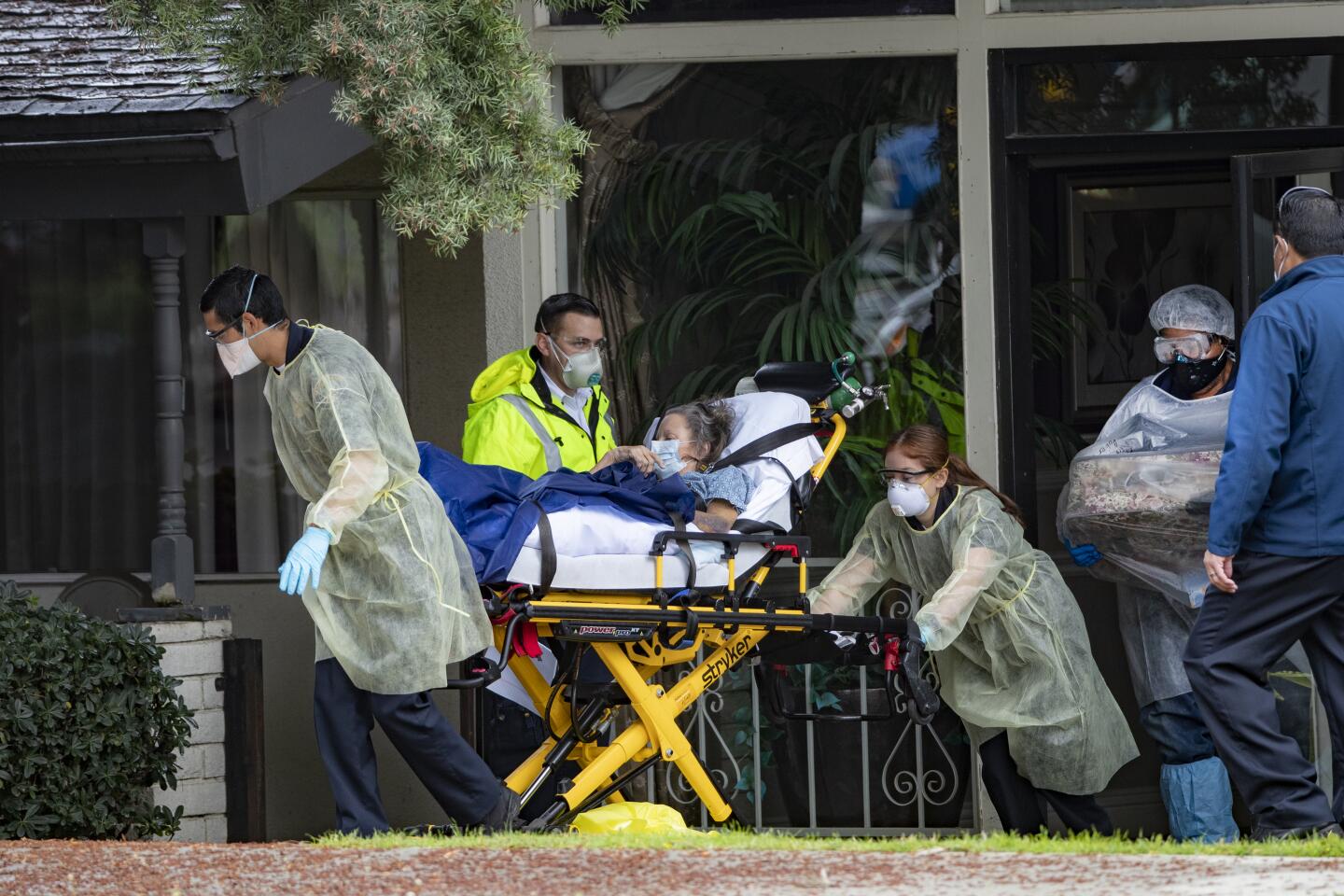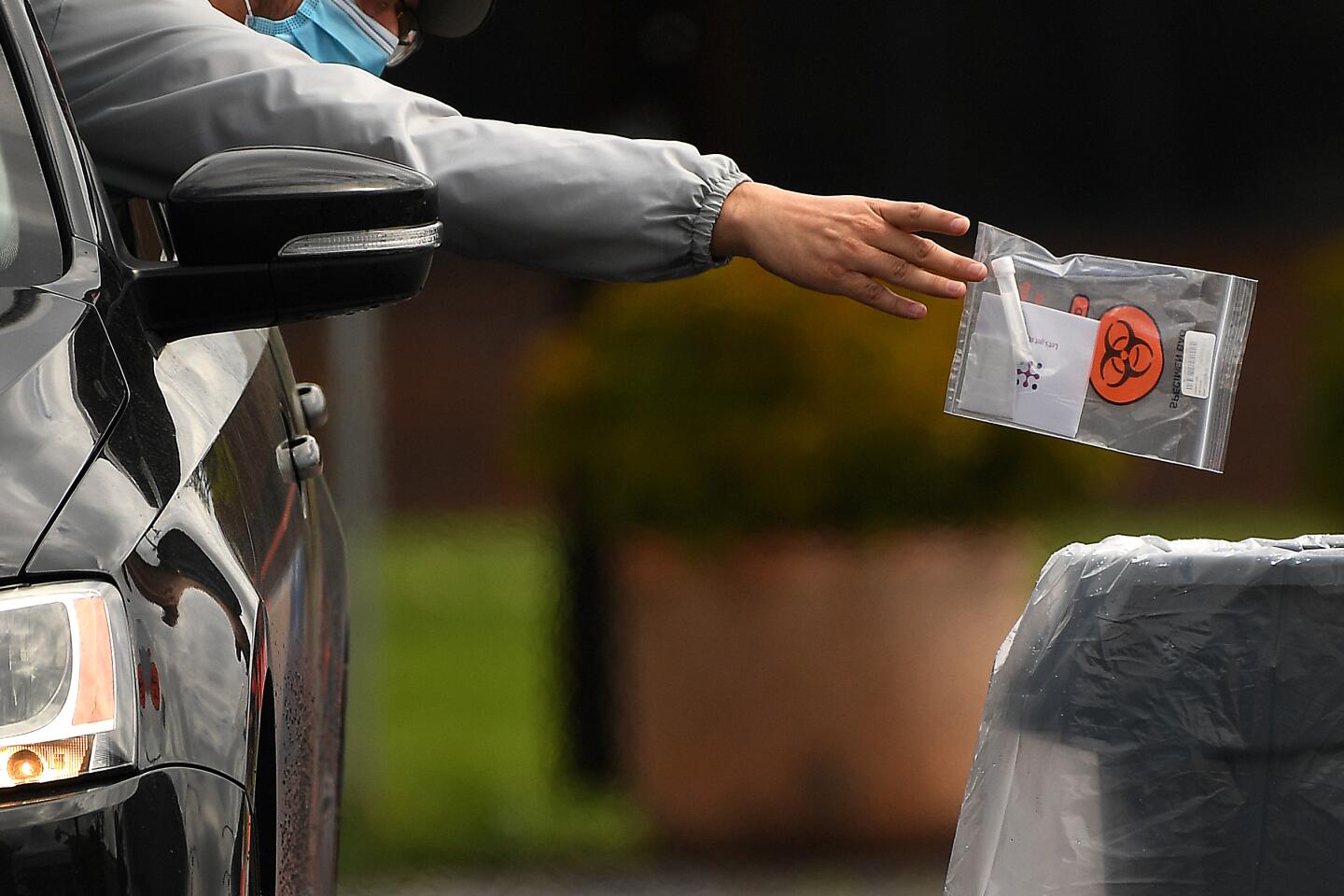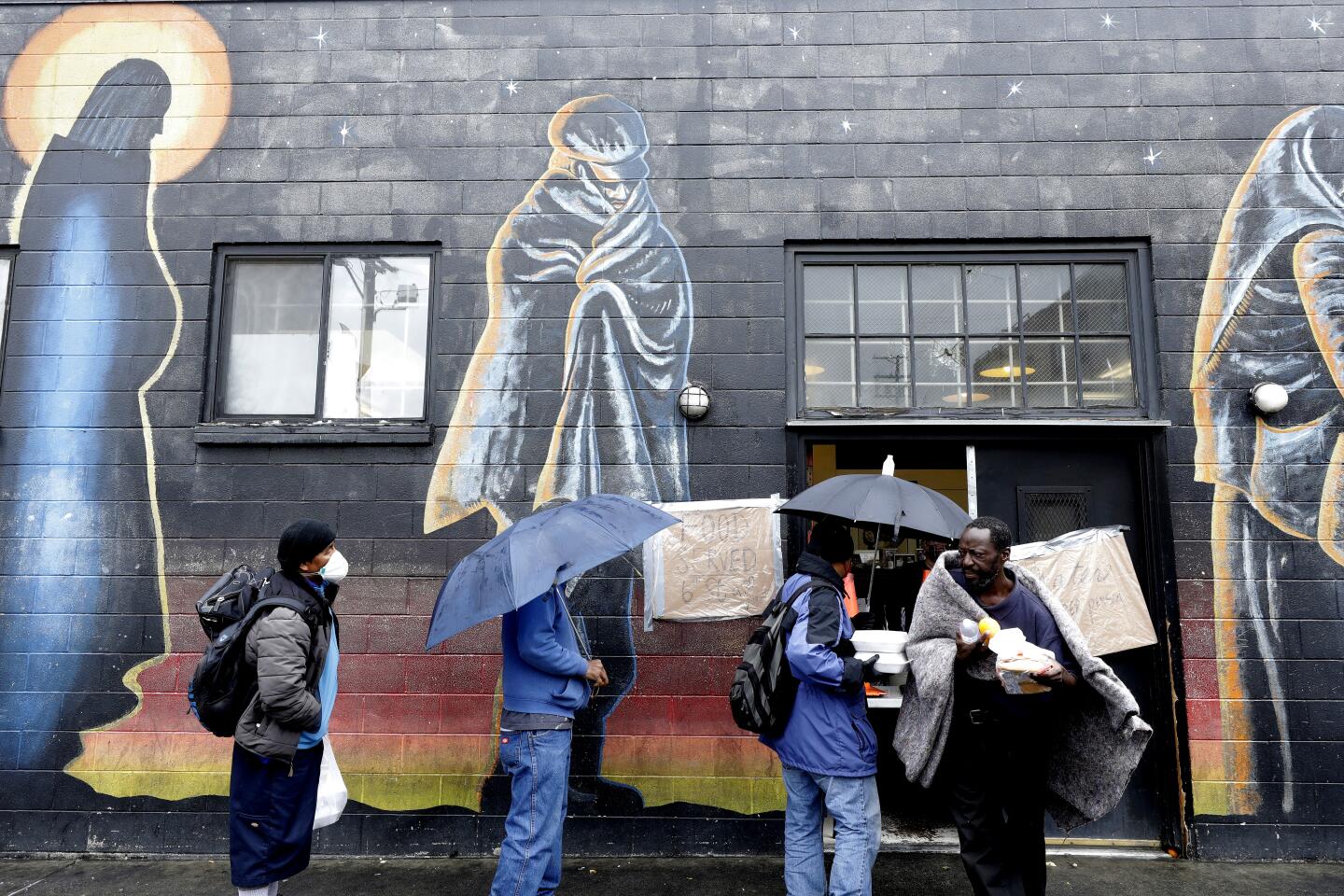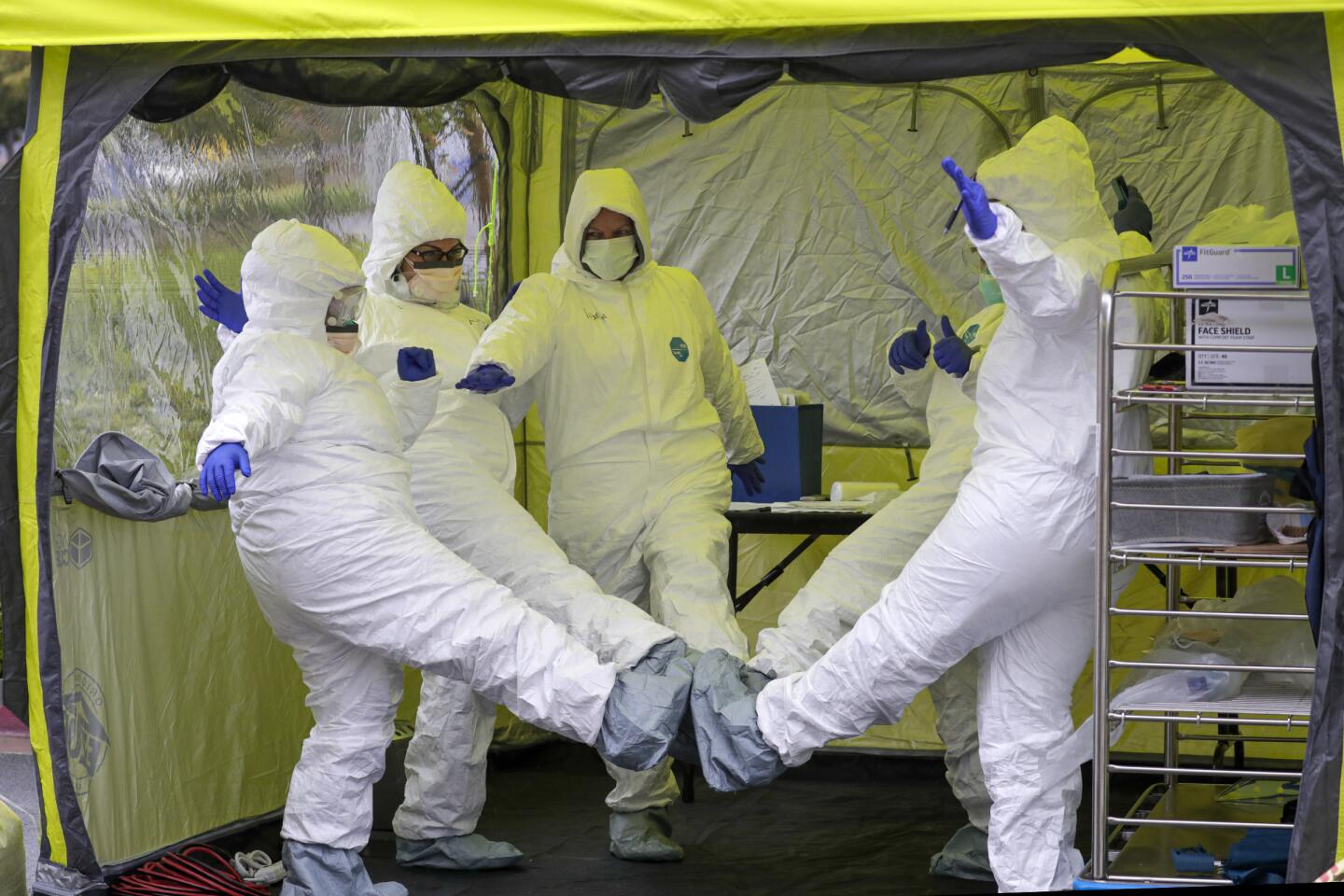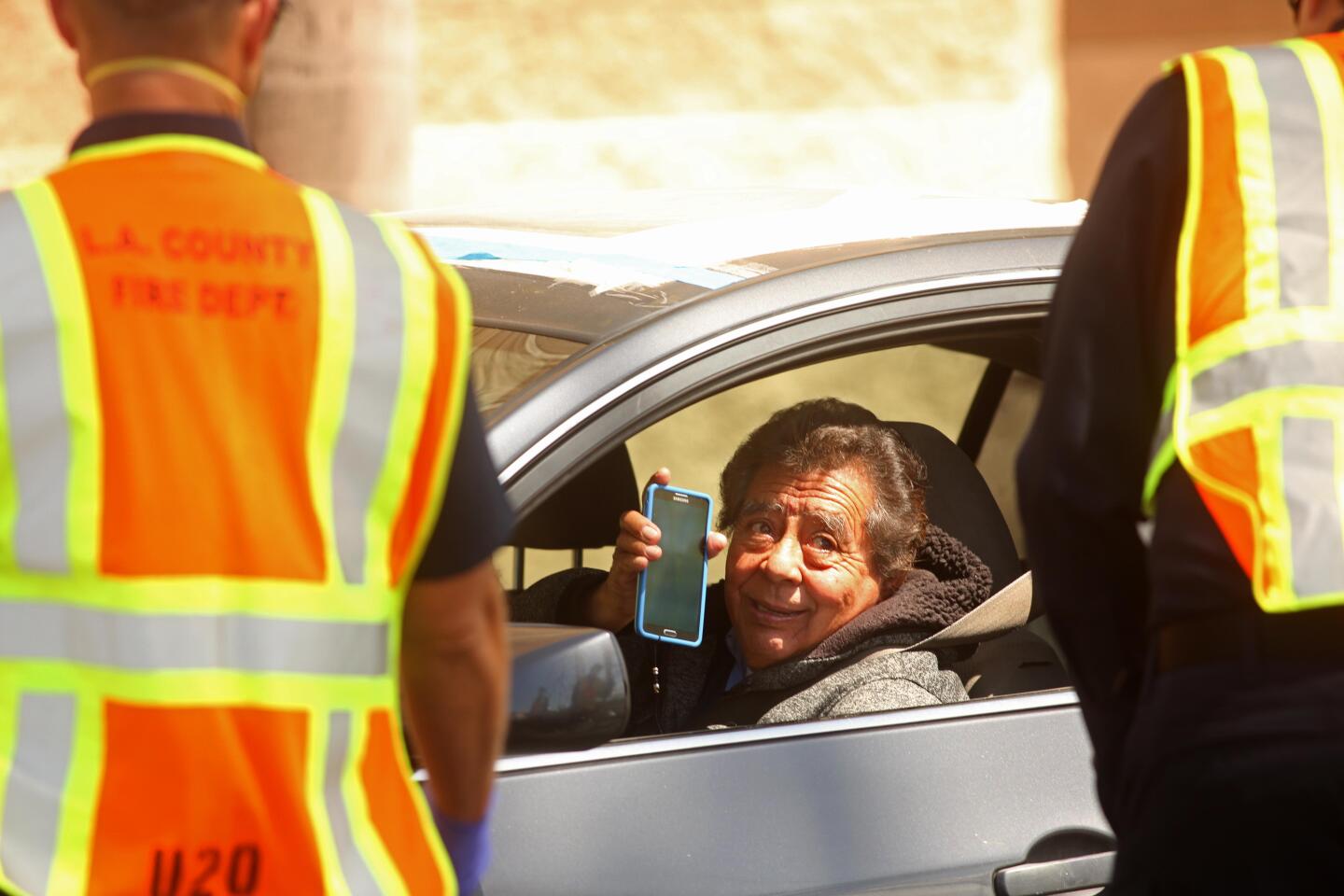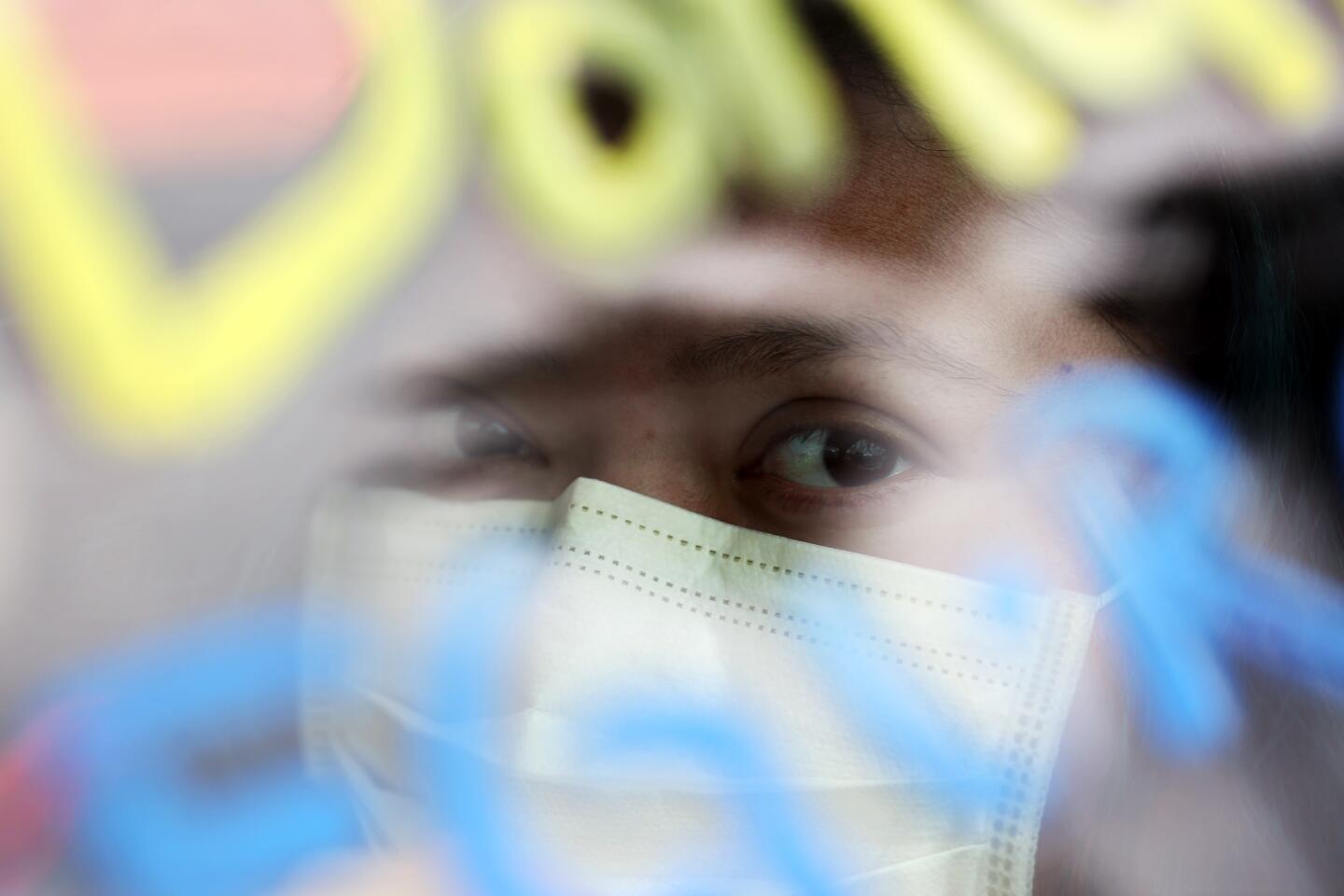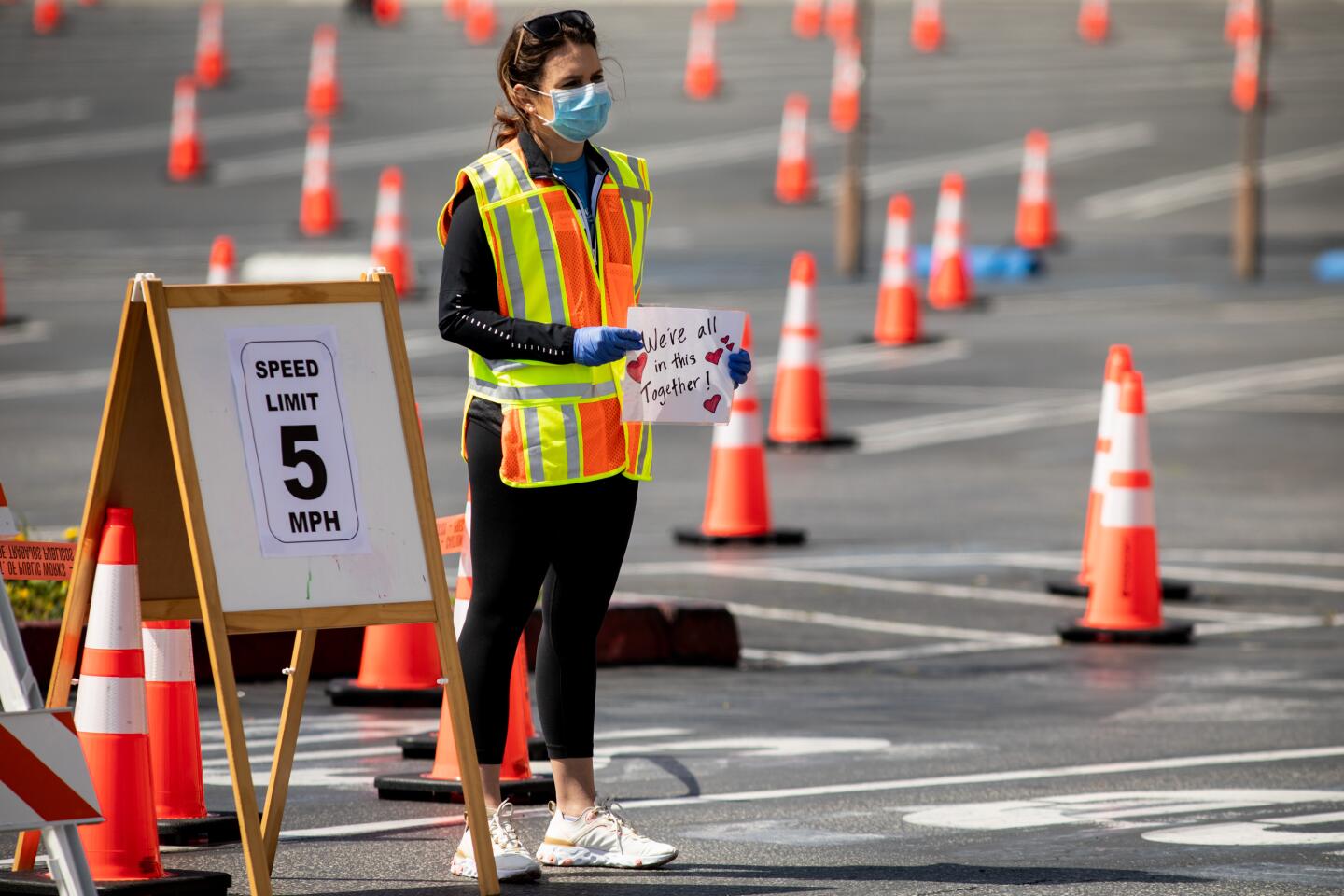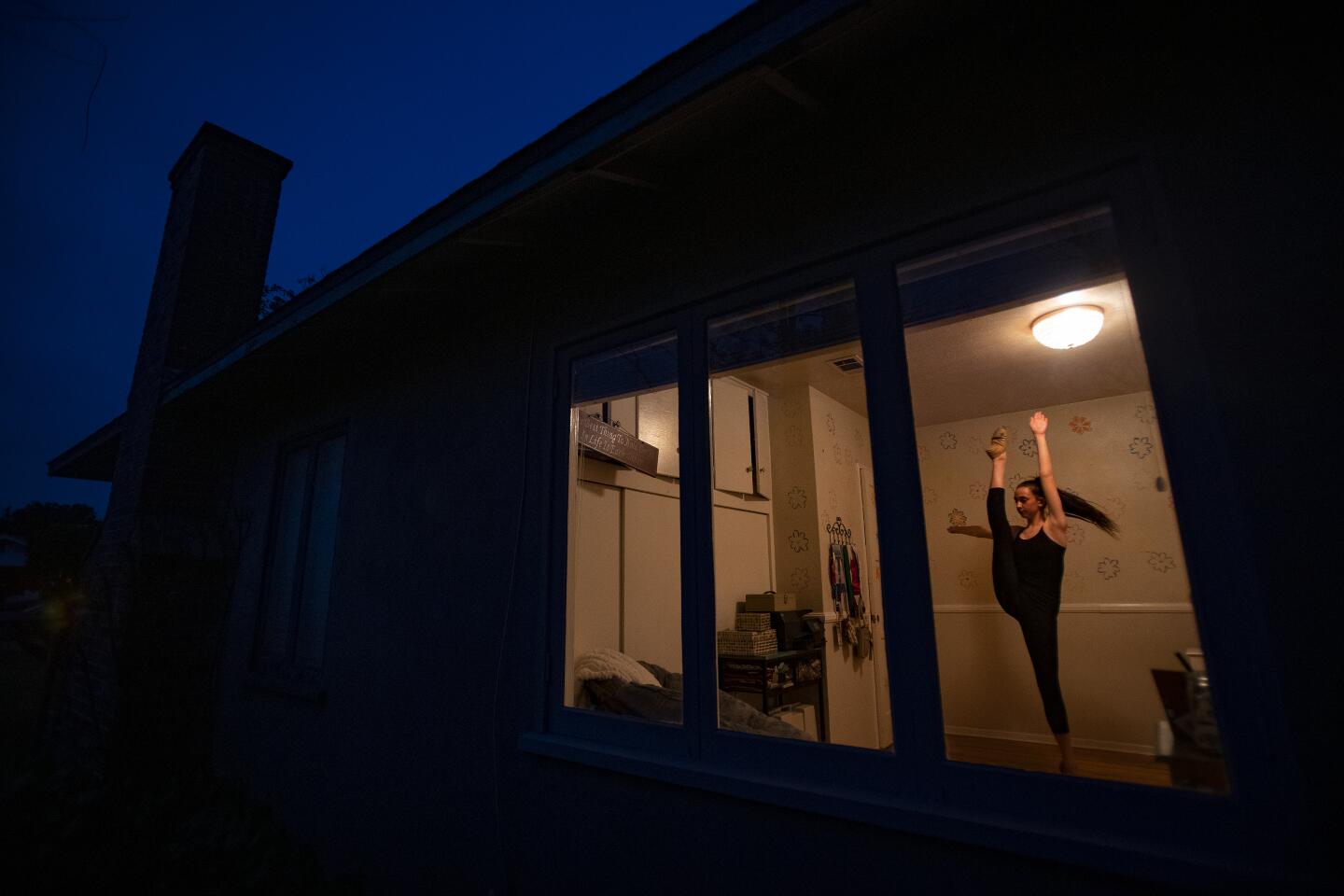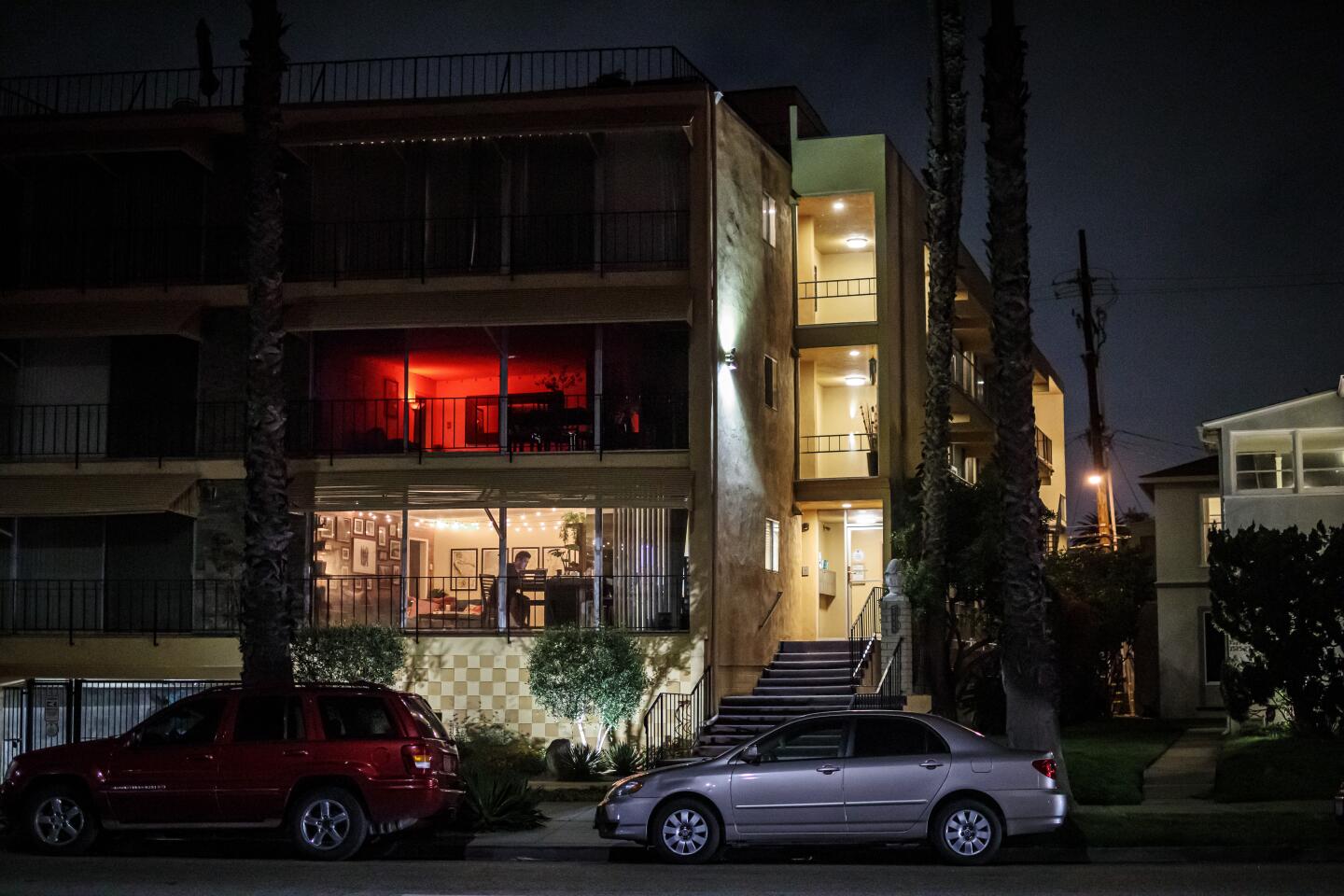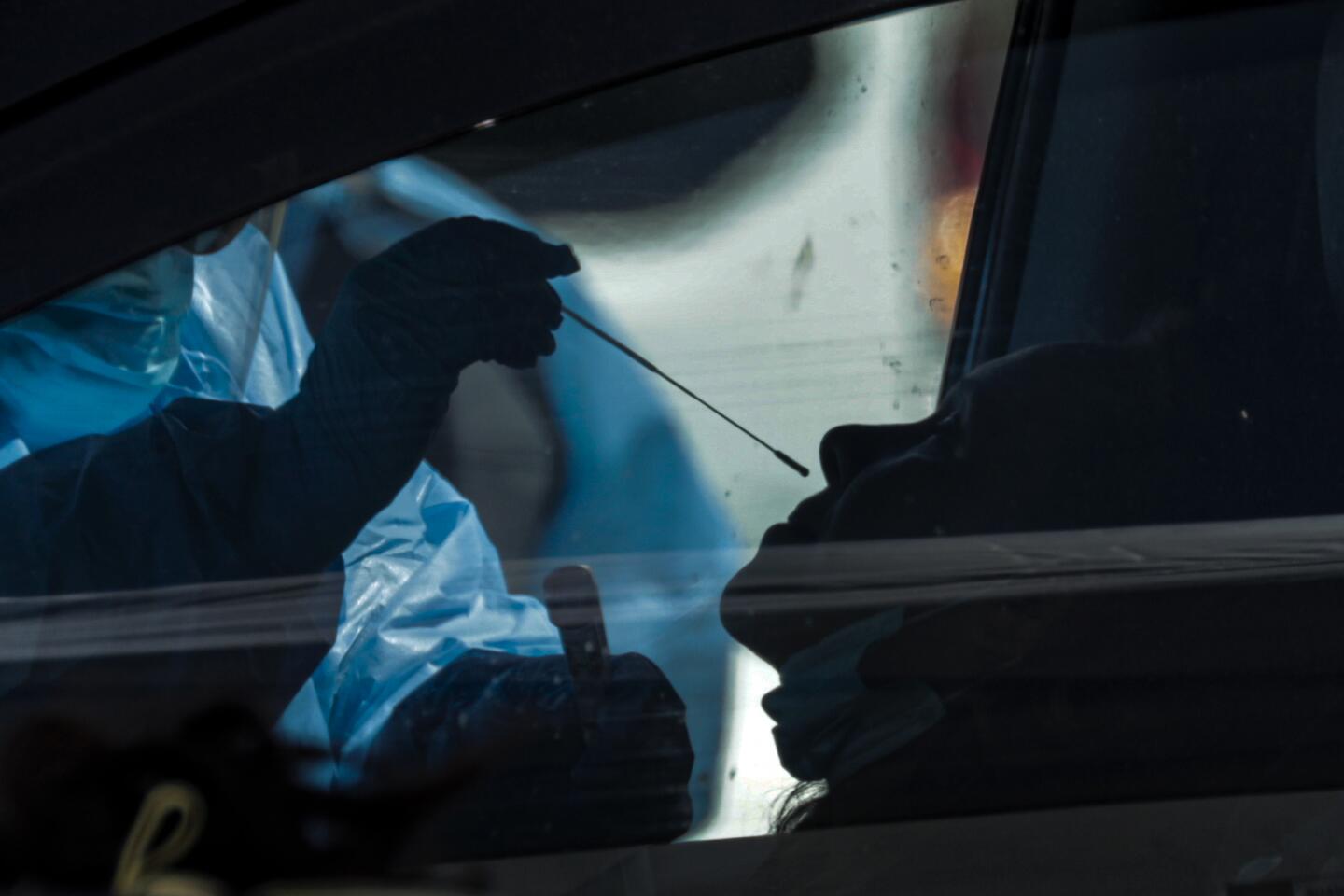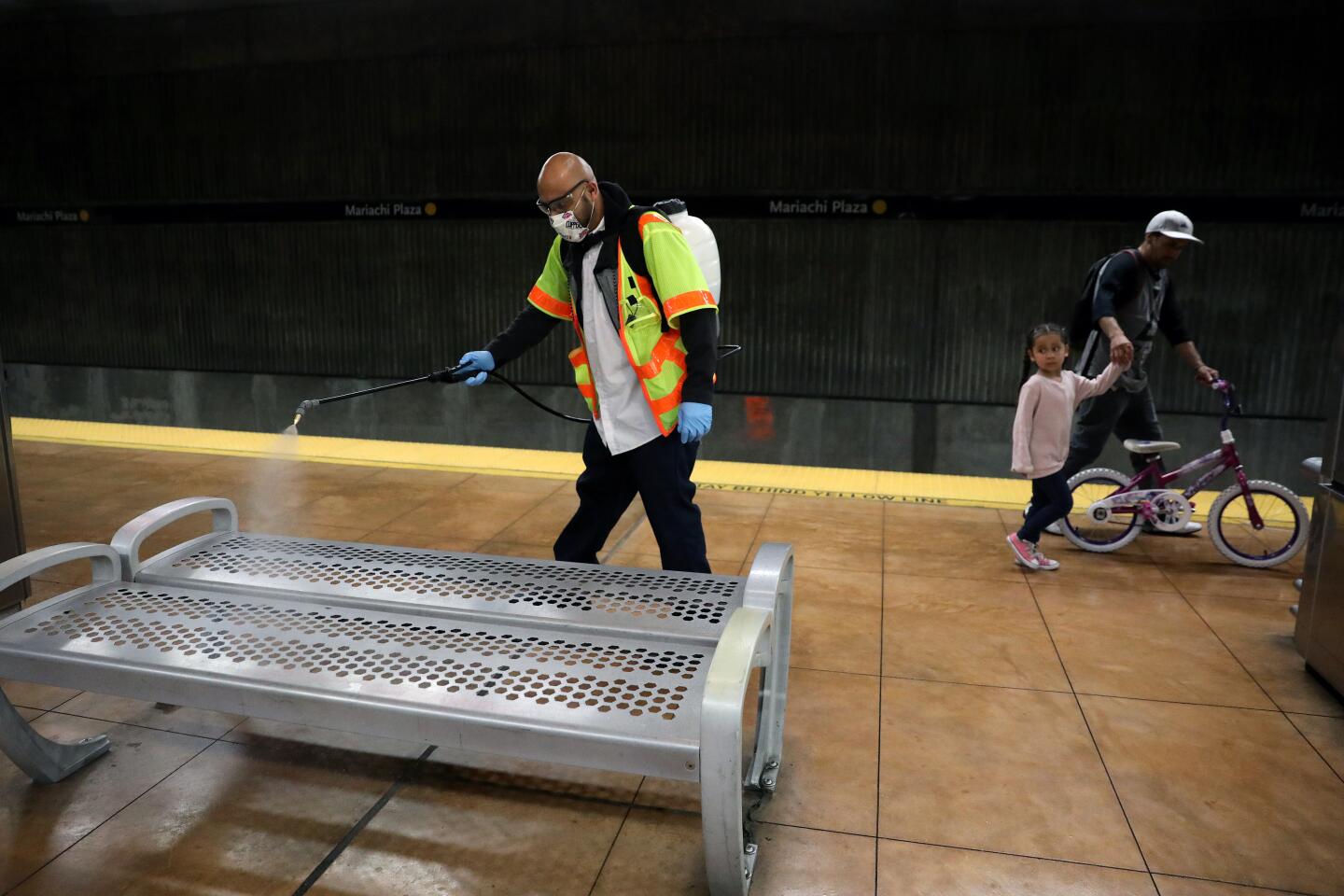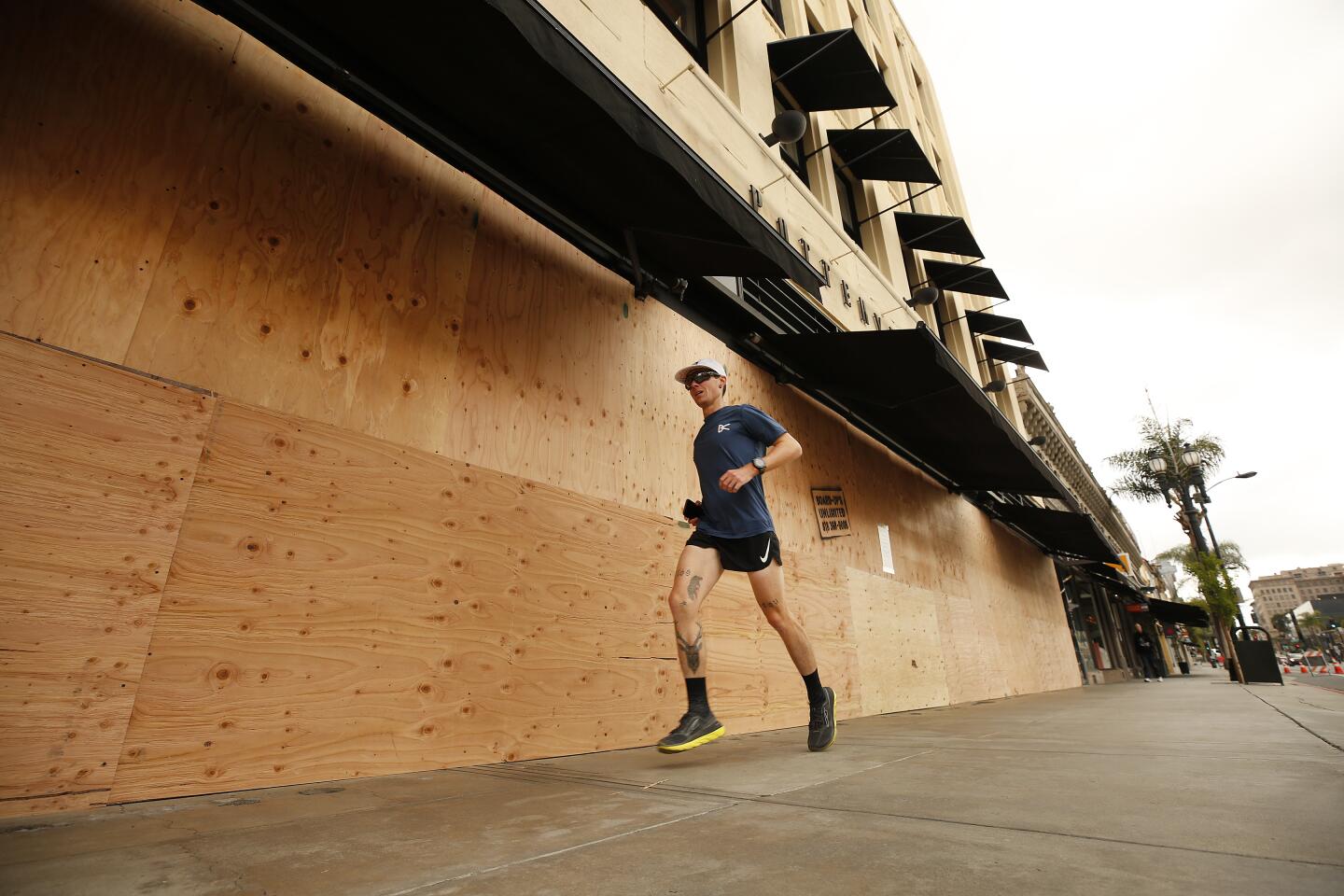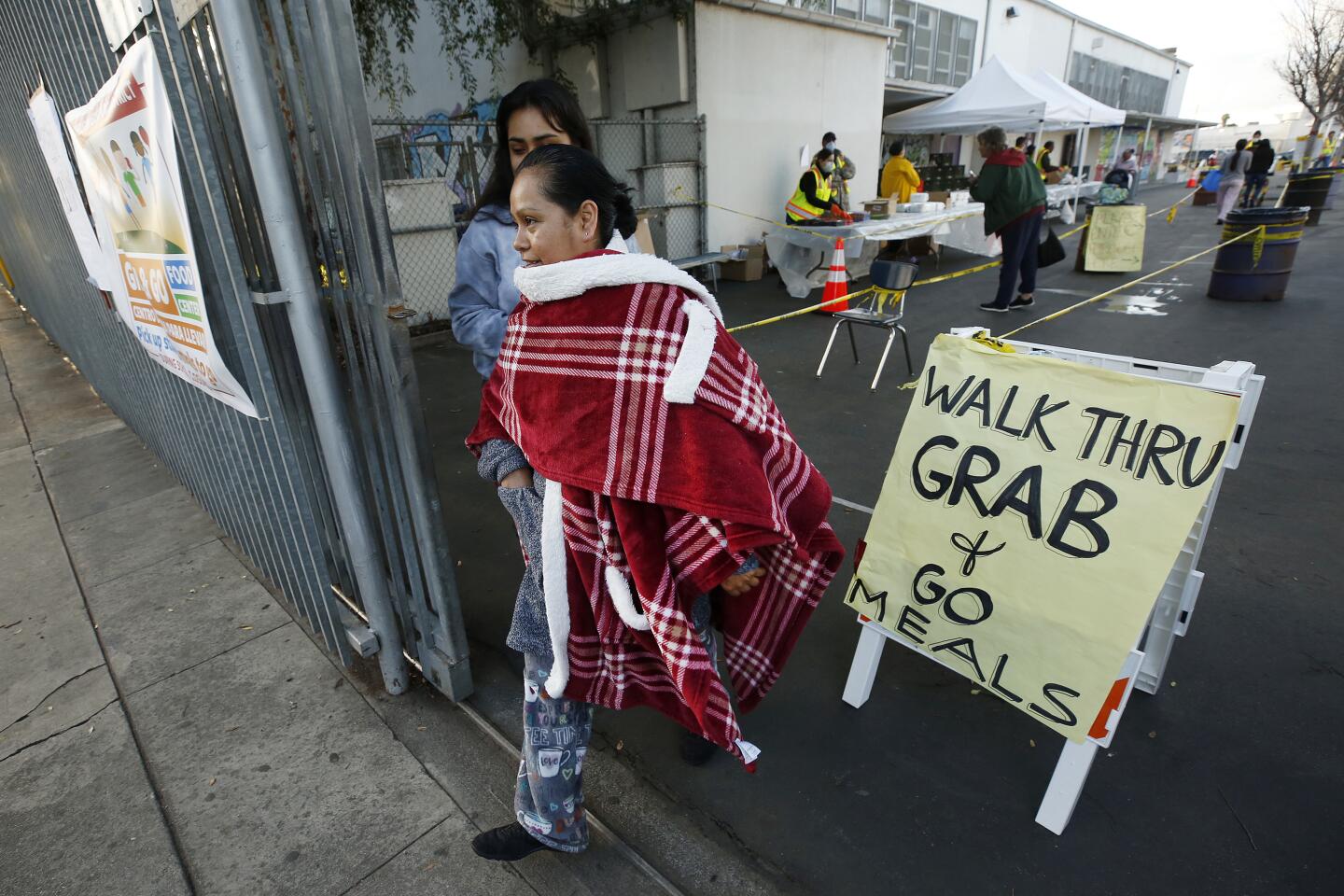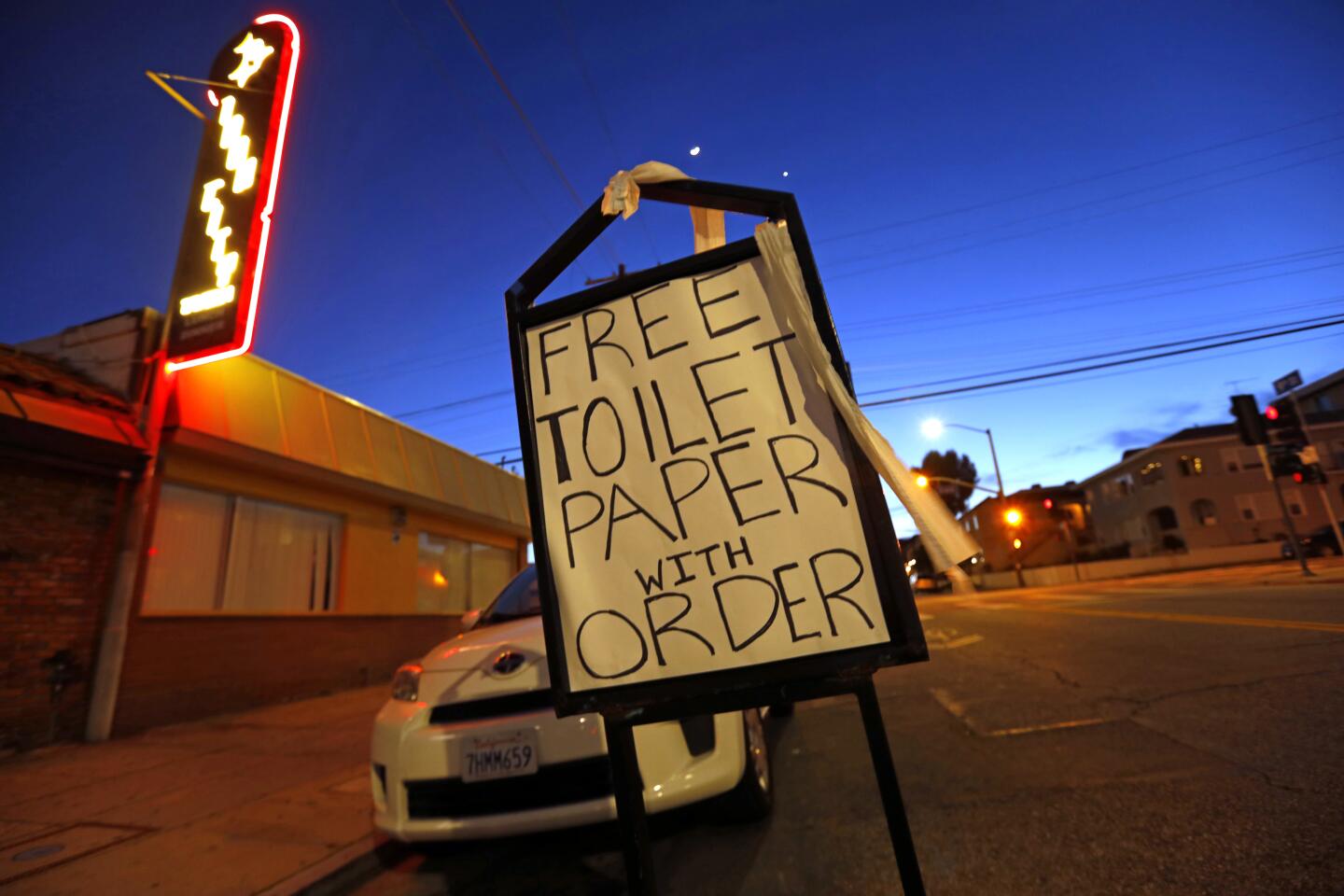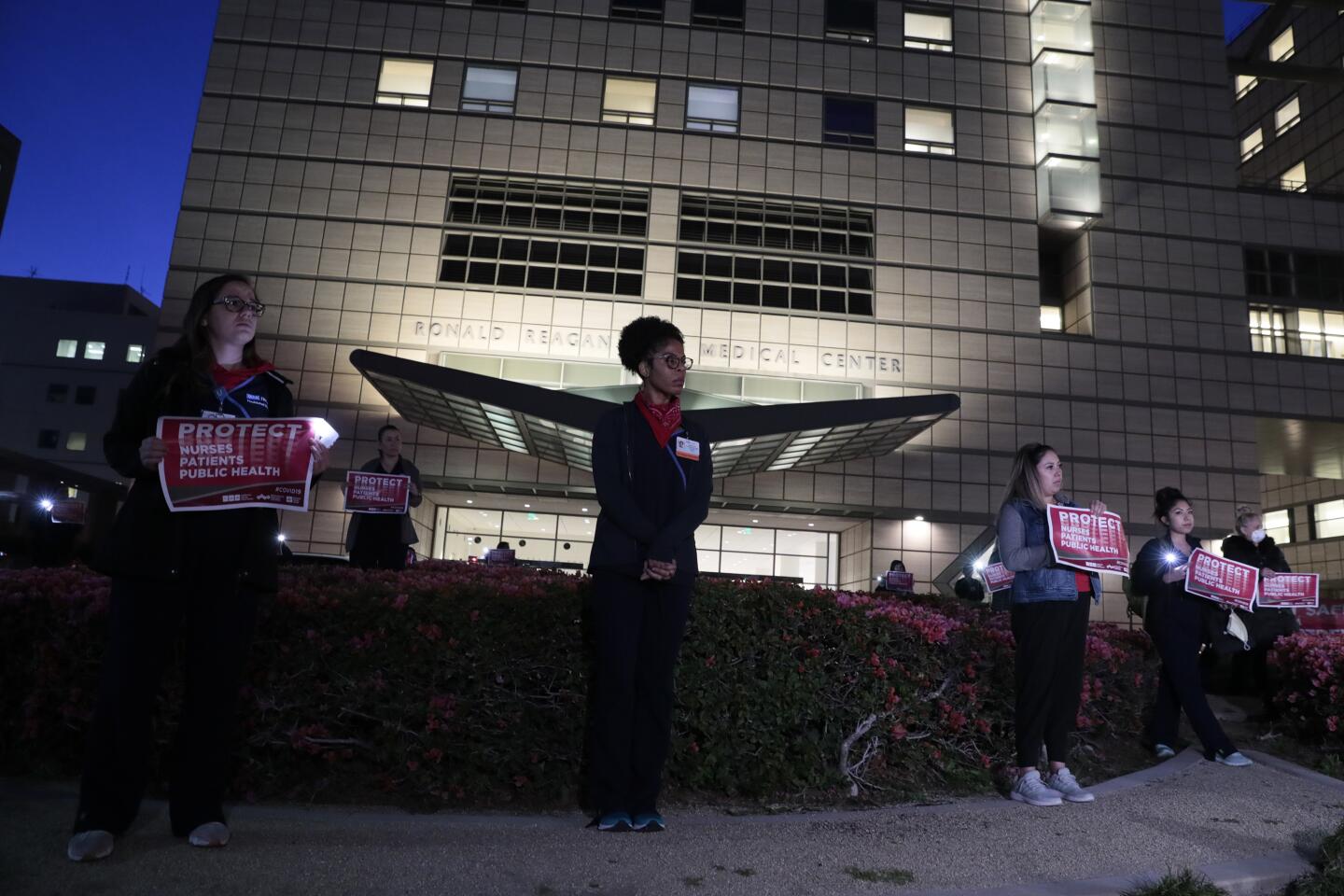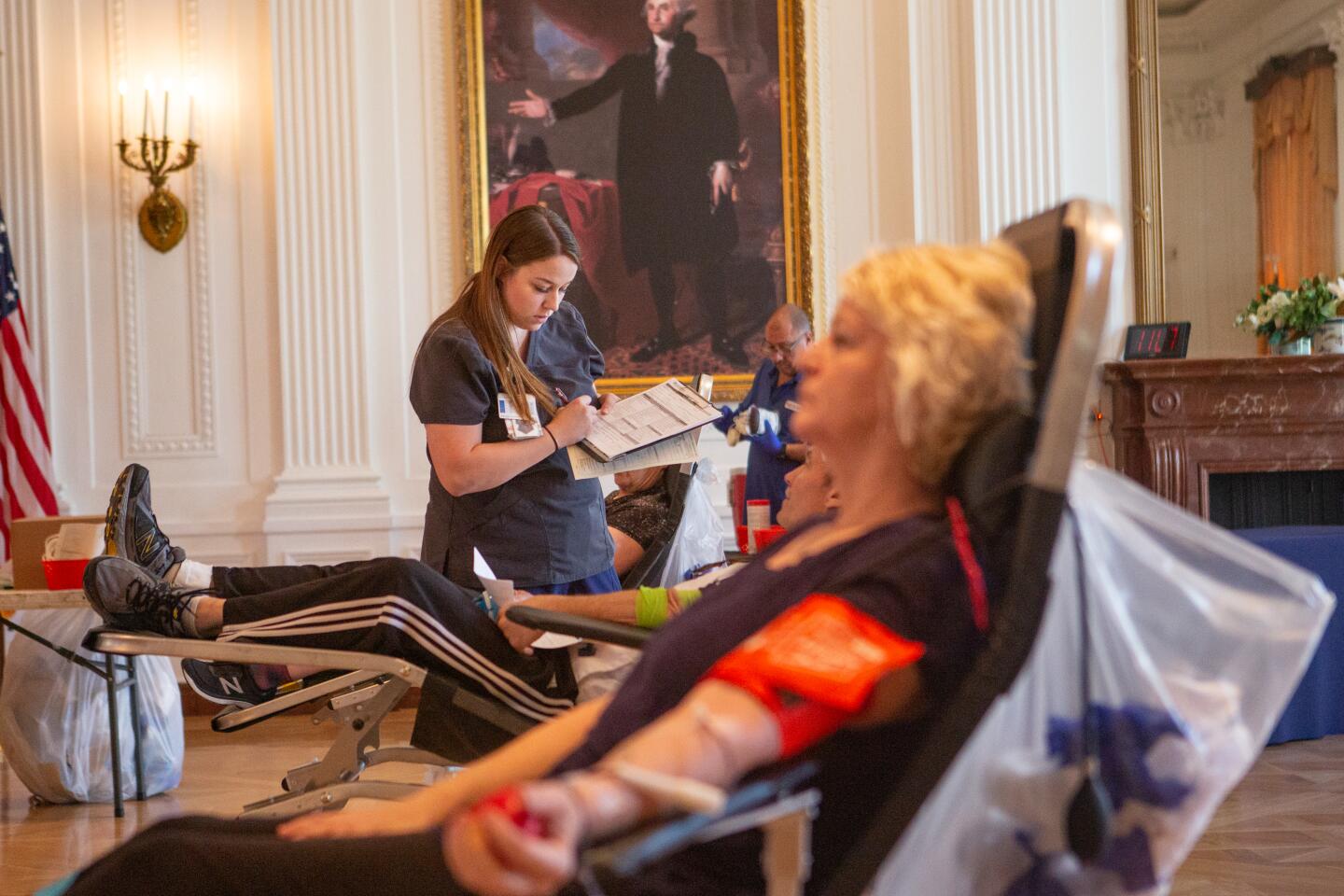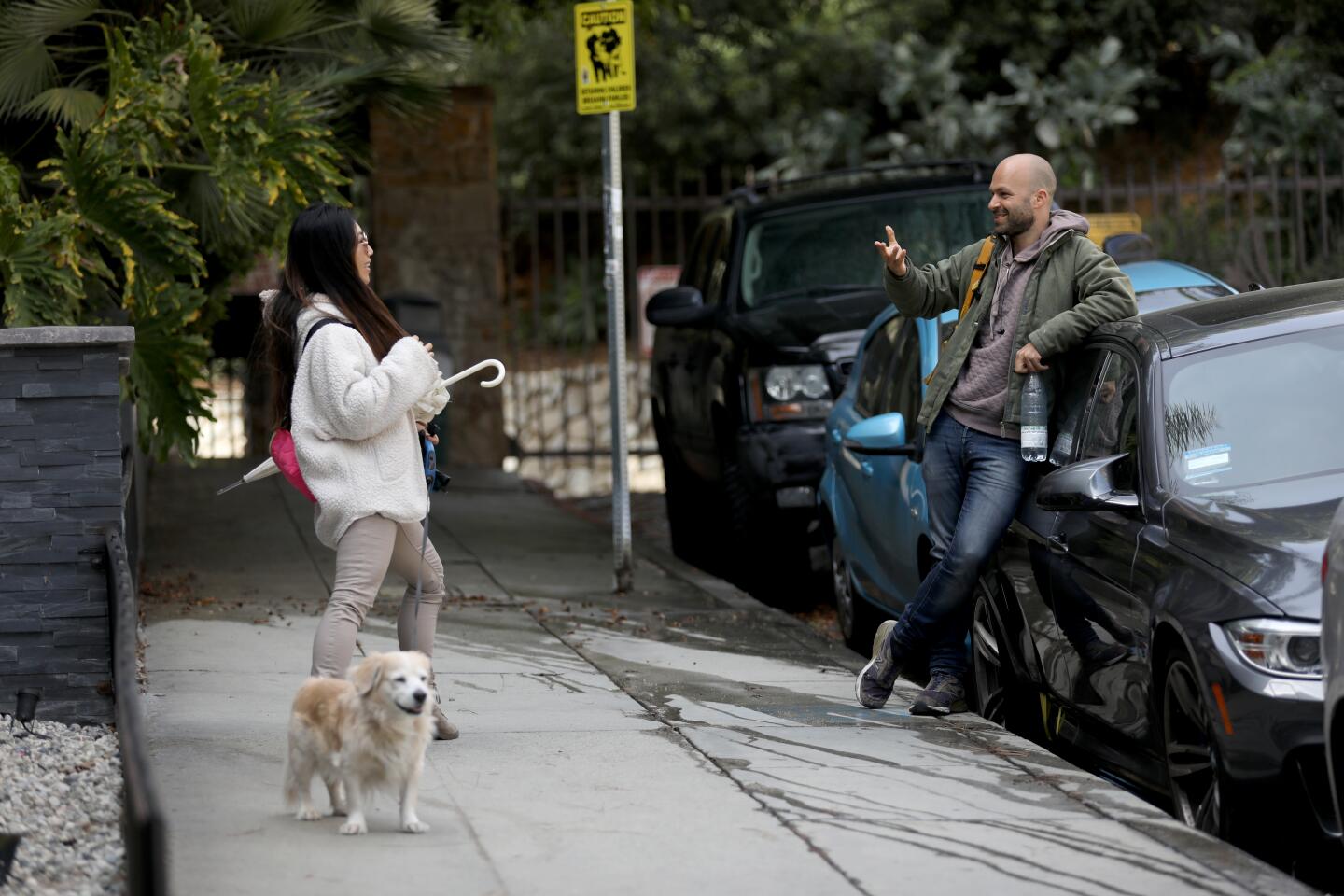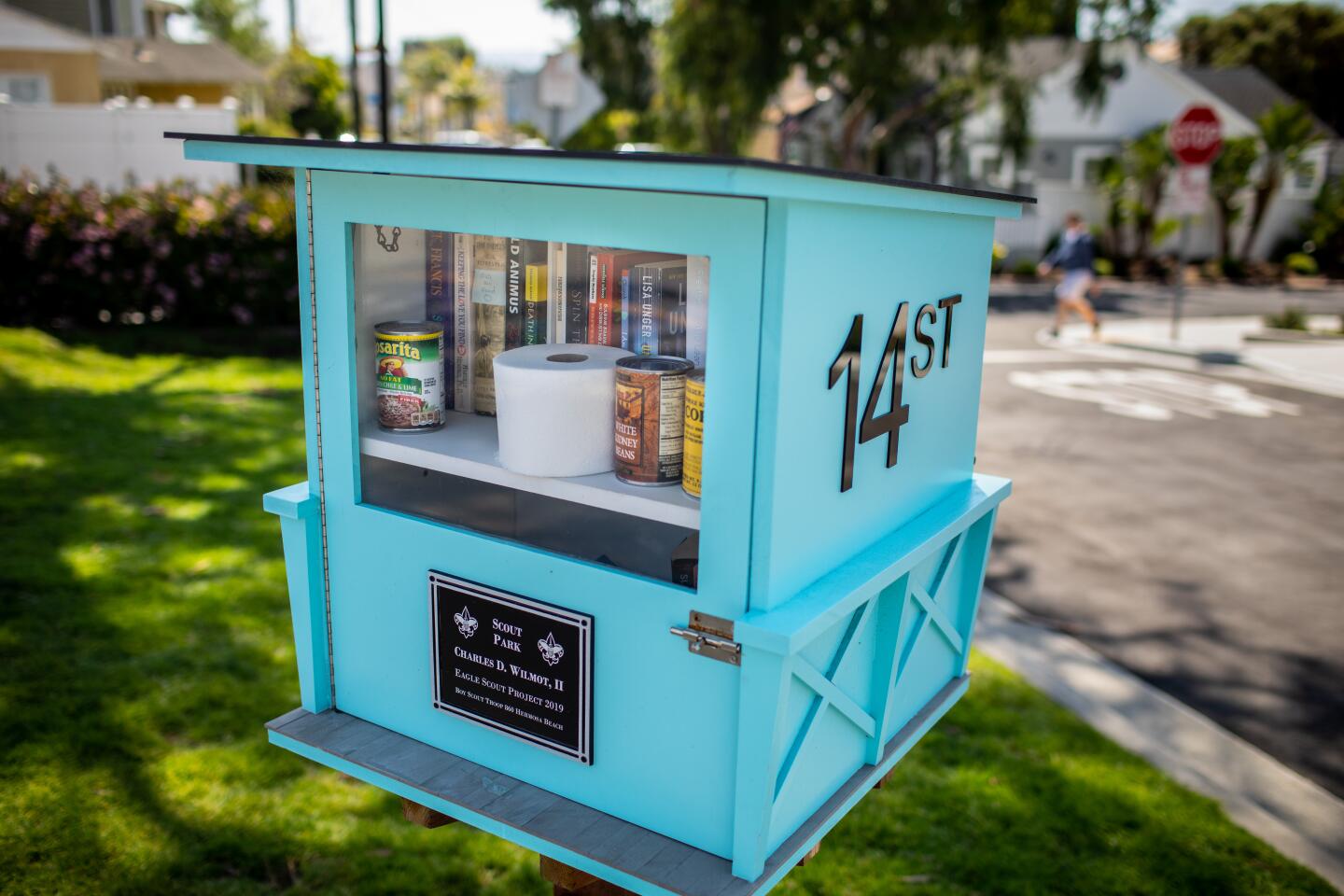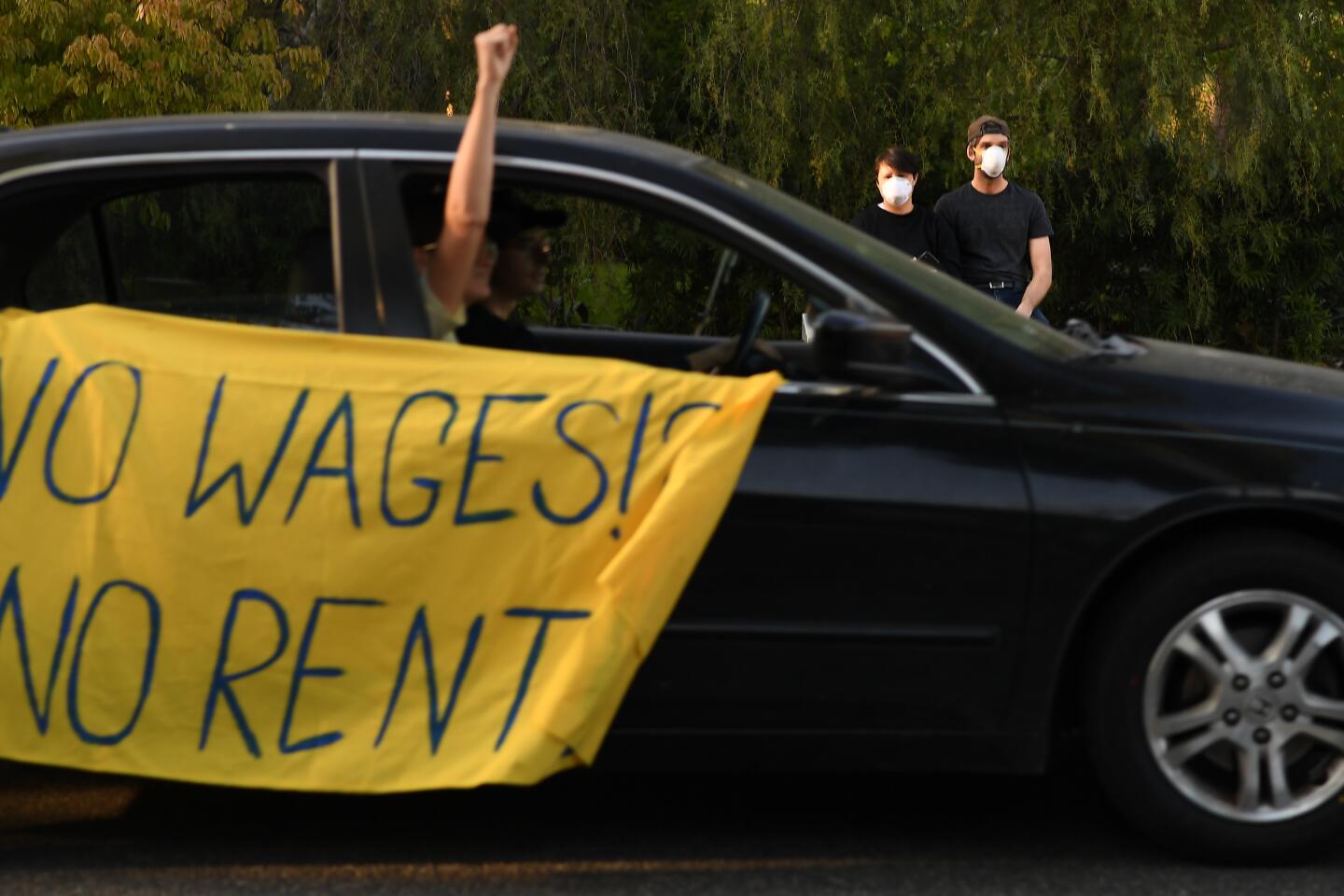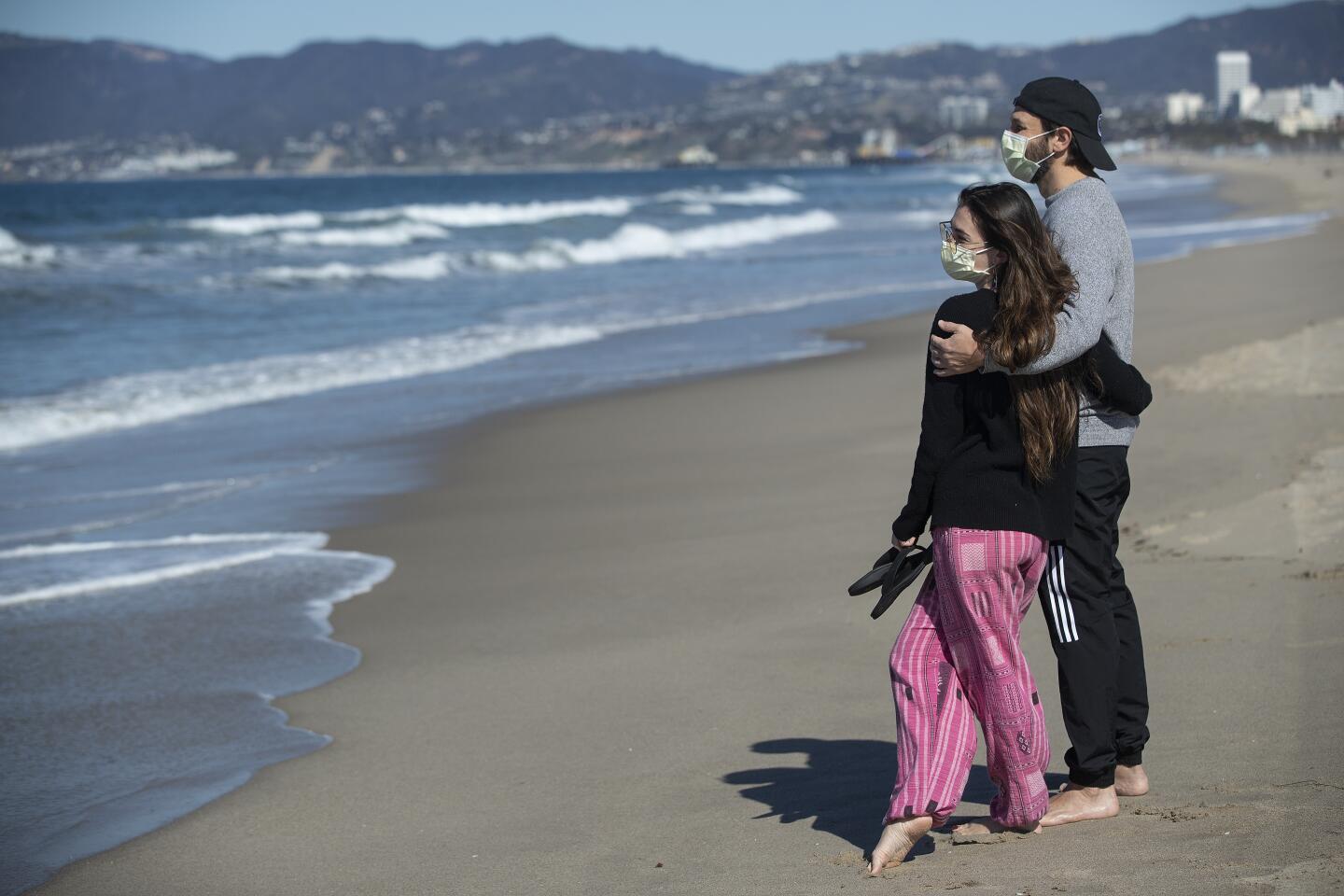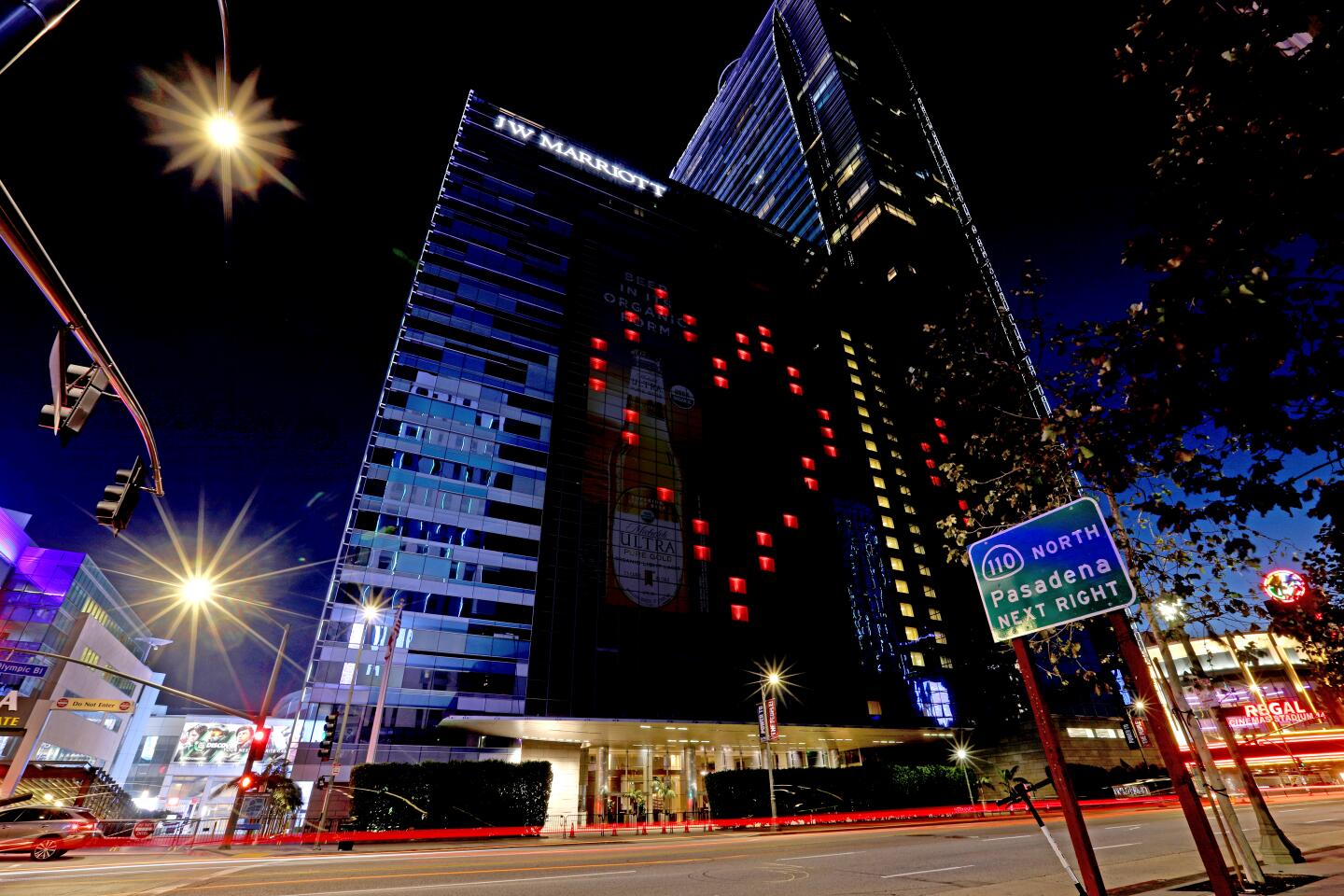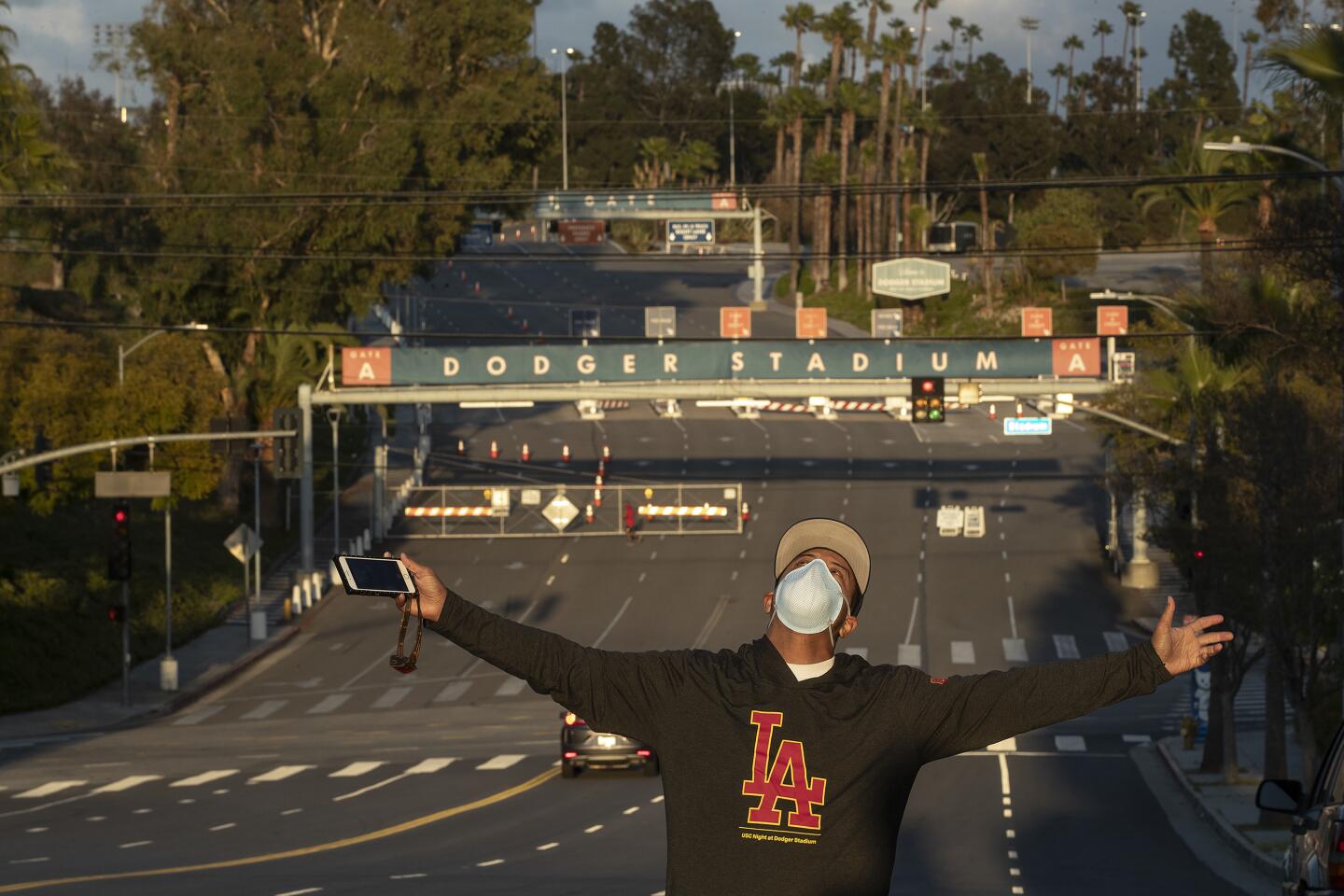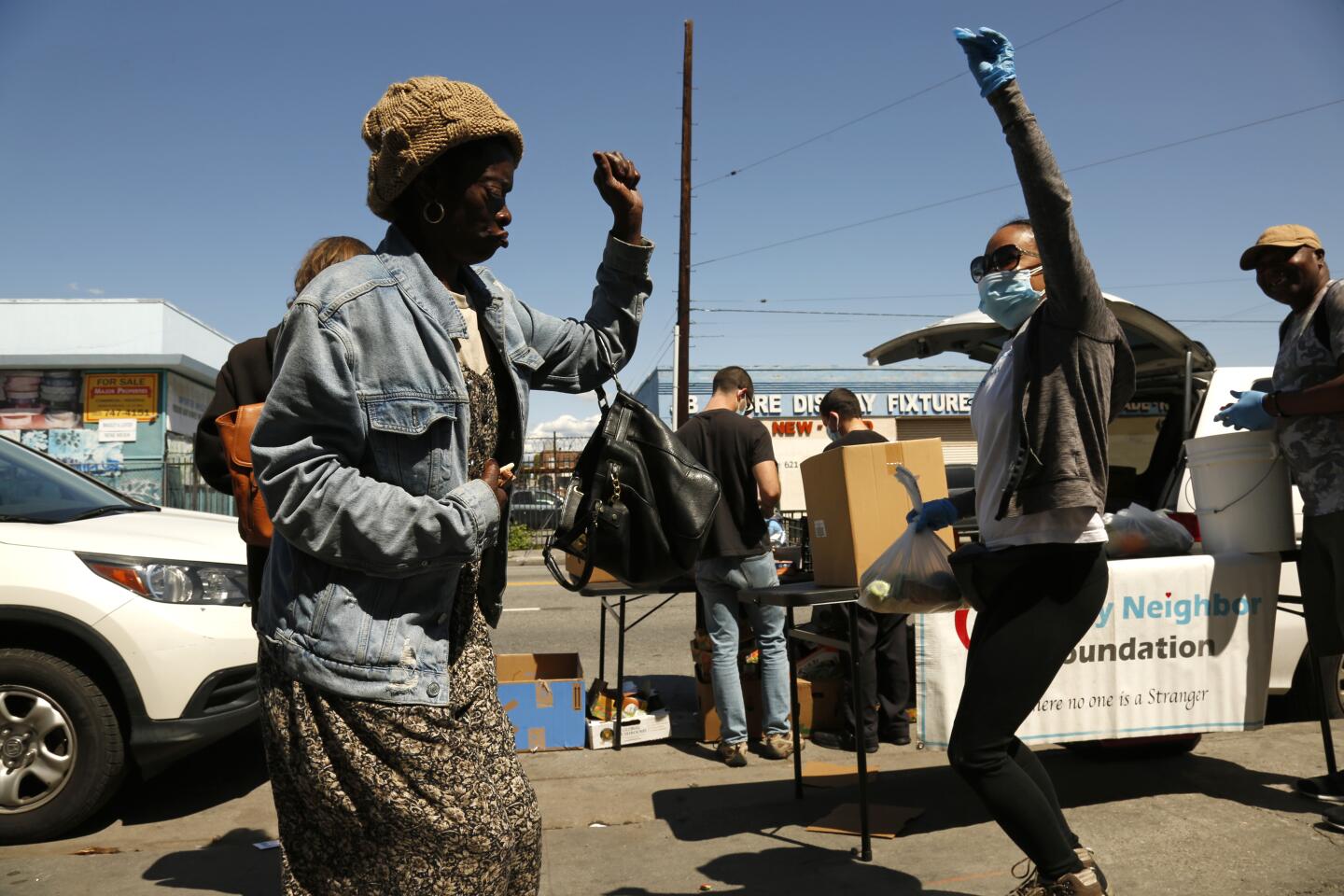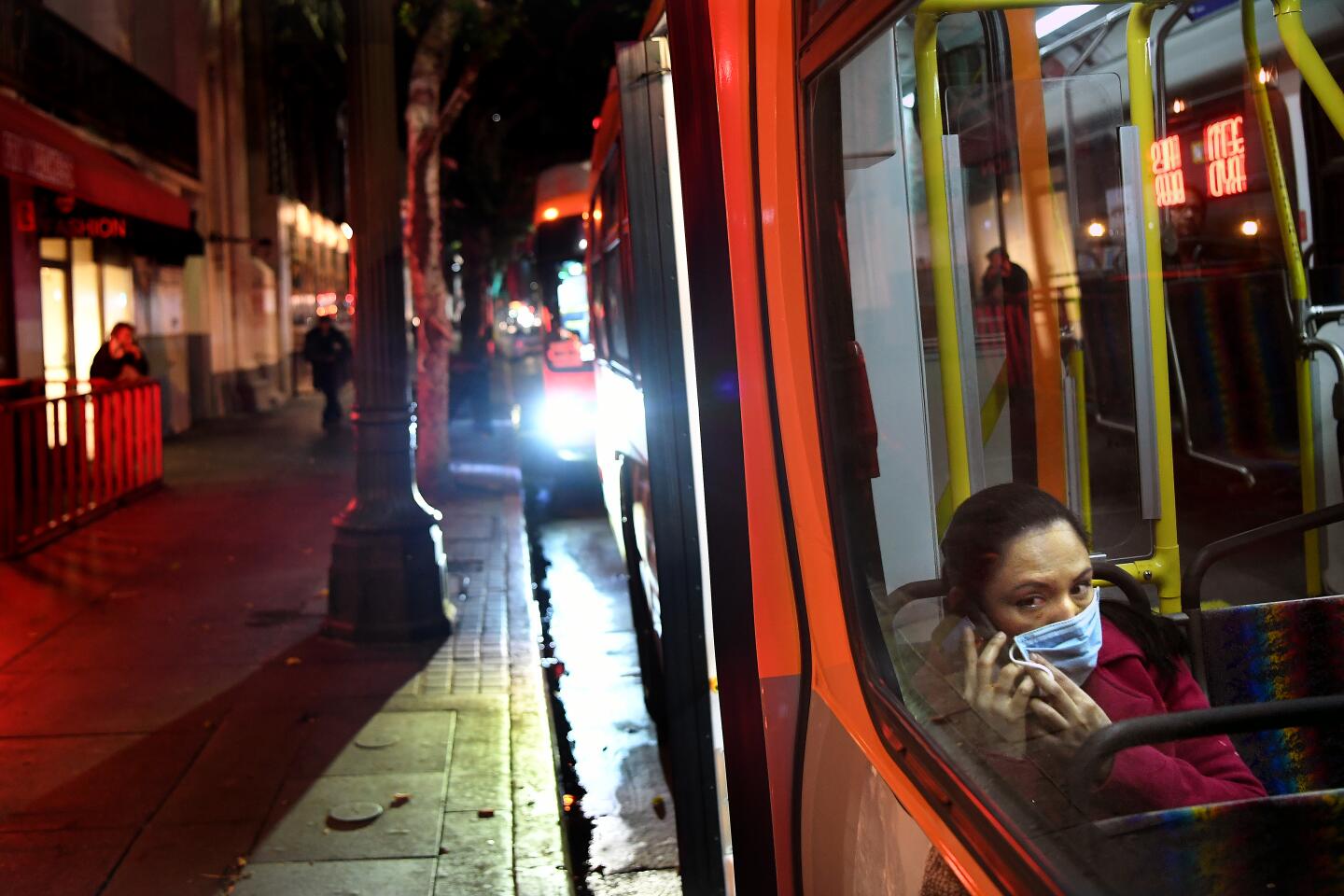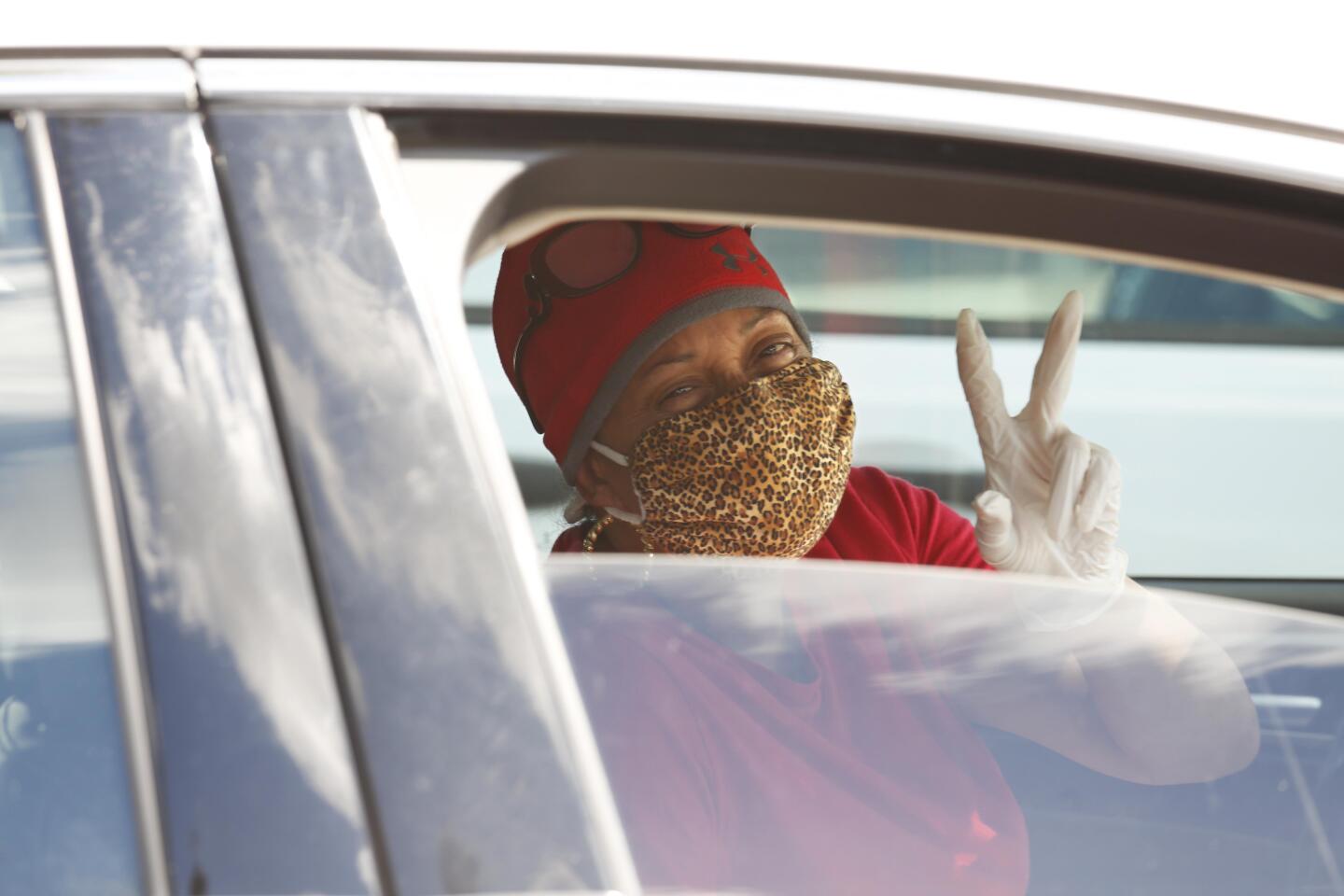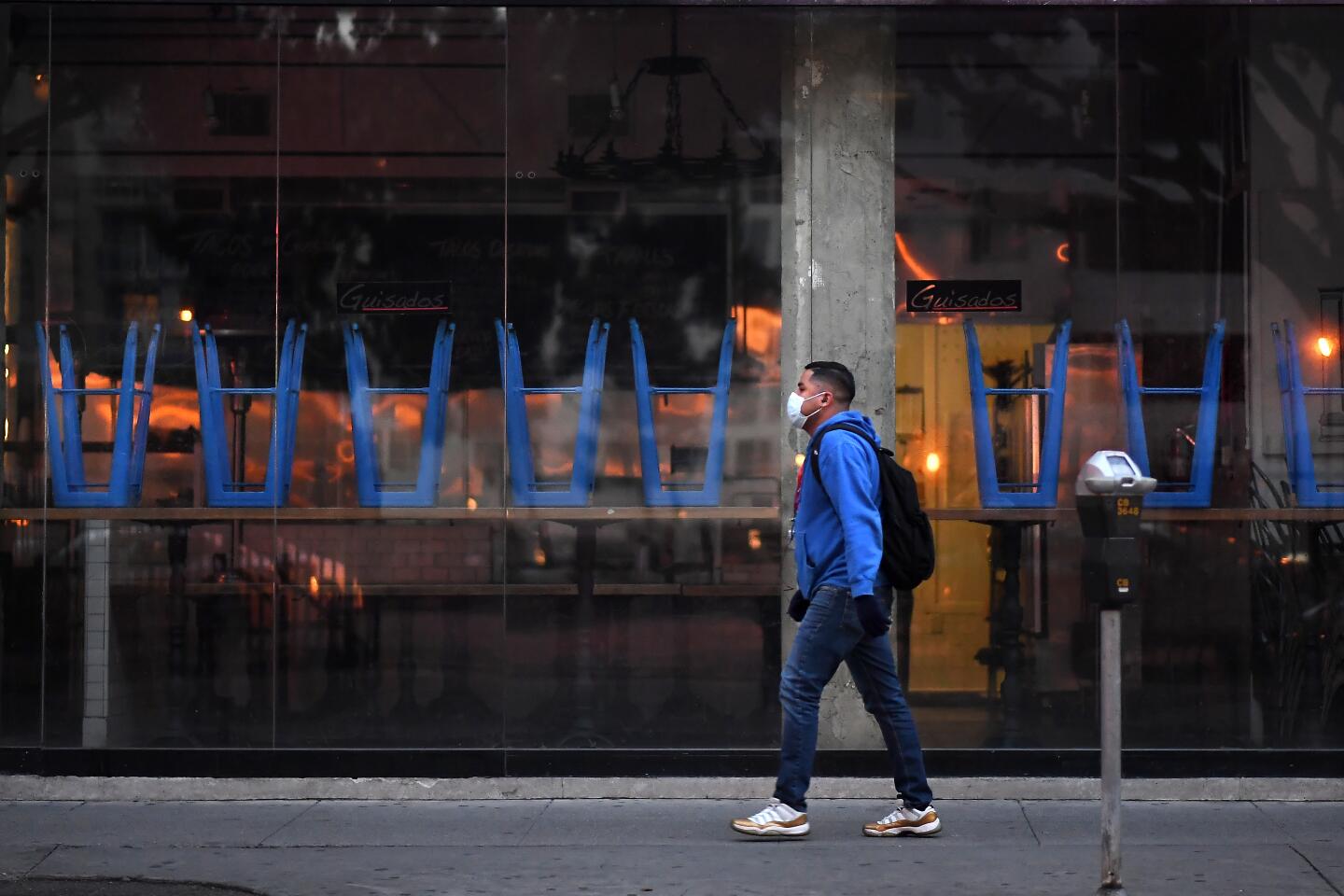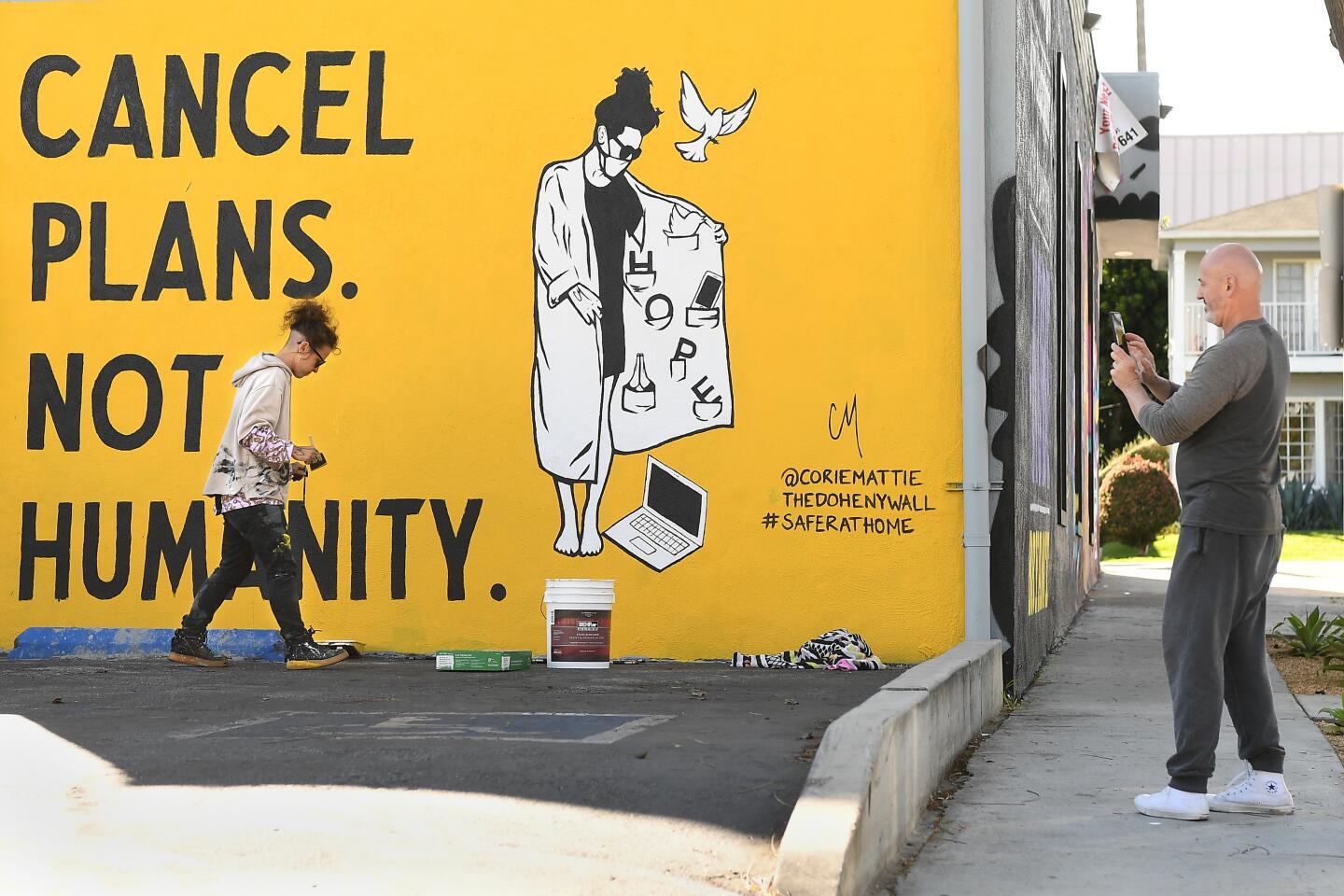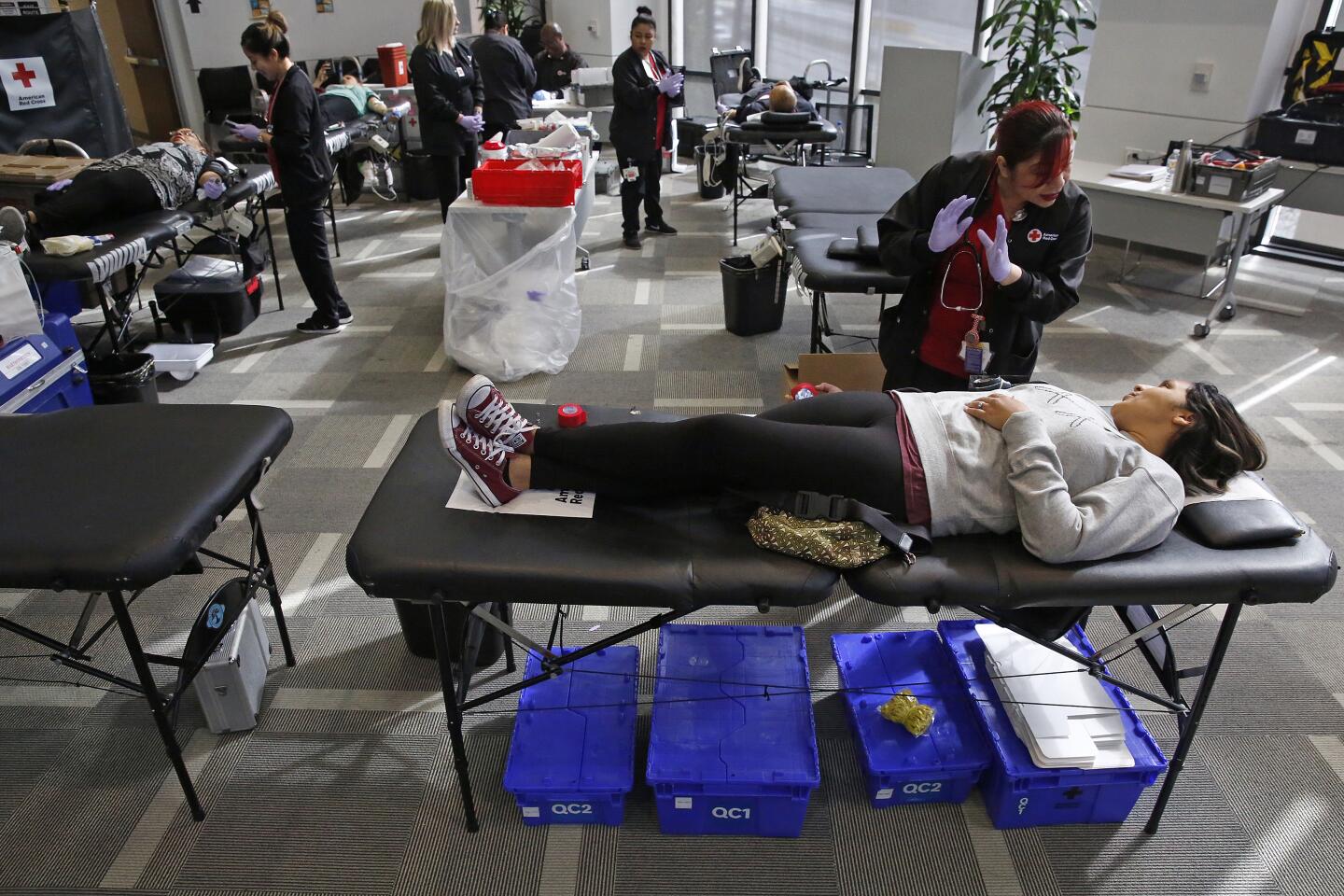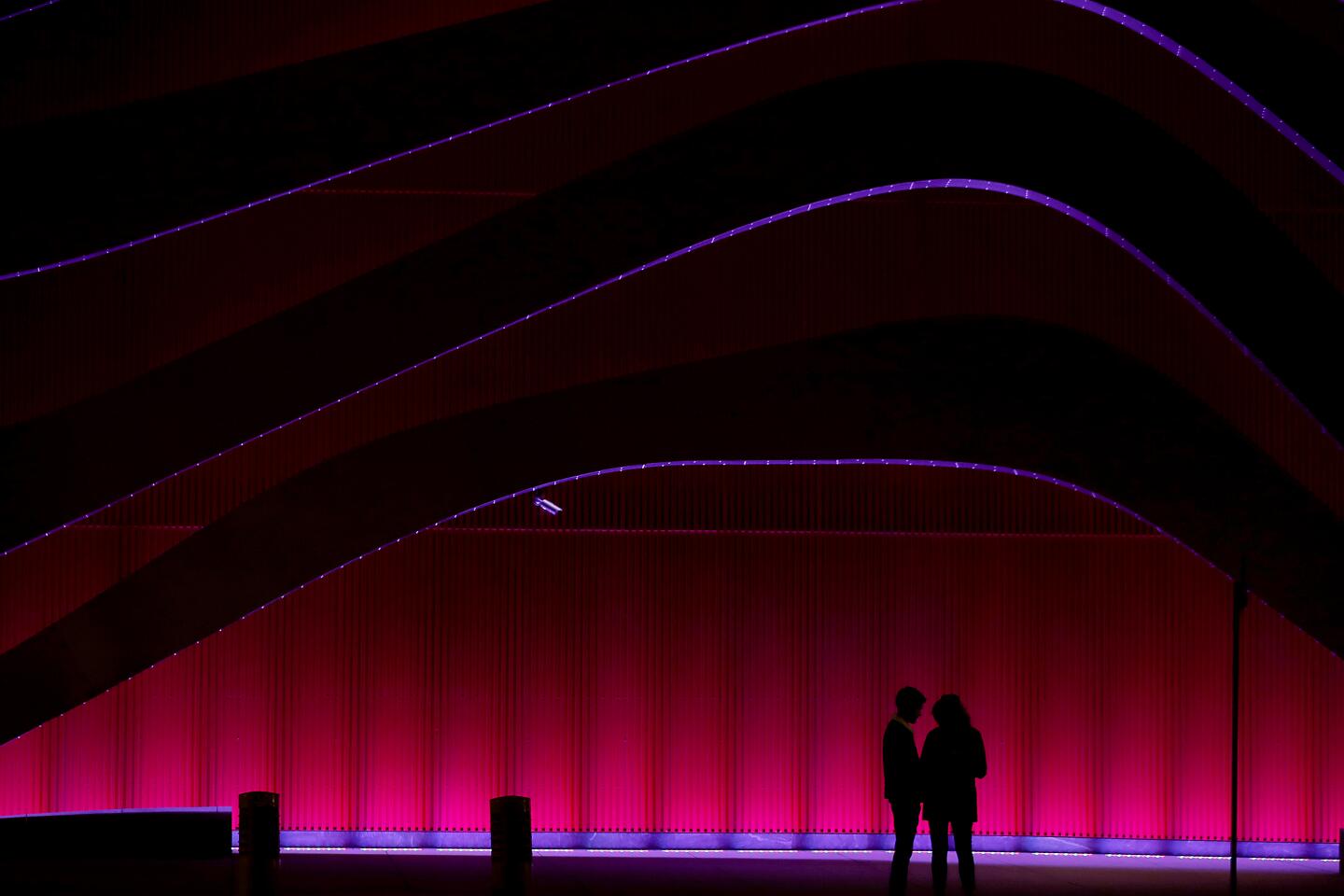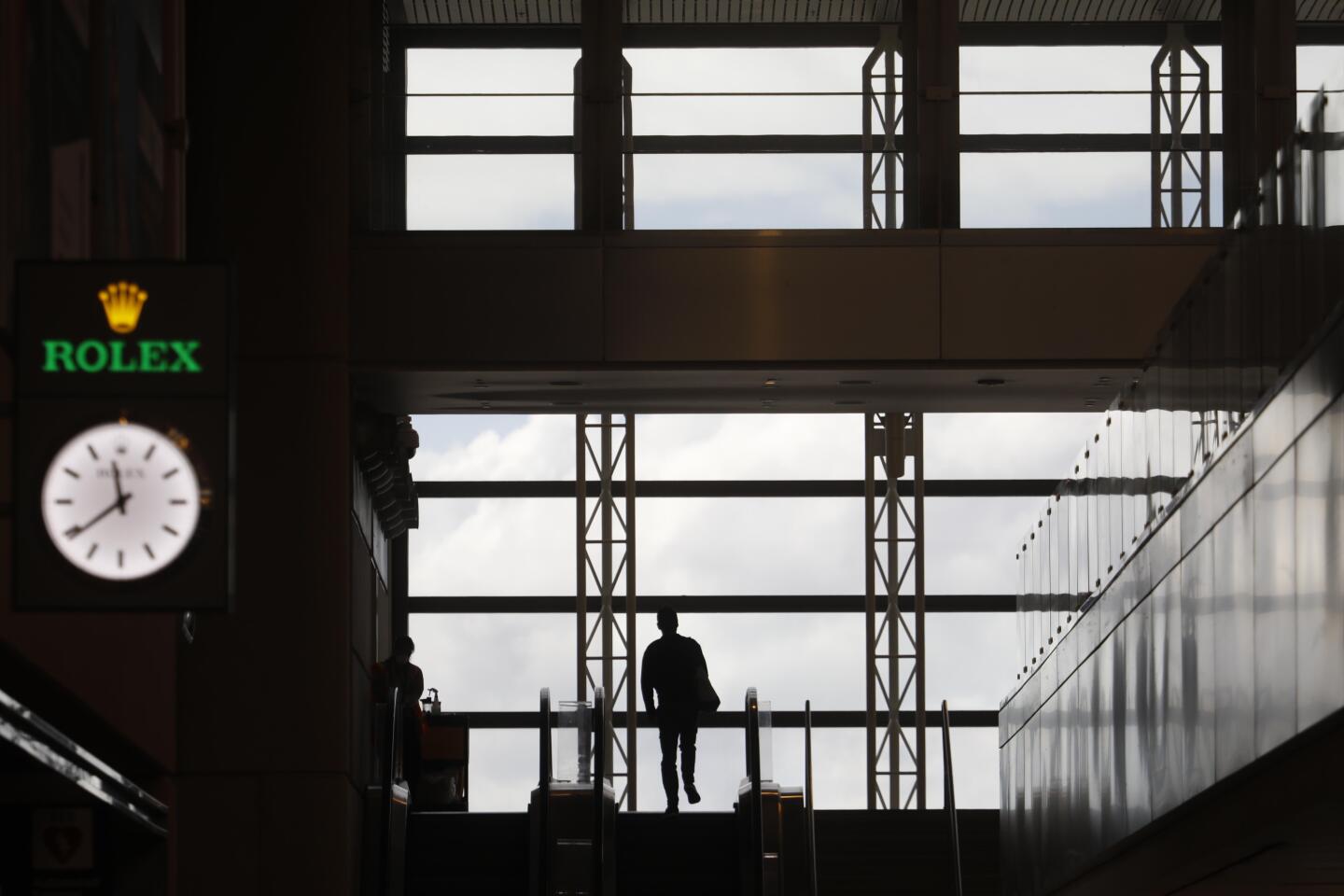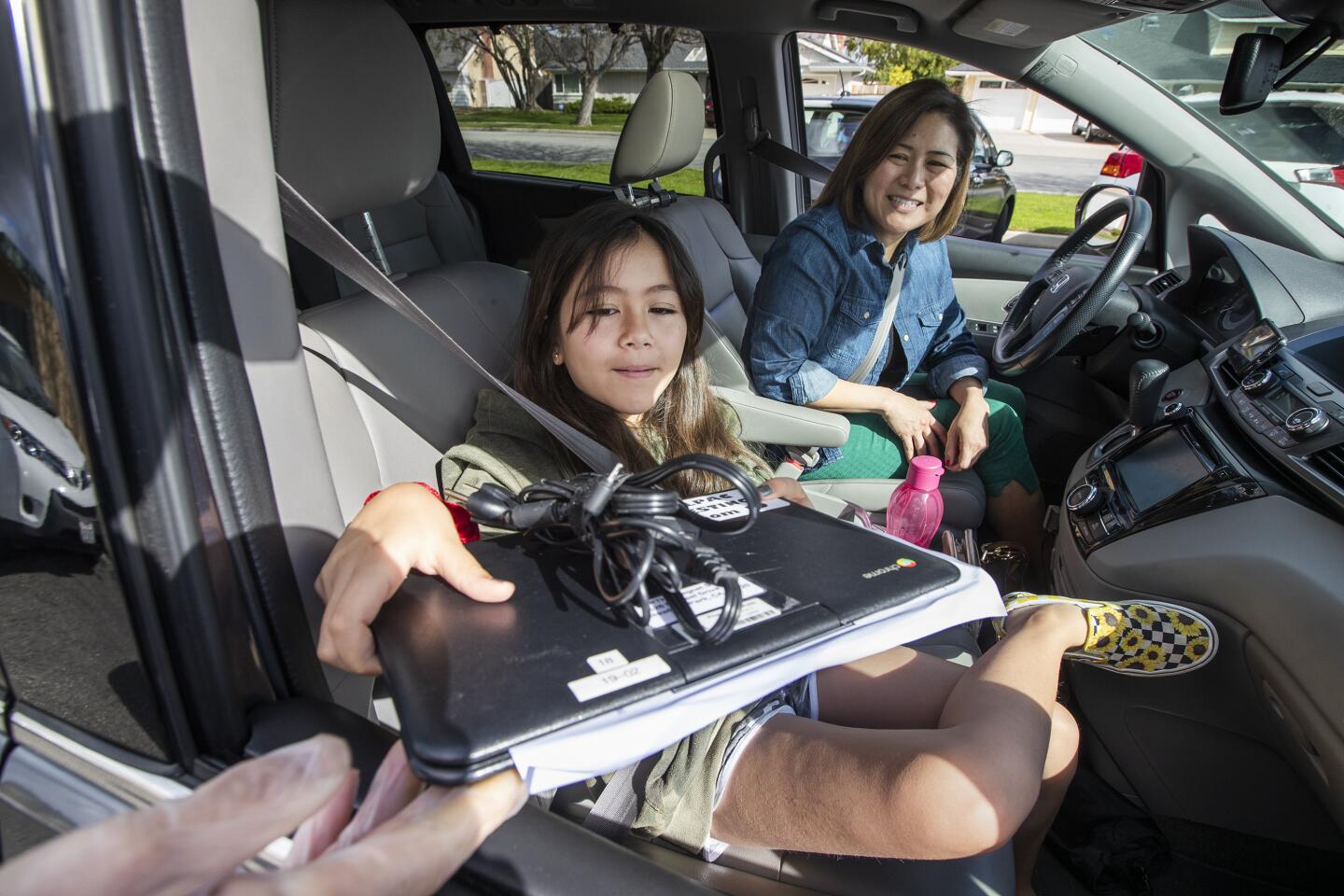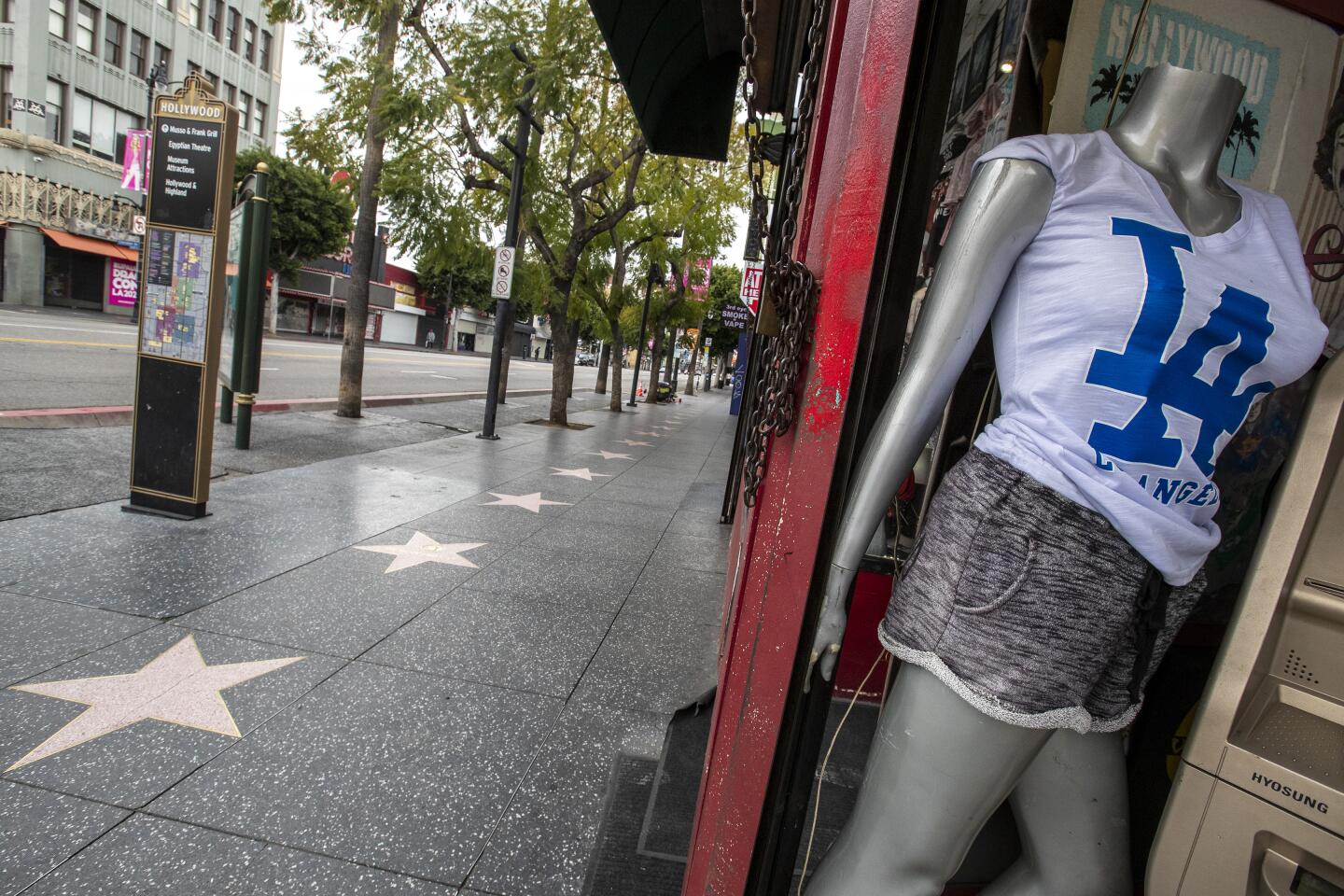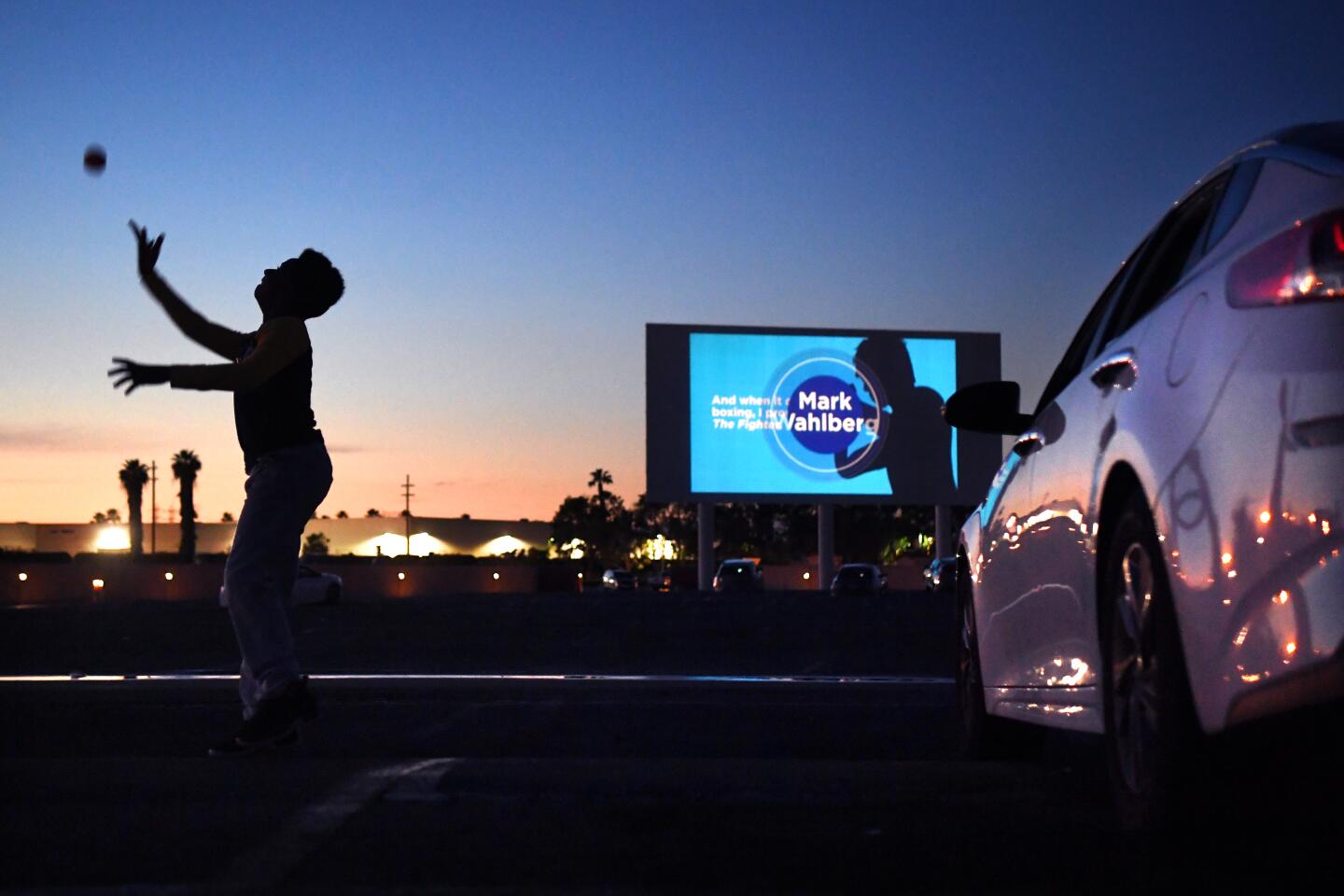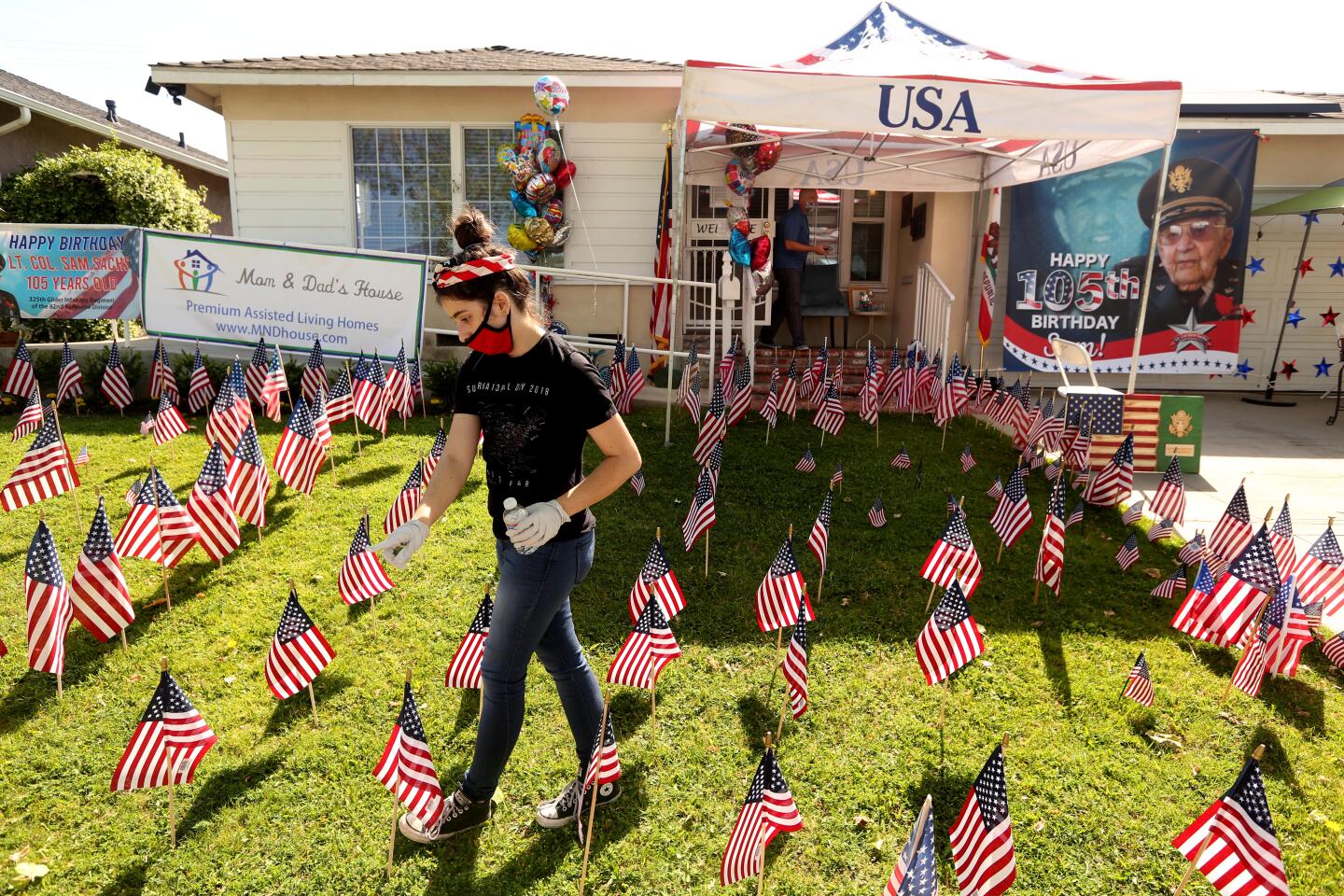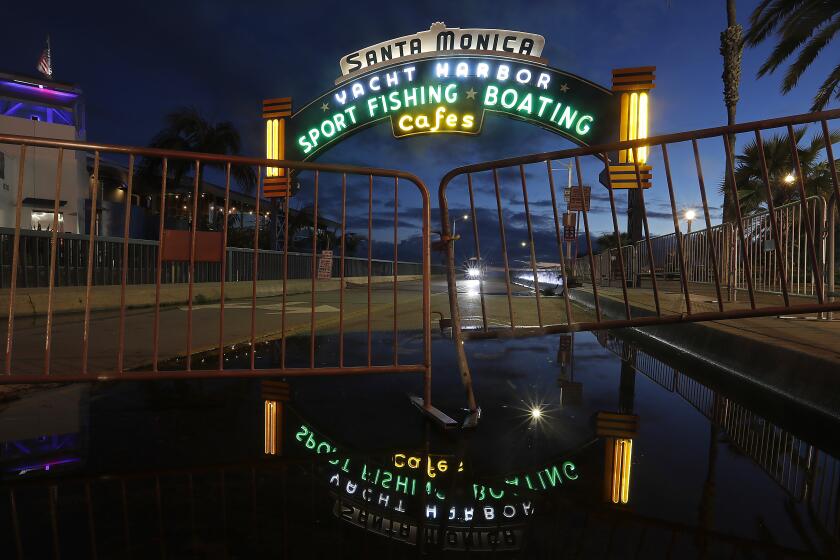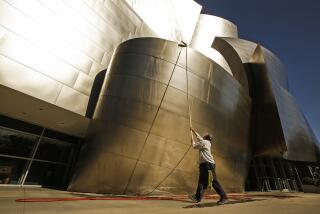What’s open and closed this week? Trails, parks, beaches in Southern California
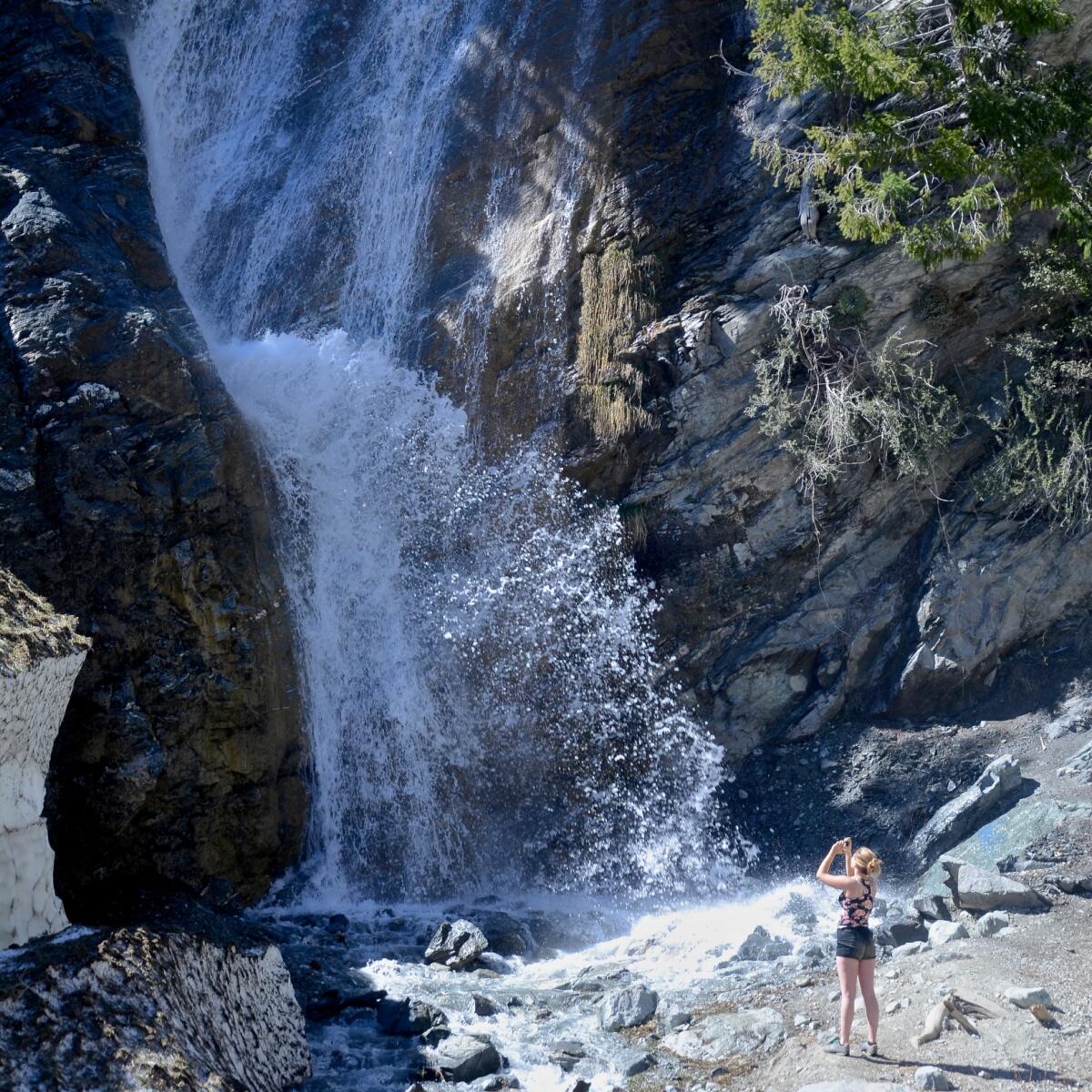
Southern Californians can still walk, hike and bike outdoors without violating Gov. Gavin Newsom’s stay-at-home order, but public agencies are urging residents to stay home as much as possible, and many are urging people to wear masks outside.
On Saturday, the National Park Service closed Death Valley National Park until further notice, except for State Route 190 and Daylight Pass, which remain open for vehicles passing through.
For the record:
12:28 p.m. April 3, 2020An earlier version of this story wrongly said Angeles National Forest trail and road closures were in effect through July.
The U.S. Forest Service announced Friday that it would close 23 well-used San Gabriel mountain trails, four popular trailheads and 19 roads in Angeles National Forest and keep them closed through April 30. The closures includes the popular Millard, San Antonio Falls, Icehouse Canyon and North Devil’s Backbone trailheads and amount to 81.5 miles of trails and 54.5 miles of roads (details in a separate article and below).
Also, the National Park Service announced weekend closures of all Santa Monica Mountains National Recreation Area trails, trailheads, restrooms, overlooks and pullouts in Ventura County. Authorities said those areas will remain open on weekdays, when crowds are thinner. (The recreation area’s trails in Los Angeles County were already closed.)
The NPS closed Joshua Tree National Park to all visitors March 31, followed by the Grand Canyon on April 1. Yosemite National Park has been closed since March 20.
Life right now is largely online. Here’s how to make the most of it.
Last week, L.A. Mayor Eric Garcetti suspended operations of the city’s farmers markets, set new standards for social-distancing, then approved reopening of 24 markets, including the Sunday Hollywood Farmers Market with more stringent practices.
Garcetti also closed the Silver Lake Meadow, a grassy space next to the Silver Lake Reservoir. The same day, Pasadena city officials closed the Rose Bowl Loop, a popular 3.1-mile-long walking path around the famed stadium.
Meanwhile, Southern California’s residential streets and sidewalks are seeing many walkers now that local, state and federal agencies have closed or severely limited access to beaches, parks, trails and forests.
On April 1, Garcetti urged Angelenos to start wearing masks on all outings — not high-quality, hard-to-find N95 masks, which medical professionals need, but basic masks and bandannas that might reduce the spread of droplets carrying the coronavirus.
L.A. County’s beaches, piers, beach bike paths, beach access points, public trails and trailheads are closed through at least April 19. That order covers beaches in every coastal city and unincorporated area of the county. The city of Los Angeles closed its hiking trails as well.
“Stay at home,” Garcetti said March 30. “This is not a game where the city closes one venue and people chase and try to find one that’s open. This is a moment to stay. Go for a walk around the block if you need to get out.”
In Griffith Park, authorities have closed all facilities, all trails and some access roads.
Here’s an update on what’s happening where. If you do go outside for a walk, remember these tips for keeping safe. Local and state officials stress the need to take greater care in maintaining a social distance of at least 6 feet from others.
Los Angeles city parks and beaches
The city Recreation and Parks Department is enforcing a broad range of restrictions. Among them:
All public hiking trails and trailheads in the city of Los Angeles have been closed since March 27. Also closed are all public beaches, public beach parking lots, beach bathrooms, piers, beach access points and the Venice Boardwalk and Ocean Front Walk (with limited access to essential businesses).
All recreation centers, aquatic facilities, golf courses, skate parts, tennis courts, playgrounds, baseball fields, soccer fields and basketball courts are also closed, as are other “indoor and outdoor sport amenities.”
Griffith Park closures include the observatory, Travel Town, train rides, the pony rides, the merry-go-round and some roads. (Equestrian-only trails remain open with social distancing required.)
Elsewhere, the Cabrillo Marine Aquarium in San Pedro remains closed, as is the Sherman Oaks Castle, and the EXPO Center in Exposition Park.
Still, many grassy areas remain open.
“I usually go to the beach,” said Zac Holtzman, dragging a metal detector over the turf at Elysian Park on Monday. “When you’re out here, you have to dig up endless aluminum pull-tabs.”
Holtzman’s day job is as guitarist for the band Dengue Fever, but the outbreak has shut down the recording of their new album, he said, so he’s mostly at home with his family — and the occasional bout of detecting.
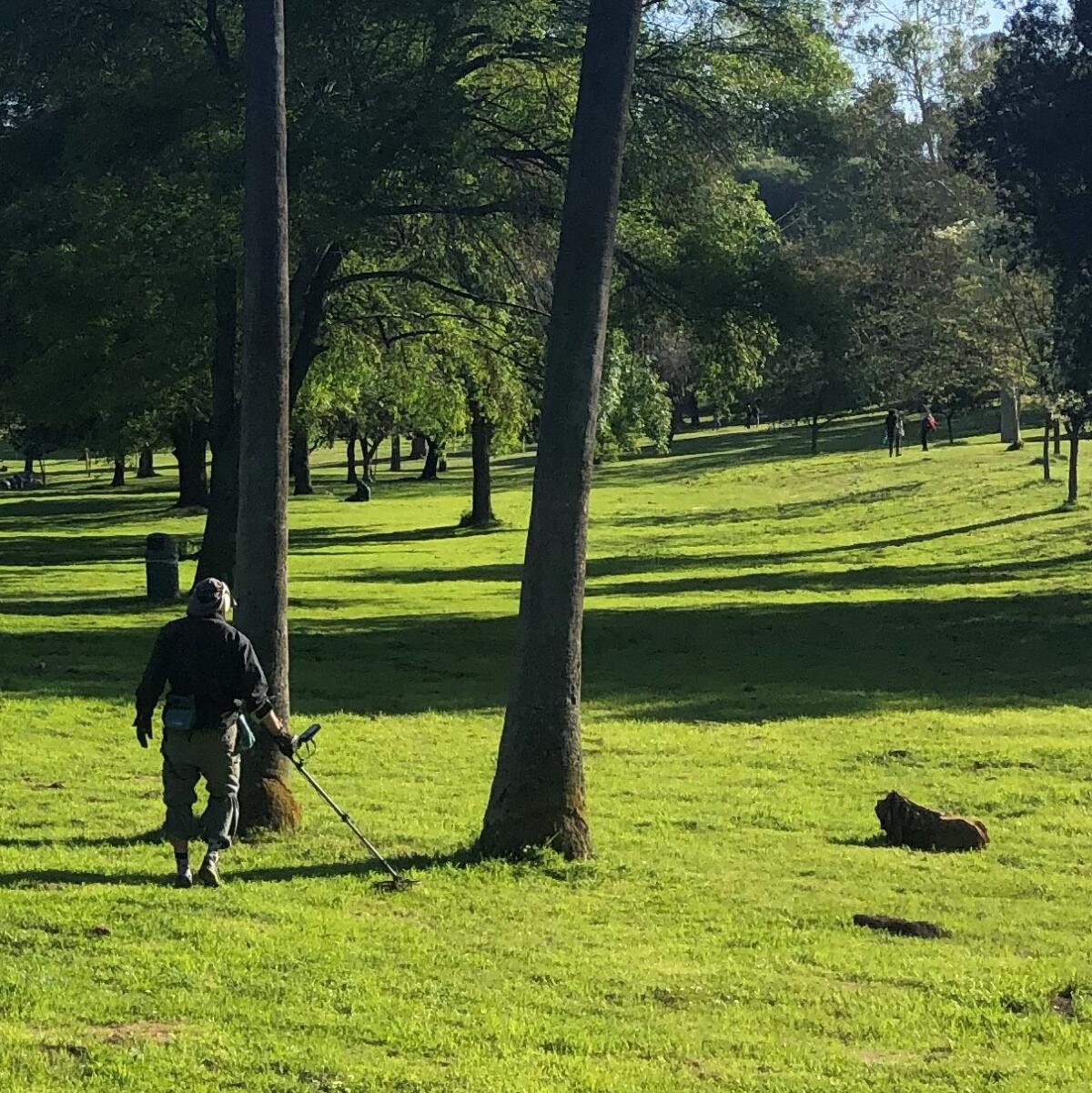
Santa Monica beaches
The city of Santa Monica‘s beaches, beach bike path and Ocean Front Walk closed March 27 as part of the countywide order to shut down beaches. The city’s Palisades Park, which overlooks the beach and pier, is also closed.
Los Angeles County trails and beaches
Since March 27, L.A. County officials have enforced the closure of trails, trailheads, beaches and other public lands. All of the county’s park play and sports amenities, including golf courses, are also closed. Parks officials noted on their website that “you can still enjoy time outdoors at your local park for passive use, such as walking, jogging, or leisure time outdoors for individuals or families. Social distancing is still required, and group gatherings are prohibited by the health order.”
The county on March 23 announced temporary closure of the county’s multiuse trail system, a network of more than 220 miles that includes the Eaton Canyon Trail (famed for its waterfall and often gridlocked on weekends); all interior trails at Vasquez Rocks; all interior trails at Placerita Canyon; the Loop Trail, Devil’s Chair and South Fork Trail at Devil’s Punchbowl; the San Dimas Nature Trail; the Schabarum-Skyline Trail in the San Gabriel mountains; and dozens of other popular routes.
Los Angeles County beach cities and Catalina Island
In Hermosa Beach, the pier, Strand and beach itself are closed as part of the countywide beach closure.
Even as people are told to stay home, many in Southern California seek out public spaces — beaches, hiking trails, sidewalks, parks — for relief.
The same is true in Redondo Beach, where city officials also closed the Esplanade area; Veterans Park and nearby parking areas; all public walkways, stairways, ramps and paths to the beach; and a coastal bluff trail between Knob Hill Avenue and George Freeth Way.
Meanwhile, Catalina Island “is closed to visitors,” the Catalina Chamber of Commerce website said on Friday afternoon.
The Catalina Express, which normally runs boats to the island’s Avalon and Two Harbors landings from Long Beach, San Pedro and Dana Point, has cut its service back to two round-trips a day between Long Beach and Avalon. At the Catalina Flyer, which normally offers one departure daily from Newport Beach to Avalon, a phone recording warned that the boat has suspended service until further notice.
The Catalina Island Conservancy has closed its visitor facilities, services and trails.
State parks in L.A. County
On March 29, state officials closed vehicle access to the entire state park system — 280 parks, including off-road vehicle areas. Among the Los Angeles County sites: Baldwin Hills Scenic Overlook; El Matador State Beach; Leo Carrillo State Park; Malibu Creek State Park; Malibu Lagoon State Beach; Point Dume State Beach; Robert H. Meyer Memorial State Beach; Topanga State Park; Will Rogers State Historic Park; and Los Angeles State Historic Park downtown.
At Kenneth Hahn State Recreation Area in the Baldwin Hills area of L.A., officials said in a statement that the park is closed to vehicular access, but “remains open for locals who wish to walk, hike and bike (in parks with bike trails) in the park, provided they practice social/physical distancing of 6 feet or more. This is not the time for a road trip to a destination park or beach.”
Santa Monica Mountains
The Santa Monica Mountains National Recreation Area’s move to close Ventura County trails on weekends took effect Friday, April 3. Those hiking, biking and equestrian trails and other areas will close at 2 p.m. Fridays and reopen at 6 a.m. Mondays “until further notice,” an NPS release said.
That policy covers Rancho Sierra Vista (including the Wendy Trailhead); Cheeseboro Canyon Trailhead; the Deer Creek area; and all trails within Circle X, which includes Sandstone Creek, Mishe Mokwa, the Grotto Trail, the trails and overlooks along Yerba Buena Road and the Backbone Trail along the spine of the Santa Monicas.
As part of the L.A. County-wide closure of hiking trails, the Santa Monica Mountains National Recreation Area had already shut down all of its trails and restrooms in L.A. County. In all, the recreation area includes about 150,000 acres of Los Angeles and Ventura counties.
Meanwhile the Mountains Recreation and Conservation Authority has closed all of its parklands, trail and facilities — close to 75,000 acres of parkland, including all parks owned by the Santa Monica Mountains Conservancy.
The authority’s busiest parks, now closed, include Wilacre Park in Studio City; Temescal Gateway Park in Pacific Palisades; Franklin Canyon Park off Mulholland Drive, Beverly Hills; Ed Davis Park in Towsley Canyon, the Santa Clarita Valley; all the overlooks on Mulholland Drive; Upper Las Virgenes Canyon Open Space Preserve at the west end of Victory Boulevard; and Escondido Canyon Park in Malibu.
“This is a total heartbreaker for us,” said authority spokesperson Dash Stolarz on March 23. “We would not do this if it were not necessary.”
Orange County Beaches and Parks
Orange County on March 25 closed parking lots at all county beaches, regional and wilderness parks; parking spaces at all trailheads; parking lots at Irvine Lake; parking along Black Star Canyon Road; pedestrian access points at Thousand Steps, Table Rock, West, Camel Point and Treasure Island beaches; restrooms; playgrounds; exercise equipment; shelters and trailheads. Passive walk-through pedestrian, cycling, and equestrian activity is permitted.
Orange County also banned vehicular traffic to Carbon Canyon, Clark, Craig, Irvine, Laguna Niguel, Mason, Mile Square, Tri-City and Yorba regional parks. Pedestrians, bicyclists and equestrians were permitted.
Among individual Orange County cities:
Seal Beach has closed all of its park amenities, including restrooms, playgrounds, hiking trails, athletic fields, tennis courts, volleyball courts, basketball courts, handball courts, dog park, picnic areas and community centers. But green space within its parks remains accessible, with social distancing required.
Huntington Beach’s pier and beach parking lots have been closed since at least March 25, but on Monday morning the beach itself remained open.
Newport Beach on March 25 closed its beachfront parking lots and piers, and closed its Oceanfront Boardwalk on the Balboa Peninsula over the March 28-29 weekend, but planned to reopen it Monday morning. On Friday, the city also changed the Balboa Island Bayfront Walkway into a “one-way” sidewalk, to better allow walkers to maintain at least 6 feet of distance from each other. As a further measure to cut down congestion on the Island, city city closed southbound Jamboree Road through-lane at Bayside Drive.
Laguna Beach has closed all city beaches, all basketball, volleyball and tennis courts; all playgrounds; its community pool; parking lots at Aliso Beach; and three beach-adjacent city parks: Main Beach city park, Heisler city park, and Treasure Island city park.
In Dana Point, city, county and state beach and harbor public parking lots are closed, as is Dana Cove Beach, as are many coast-adjacent streets. (Others are limited to local traffic only.) Noting that last weekend police wrote 158 parking citations, city officials said in a statement that “if you have to use your car to get here, there is nowhere to park.”
San Clemente in late March closed its city-owned beach parking lots and municipal pier and many other facilities. On April 1 it closed tennis courts, ballfields and picnic areas, as well, but the city’s trails remained open.
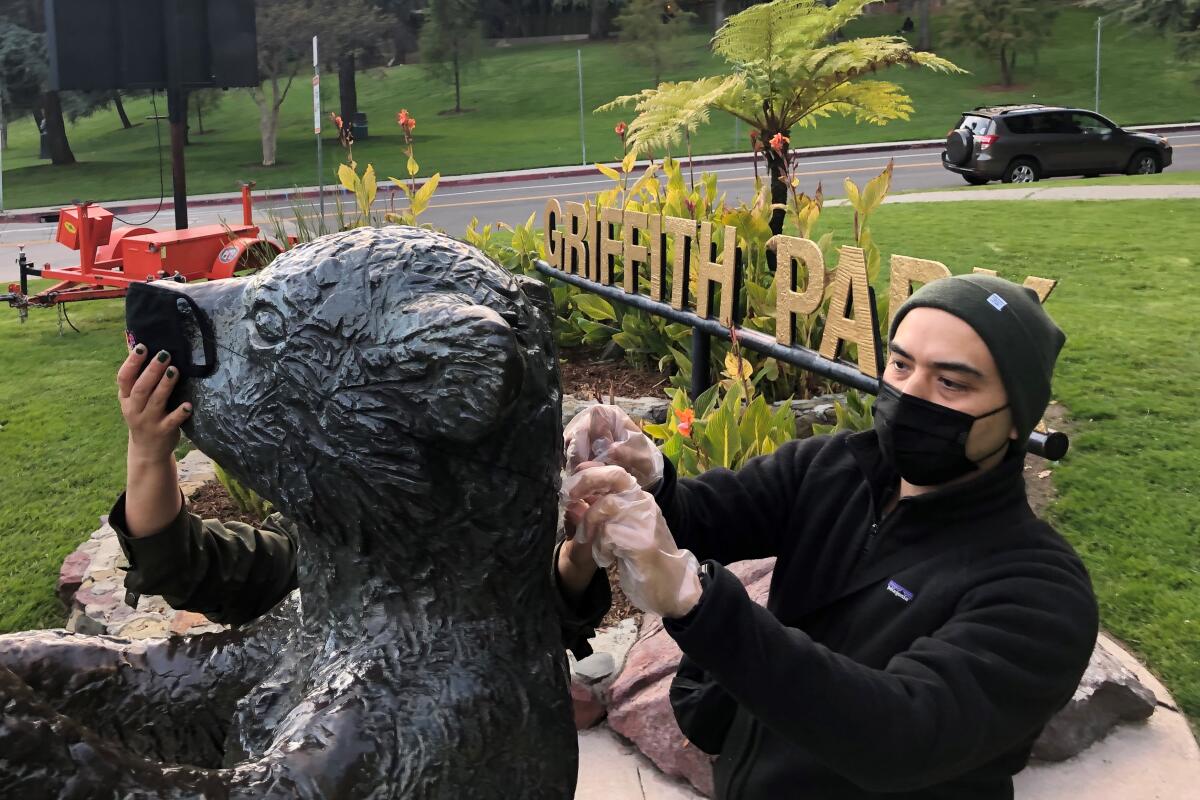
Throughout Los Angeles County
The “Safer at Home” order from Los Angeles County Public Health officials, issued March 21, prohibits all public and private group events and gatherings through April 19. It also says that individuals and families are not prohibited from “hiking, walking, biking or shopping at [e]ssential [b]usinesses,” so long as they keep their distance from others.
The order also notes that if local entities (like municipal governments) choose to impose stricter limits, the county order does not supersede them.
Los Angeles County has closed all indoor and outdoor playgrounds, along with indoor shopping centers and all swap meets and flea markets.
San Diego County parks and beaches
The City of San Diego closed all of its beaches, parks and trails on March 24.
The Port of San Diego, which controls 34 miles of the county’s coastline, including many parks, on March 24 closed all of its parks, beaches, parking lots, piers and boat launches.
As of Thursday, the Union-Tribune reported that Coronado and Oceanside beaches were still open, though Oceanside had closed its pier. The City of Imperial Beach has closed its beaches and pier.
Most San Diego County parks and preserves remained open, but Annie’s Canyon Trail at San Elijo Lagoon and Clemmens Lane are closed, as are many facilities and amenities. County officials gave the details in a March 25 update.
National Forests in Southern California
The U.S. Forest Service on March 26 closed campgrounds, picnic areas, bathrooms and other developed recreation sites in its California forests through April 30 and left Southern California’s four forests -- Angeles, Cleveland, Los Padres and San Bernardino -- to make their own decisions on trail access and parking.
That set the stage for the Angeles National Forest announcement Friday. In their new order, Angeles National Forest officials noted that the closure covers 81.5 miles in a trial network of about 760 miles.
Starting Saturday, hikers and other visitors will find trail head closures through April 30 at Millard Canyon above Altadena, and San Antonio Falls, Icehouse Canyon and North Devil’s Backbone in the Mt. Baldy area. The forest order shuts routes to Echo Mountain and Mt. Lowe, such as the Sam Merrill Trail, above Altadena, as well as others leading to Mt. Wilson, San Gabriel Peak, the Rim Trail and other routes in the San Gabriel Mountains.
“The closure does not close the ability to walk on to National Forest System land but does restrict access to roughly 40,000 out of 700,000 acres of the Angeles,” the statement said.
At the San Bernardino National Forest, whose 680,000 acres include four mountain ranges in San Bernardino and Riverside counties, a spokesman said parking areas at trailheads will remain open. Hikers should practice social distancing, sticking to wide fire roads instead of single-track trails that are too narrow, the spokesman said.
In Los Padres National Forest, which includes roughly 1.95 million acres reaching north from Ventura County into Central California, spokesman Andrew Madsen said trailhead parking and trails remain open, as do dispersed camp sites in the backcountry.
“We may need to reassess if the public doesn’t follow the ‘Pack it in, pack it out’ principles and create unhealthy conditions, especially with regard to trash,” Madsen said in an email.
In Cleveland National Forest, which reaches into San Diego, Riverside and Orange counties, the list of sites closed through April 30 includes all trails and picnic areas where an Adventure Pass is normally required. Additional trail closures may occur at any time, Forest Service officials said.
In the forest’s Trabuco ranger district, a spokesperson said closures include: El Cariso north/south picnic area; Hot Springs trailhead; San Juan loop trailhead; Tenaja trailhead; Trabuco creek picnic area; Wildomar staging area; Maple Springs day use area.
In the forest’s Descanso Ranger District, closures include Agua Dulce; Bear Valley OHV (off-highway vehicle) area; and Corral Canyon.
In the forest’s Palomar Ranger District, closures include: Crestline; Henshaw scenic vista; Inaja Memorial; Kica Mik Overlook; Palomar Mountain Interpretive Station; San Luis Rey Picnic Area; Fry Creek Trailhead; Observatory Trailhead; and Barker Valley Trailhead. The popular Cedar Creek Falls and Three Sisters Falls trails have been closed since March 21.
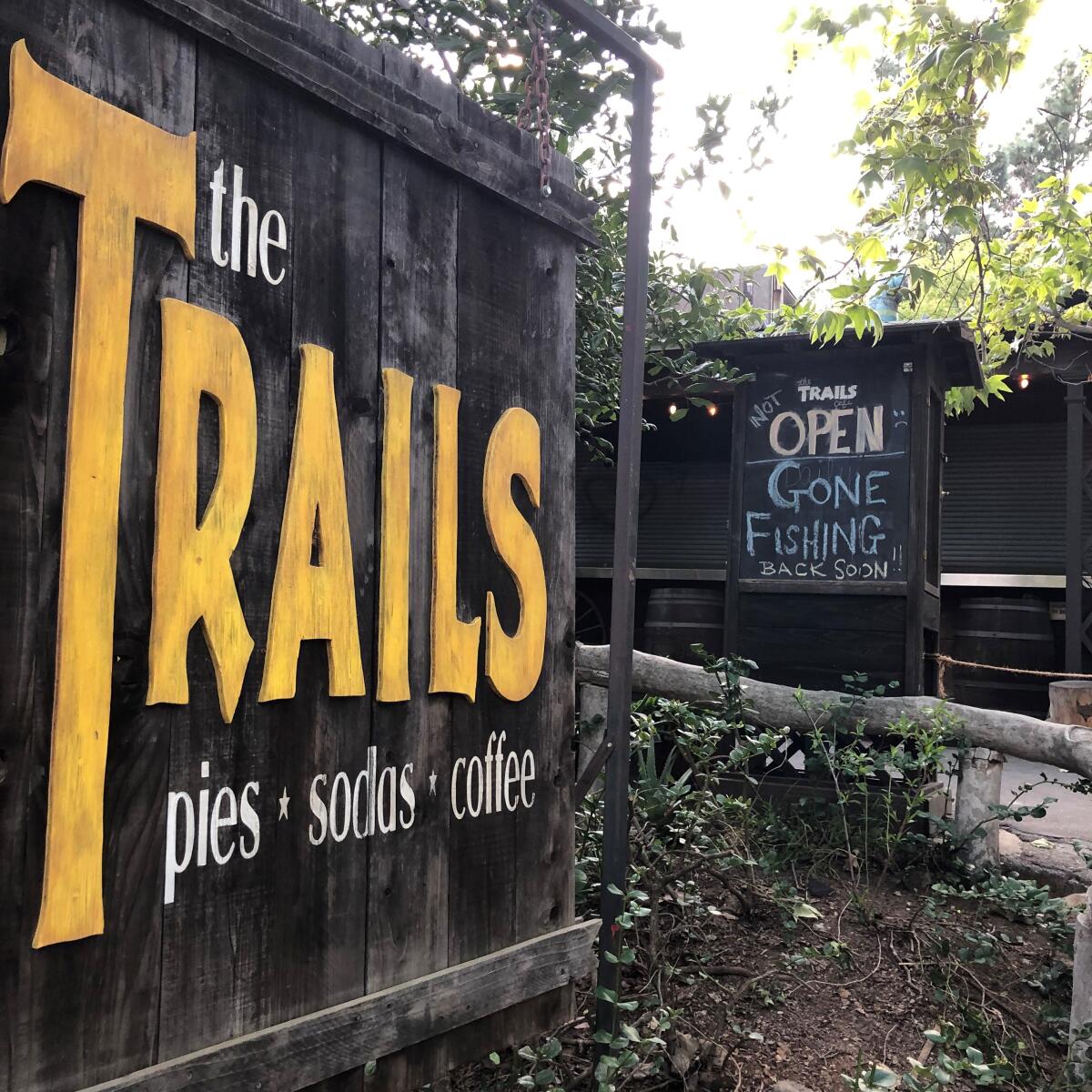
Throughout California
Newsom’s order said: “Everyone in California is required to stay home except to get food, care for a relative or friend, get necessary healthcare, or go to an essential job.”
But the governor also said: “We’re going to keep the grocery stores open. ... We’re going to make sure that you’re getting critical medical supplies. You can still take your kids outside, practicing common sense and social distancing. You can still walk your dog.”
On March 18, California’s state parks system closed all campgrounds. Yosemite National Park closed on March 20 and many national parks have dramatically cut back access, closing parking areas and roads.
More to Read
Sign up for The Wild
We’ll help you find the best places to hike, bike and run, as well as the perfect silent spots for meditation and yoga.
You may occasionally receive promotional content from the Los Angeles Times.
